Yes, a free book offer. But first I need to, as the support group leaders used to say, share.
I hope you saw two weeks ago my missive about my own sense of frustration in achieving the goals of our own calling here at Hearts & Minds — selling useful books about the Lordship of Christ over all of life, about wise and faithful ways of relating faith to work, calling, career, the arts, culture, education, civic life, politics and such. Although we carry tons of books about church, worship, liturgy, and personal matters like spirituality, prayer, Bible study and personal growth, our deepest passions are for getting Christian folks – shaped well by worship, Bible study, spiritual practices and healthy family relationships, to be sure – to think more carefully about serving God outside of the walls of the church.
My BookNotes piece written the day after the election suggested that I was feeling like a failure: we have all these books and I have written all those columns about faith and citizenship, about public justice, about the Biblical demand to be somehow distinctive about our political loyalties, and yet we hear people of faith offering fairly non-theological justifications for this or that candidate. Many evangelicals seemed particularly inarticulate about a Christian reason for their voting habits and it saddened me.
Some of our good friends on both sides of the isle could articulate profound and deeply Christian accounts of our political life and could explain why, given theological, Biblical, spiritual, reasoning, they vote as they do. Our hats are off to them. Chances are, they’ve read some of the books we’ve recommended, or something like them.
But most religious folks, you know, simply cannot.
They follow their gut, they buy popular pagan notions like “self-interest” or fret exclusively about the size of government or about the rate of economic growth; they wish for American greatness without much Biblical justification or they cite unbiblical notions from Jefferson or Ayn Rand or Trump or Hillary, with little or no connection to the grand tradition of Christian political wisdom handed down over the years. Some preachers preach and some pundits write, telling us what we should do, but too often they seem to be radically disconnected from the best thinkers and the tradition of theological reflection on these things. The disconnect between our worship on Sunday and our work in the world seems ever so evident.
I shared, in that post, my anguish that we’ve got the resources here to help us be more informed and mature, thoughtful and faithful, but the sad truth is that hardly anybody buys them. Hardly any churches of which we know host classes or book clubs or conversation groups using the sorts of books we tried to sell about political life. There are good exceptions, but we’ve not resourced enough folks to make a difference. Like I said, I feel like we’ve failed in doing our job.
So, I cry in my beer and lament not only the state of the Christian mind and the lack of consensus among church folks on the principles that should guide our public life, but I worry about the state of the union. And I worry about the role of the small town theological bookseller, too.
But, worried and sobered or not, we keep on, you and I, taking courage — and even joy and hope — in the grace God has shown us, the burden and gift the Spirit has given us, this burden inspiring us to want to be life-long learners, wanting to relate “heart and mind” and to be formed in the ways of the coming King. We keep trying to spread the word, literally. We promote books like Chris Smith’s Reading for the Common Good and Greg Jao’s little Your Mind’s Mission. I will keep telling all who care (God bless you!) about new books that I think will inspire and help you in your own journey as Christian thought leaders — if you read more than a book or two a year and talk about them to others you are a thought leader, you know! We will keep on reviewing and trying to sell books that we think will be helpful for the broader Christian community and our witness in the world.
We know that all of this helps some of you and we know you value our efforts. Thanks. More than you know, thanks.
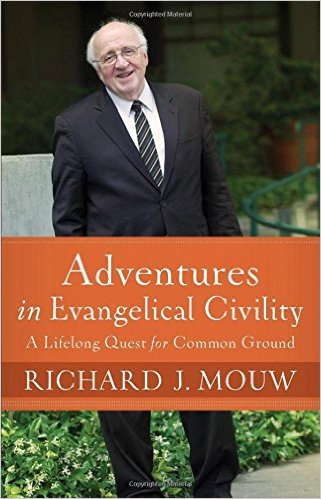 The brand new intellectual biography of Richard J. Mouw, a scholar and leader who has influenced us considerably, is called Adventures in Evangelical Civility: A Lifelong Quest for Common Ground (Brazos Press; $24.99.) It is just the sort of book that will help us redouble our efforts to think Christianly by reading widely, generously, and to engage in creative initiatives to find common ground with others. I think it is one of the best books of the year and for some of us, it is going to be a true blessing to read — just what the doctor ordered. Mouw is a theologian whom I admire, a pious and Godly evangelical, a ‘world-and-life-view’ sort of Dutch neo-Calvinist with some hefty degrees behind his career in political philosophy, who can write clearly and well. There are many reasons I like his work so much and they are all on display in this remarkable new memoir.
The brand new intellectual biography of Richard J. Mouw, a scholar and leader who has influenced us considerably, is called Adventures in Evangelical Civility: A Lifelong Quest for Common Ground (Brazos Press; $24.99.) It is just the sort of book that will help us redouble our efforts to think Christianly by reading widely, generously, and to engage in creative initiatives to find common ground with others. I think it is one of the best books of the year and for some of us, it is going to be a true blessing to read — just what the doctor ordered. Mouw is a theologian whom I admire, a pious and Godly evangelical, a ‘world-and-life-view’ sort of Dutch neo-Calvinist with some hefty degrees behind his career in political philosophy, who can write clearly and well. There are many reasons I like his work so much and they are all on display in this remarkable new memoir.
But, please, forgive me, bearing with me as I ruminate just a bit more about the malaise this month before telling you a bit about this fine, thoughtful book. I want to make the case, yet again, why such a book is so very important here, now, in late Fall 2016.
I assume most Hearts & Minds friends will understand this, even if it is weighing on some of us more heavily than others, but the weeks since the election have been hard. Very hard.
Eruptions of racial violence – from a variety of quarters – has horrified us; vile ideas about registering Muslims have stunned even those skeptical of Mr. Trump’s civil liberties; frighteningly violent targeting of GLTBQ persons has occurred this week; terrible complexities in Syria makes us wonder if anything can be done to alleviate the suffering there and how Mr. Trump’s obvious misunderstanding of the details on the ground will affect the region. U.S. policies have been a hot mess forever, there, it seems, and it isn’t going to get better any time soon, we now know that. As Romans 8 reminds us, the whole creation groans…
In the last week I have read deeply moving pieces by women who were sexually abused in their teen years and how awful it has been for them knowing that some of their neighbors and fellows citizens (and family and church members) voted for Mr. Trump knowing how he bragged about walking into the dressing rooms of half-naked girls. At Redeemer Presbyterian in New York last week we heard Nancy Jo Sales, author of American Girls: Social Media and the Secret Lives of Teenagers, a thick, disturbing book based on interviews with girls about their social media habits, documenting cyber-bullying, sexting, the presence of porn and other hurtful things often coming from from boys. Ms. Sales not only reminded us of some of the negative effects of our on-line cultures, but told through angry tears of the emails she has gotten from her young friends, school teachers, and parents last week who have experienced sexual predators and cyber-bullying who are deeply alarmed that we now have a President-elect who reminds them of the creepy, hormone-driven boys who disrespect them, who make their lives feel threatened, who gawk and swear and reduce them to numbers or pussy to be grabbed.
I’ve heard a lot of pain expressed this week, we know there is a lot of understandable fear. No matter who you voted for, you must consider this anguish bubbling up among our neighbors and friends. But feeling the pain and dismay of those who are on the front line of showing Christ-like care for immigrants or those working for racial justice or those who fear the loss of any small smidgen of policy reform about ecological stewardship and climate change issues, of those who are working against rape culture and sexual abuse, is not the only sort of anguish I’m noticing.
Some of my best friends are most distressed about the statistic that 80% or so of white evangelicals proudly voted for this very bad man who offered confusing, peculiar policy proposals. They are concerned about what this says to the watching world, to those already on the fringe of evangelical faith and how this might set back the outreach and growth of the gospel itself. Oddly, those who desire to be known by the first things of the gospel — evangelicals, supposedly — have now allowed other things to clutter their witness. We’re seeing articles now asking “What is an evangelical?” and saying things like “If this is what it means to be a Bible-believing Christian, count me out!” As a person who cares very much about the reputation of evangelical Christianity (and as many of our BookNotes friends do, too) you know these are trying times. For some watching this unfold, it has become an existential crisis, a faith crisis, a worldview crisis. And that can be traumatic.
I have my own thoughts about this – see that previous post where I name my own frustrations about the lack of a Christian mind informed by the best books and scholars writing these days and how in many ways this bad situation is the faith community’s own fault – but one of the things that I want to say here is that the pollsters and media (including some that really ought to know better) have seemed to have conflated moderate evangelicalism and hard-right fundamentalism. And, as is too typical, folks confuse being theologically conservative and politically or culturally conservative. The one does not necessarily follow from the other.
Whether serious fundamentalists — Bible believing, blood bought, Jesus-exalting, holiness-seeking, truly saved, properly baptized, non-compromising, world-hating, Holy Ghost-inspired, King James only fundamentalists — voted for Trump I don’t really know. But the religious right led by the likes of Junior Falwell are not primarily evangelicals. They are fundamentalists and they are not the same tribe as those who read Christianity Today, follow the Gospel Coalition, or send their kids to Wheaton or Calvin or Messiah or Gordon, whose pastors went to Fuller or Gordon-Conwell or Trinity or Covenant or Moody, who take advanced learning degrees at Regent in British Colombia or Seattle School of Theology or Denver Seminary or take extra courses at RTS in Charlotte or enjoy adult learning with the C.S. Lewis Institute or the Gotham Fellowship in New York or the Laity Lodge in Texas or attend stuff like the Passion Conference or the Calvin Institute on Christian Worship Symposiums or Urbana or Jubilee or the Justice Conference. That is, mainstream evangelicals are simply different than fundamentalists. There are theological differences and there are cultural differences. I know very few self-identified evangelicals who voted happily for Donald Trump. If the polls are saying conservative Christians voted for him, I suspect they are referring to fundamentalists and prosperity preaching Pentecostals. And that is a difference that makes a difference.
As an ecumenically-minded Christian I am very interested in how Catholics and liberal Protestants and evangelicals relate. Sometimes the Orthodox join in, but often not. True-blue, fightin’ fundies (as they used to call themselves) usually aren’t interested, either. For them it would be pointless to take seriously the faith claims of those who they think are not even saved.
Evangelicals, though, even quite conservative ones, are deep in conversations these days in places like the Society of Biblical Literature, in Christian Churches Together, and in other efforts that invite a bigger tent of conversation within the Body of Christ. Some of the brightest theological scholars are at evangelical institutions and they are respected in their fields. Some of the most respected scholarly theological books come from IVP Academic and Baker Academic, say.
It is my experience that mainline progressive and liturgical Protestants are less tolerant of evangelicals – often confusing them with fundamentalists and seemingly unaware of the sea-changes within evangelicalism in the last 30 years – than the other way around; many evangelicals read Richard Rohr and Nadia Bolz-Weber and Harvey Cox and Diana Butler Bass and although they may disagree with them, they are in respectful engagement. Interestingly, non-evangelical authors like Walt Brueggemann and Jorgen Moltmann speak at evangelical confabs. In our earliest days of book-selling nearly 35 years ago, evangelicals (who sometimes still called themselves neo-fundamentalists) were still pretty antagonistic to mainline folks, but that is changing, and we are grateful.
Which brings me back to this: the media endlessly conflates old school Pentecostals, modern renewing charismatics, evangelicals (both conservative and more progressive) and hard-core fundamentalists. More progressive voices that were once evangelical – think of Brian McLaren or Sojourners, say, who are now more aligned with mainline denominational impulses — are in the mix, too. Not to mention the great increase of third-world Evangelical or Pentecostal Christians that are now involved in Christian communities across North America. (You’ve got to read the brilliant and pioneering story of that new reality in the great book by global Christian leader Wes Granberg-Michaelson, From Times Square to Timbuktu: The Post-Christian West Meets the Non-Western Church.)
I doubt if the news reporters seem to get that historic ethnic churches — black and Latino, at least — and Mennonites, maybe, are somehow different than mainline Protestants and yet not grouped in the same caricature of white evangelicals. They may be fiery but they usually aren’t fundamentalist. I’m sure you know that some African American and Latino churches are passionately upbeat and preachy about the gospel in evangelical ways but are, largely, politically liberal, and sometimes perplexingly (some might say delightfully) uneven theologically. It’s complicated, eh?
So that report of 80% of white evangelicals happily voting for Mr. Trump may not be quite right and it is important we keep in mind the diversity of thought and practice within the big Body of Christ. Our bookstore is passionate about being ecumenical, and we think it matters.
ADVENTURES IN EVANGELICAL CIVILITY: THE LIFELONG QUEST FOR COMMON GROUND
 Which brings me to one of the great values of Adventures in Evangelical Civility, this vital new book by Richard Mouw, one of the unsung ecumenical leaders of our age.
Which brings me to one of the great values of Adventures in Evangelical Civility, this vital new book by Richard Mouw, one of the unsung ecumenical leaders of our age.
Rich Mouw is, as much as anybody I read, a lovely voice that recognizes and calmly names different sorts of Christians with truly earnest regard. Mouw used to teach political theory at Calvin College in Grand Rapids which is run by a ethnically-particular denomination and after a while ended up President of the most ethnically and denominationally diverse seminary on the planet. This appointment suited him well because he, unlike anyone I know, is both deeply placed within his own specific tradition, and is aware of, eager to learn from, and fluent in conversing with others. This new book helps explain why.
That Dr. Mouw’s memoir is about civility will come as no surprise to those who know his work; the subtitle is about the search for common ground – that the noble sounding word quest is even used is very important. It is one reason why this book is so significant. (Don’t we need that quest for common ground now more than ever?) Mouw illustrates for us not only what a mature evangelical leader thinks about, and thinks like, but it helps us see how his particular sort of evangelicalism compares and contrasts with others. And he does this not only because of his personality or style but because of serious theological and philosophical convictions, rooted deep in his theological ground.
As such, Mouw seems to represent the sorts of folk who simply aren’t showing up in the “white evangelicals who voted for Trump” demographic. He represents something much more interesting, nuanced, considered, and, I pray, the wave of the future.
I will admit that it is quite natural for me to promote Dr. Mouw’s work – he is one of the finest scholars and interpreters of the late 19th century/early 20th century theologian/scholar/statesman Abraham Kuyper, a tradition I was enfolded into during my college years. One of my own mentors in Western Pennsylvania, Dr. Peter J. Steen, who taught of these things knew Mouw in those years, as did CPJ founder James Skillen, another late 70s hero who was influential. I hope you might realize how important this is for Beth and me, how influential it has been informing the tone and texture of our work here at the bookstore.
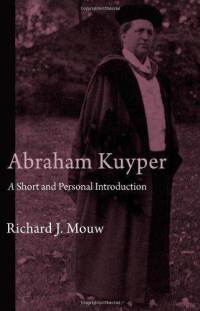 We have drawn on Mouw’s previous books often, starting with his two 1970s books on political witness and how the Biblical drama — creation, fall, redemption, restoration — is a helpful lens through which to understand God’s perspective on politic life. His more recent, accessible, inspiring books have been helpful for those of us struggling with questions of civility (Uncommon Decency, which I will mention again, below), a Biblical theology of common grace and cultural engagement (He Shines in All That’s Fair), or about the nature of uniquely Christian scholarship (the recent collection of short pieces Called to the Life of the Mind is very nice.) His must-read Abraham Kuyper: A Short and Personal Introduction has been immensely helpful in offering a brief overview of that titan of a Christian
We have drawn on Mouw’s previous books often, starting with his two 1970s books on political witness and how the Biblical drama — creation, fall, redemption, restoration — is a helpful lens through which to understand God’s perspective on politic life. His more recent, accessible, inspiring books have been helpful for those of us struggling with questions of civility (Uncommon Decency, which I will mention again, below), a Biblical theology of common grace and cultural engagement (He Shines in All That’s Fair), or about the nature of uniquely Christian scholarship (the recent collection of short pieces Called to the Life of the Mind is very nice.) His must-read Abraham Kuyper: A Short and Personal Introduction has been immensely helpful in offering a brief overview of that titan of a Christian 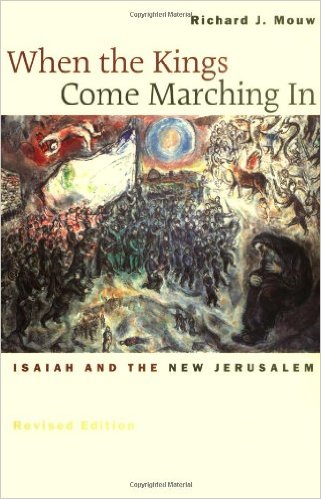 thinker and “every square inch being redeemed” sort of faith. And, one of my all time favorite Biblical studies books is his small but potent When the Kings Come Marching In: Isaiah and the New Jerusalem that asks about the relationship between our cultural activities now and how they might endure into the new creation. Oh, how I wish his fantastic book (part of a Fortress Press series about the role of the laity edited by the crusty Anglican Mark Gibbs, which Mouw tells about in Adventures… ) entitled Called to Holy Worldliness was still in print!
thinker and “every square inch being redeemed” sort of faith. And, one of my all time favorite Biblical studies books is his small but potent When the Kings Come Marching In: Isaiah and the New Jerusalem that asks about the relationship between our cultural activities now and how they might endure into the new creation. Oh, how I wish his fantastic book (part of a Fortress Press series about the role of the laity edited by the crusty Anglican Mark Gibbs, which Mouw tells about in Adventures… ) entitled Called to Holy Worldliness was still in print!
Dr. Mouw’s early days of being a Christian scholar – his college years, his years of graduate studies, the early seasons of his marriage to Phyllis while at University of Chicago and then teaching in Canada, and his eventual appointment to Calvin College in Michigan – are documented here. It is exceedingly interesting to learn about what books he read, how he struggled with this idea or that, how he compared or contrasted this prof and that one, this textbook and that one, this seminal work in a field with yet another vital scholar and how he did his teaching, the work he took up.
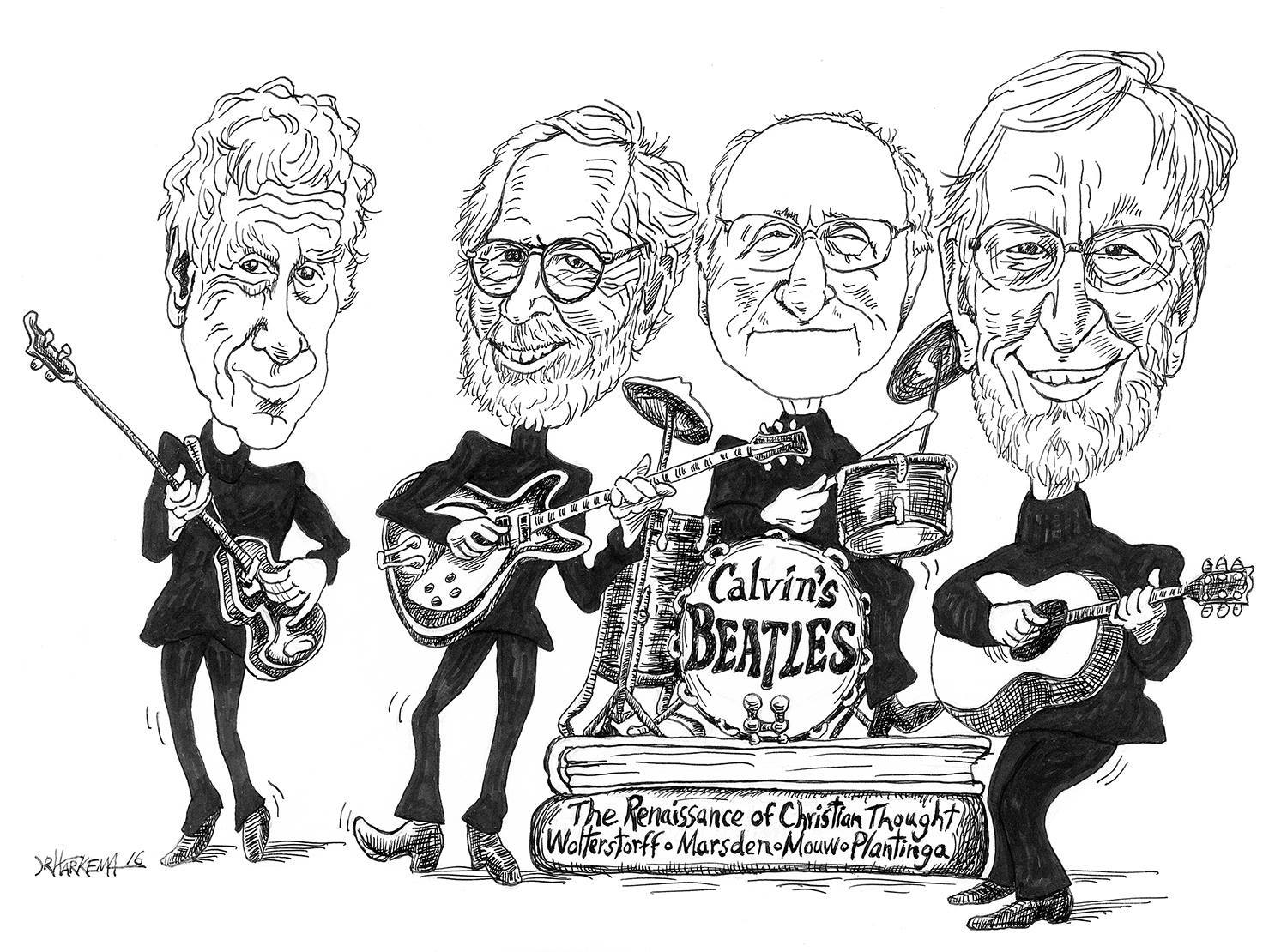 For anyone who cares about the development of the Christian mind, Adventures in Evangelical Civility is illustrative and (okay, at least for we geeky types) nothing short of thrilling. Dr. Mouw ended up at Calvin College in the middle of a nearly legendary period in the late 1960s and became friends with other renowned scholars such as Nicholas Wolterstorff, Alvin Plantinga, George Marsden, Mark Noll, and others who went on to produce extraordinary scholarly output achieving exceptional academic fame. When your colleagues get their books published by Oxford and Cambridge University Presses and are nominated for Pulitzers and are invited to do some of the most prestigious scholarly lectures in the academy and you yourself end up at one of the most storied and significant religious institutes in the world, well, you’ve got to tell us how you got there.
For anyone who cares about the development of the Christian mind, Adventures in Evangelical Civility is illustrative and (okay, at least for we geeky types) nothing short of thrilling. Dr. Mouw ended up at Calvin College in the middle of a nearly legendary period in the late 1960s and became friends with other renowned scholars such as Nicholas Wolterstorff, Alvin Plantinga, George Marsden, Mark Noll, and others who went on to produce extraordinary scholarly output achieving exceptional academic fame. When your colleagues get their books published by Oxford and Cambridge University Presses and are nominated for Pulitzers and are invited to do some of the most prestigious scholarly lectures in the academy and you yourself end up at one of the most storied and significant religious institutes in the world, well, you’ve got to tell us how you got there.
And tell he does.
In a typical chapter early on, Mouw reflects on the struggle to understand the doctrine of the image of God in humankind. As you probably know there are several important theories, and as the theological consensus began to shift, Mouw was in the thick of it, reading Berkouwer and Berkhof and Bavinck (in Dutch, no doubt, but he doesn’t say) and Emil Brunner and others pioneering an emphasis that the imago Dei isn’t some aspect of our human-ness like our reason or morality, but our task or role, our mandate to “image” God in the world. This is a notion of our “culture making” calling which influenced Andy Crouch so beautifully causing him to write Culture Making and which Richard Middleton explores with exceptional scholarly depth in the highly regarded The Liberating Image. I have not read seriously in any of those original primary sources Mouw tells about (well, I carried Berkouwer with me as I hitch-hiked across the country in the early summer of 1976 and maybe read a few pages in the back of a truck somewhere in the Southwest, but I digress.)
I assume most BookNotes readers don’t read heady European theology, either, but in Mouw’s bookish memoir, he tells us what he read, what he got out of it, how it did or didn’t sit well with him, and what other books or professors or Bible teachings he had to grapple with and mix together to form his own view. And it is perfect for those of us who need the quick overview, the example of a serious scholar at work and the upshot of it all, clearly, calmly explained.
Mouw does this with other topics – always with clarity, with grace, illustrating his spirited eagerness to learn, and, now, even in this pleasant memoir, with an eagerness to teach. He has a section about what we can learn from Sartre and Camus. He ruminates on what he learned about human nature from those with other perspectives. He has a whole chapter on “when truth is distorted.” He explains different sorts of philosophers within the Reformed movement. I’m sure fellow scholars of near retirement age will smile along, having read perhaps the same seminal thinkers, struggled with the same heady ideas, but I’m also sure that the readers Mouw hopes for as well are younger folks, rising scholars, friends and fans of BookNotes, even, who want to be informed but are not called to that level of scholarly engagement in the academy. Maybe you, like me, feel called to be a bit of an armchair observer; we’re not going to read all the scholarly primary stuff, but we sure will find it helpful to have a guide over whose shoulder we can look, a distant-learning mentor who lays it out for us by way of simply telling his tale.
Mouw is perfect at this, diligently explaining this and that, walking us through the best quotes and important notions in the most significant of books and authors and what it all meant to him, and what it may mean to us. In a way, Adventures… is a undergraduate crash-course in Christian social thinking and whole-life discipleship. For those who like to learn, there’s just so much here that is fascinating and edifying.
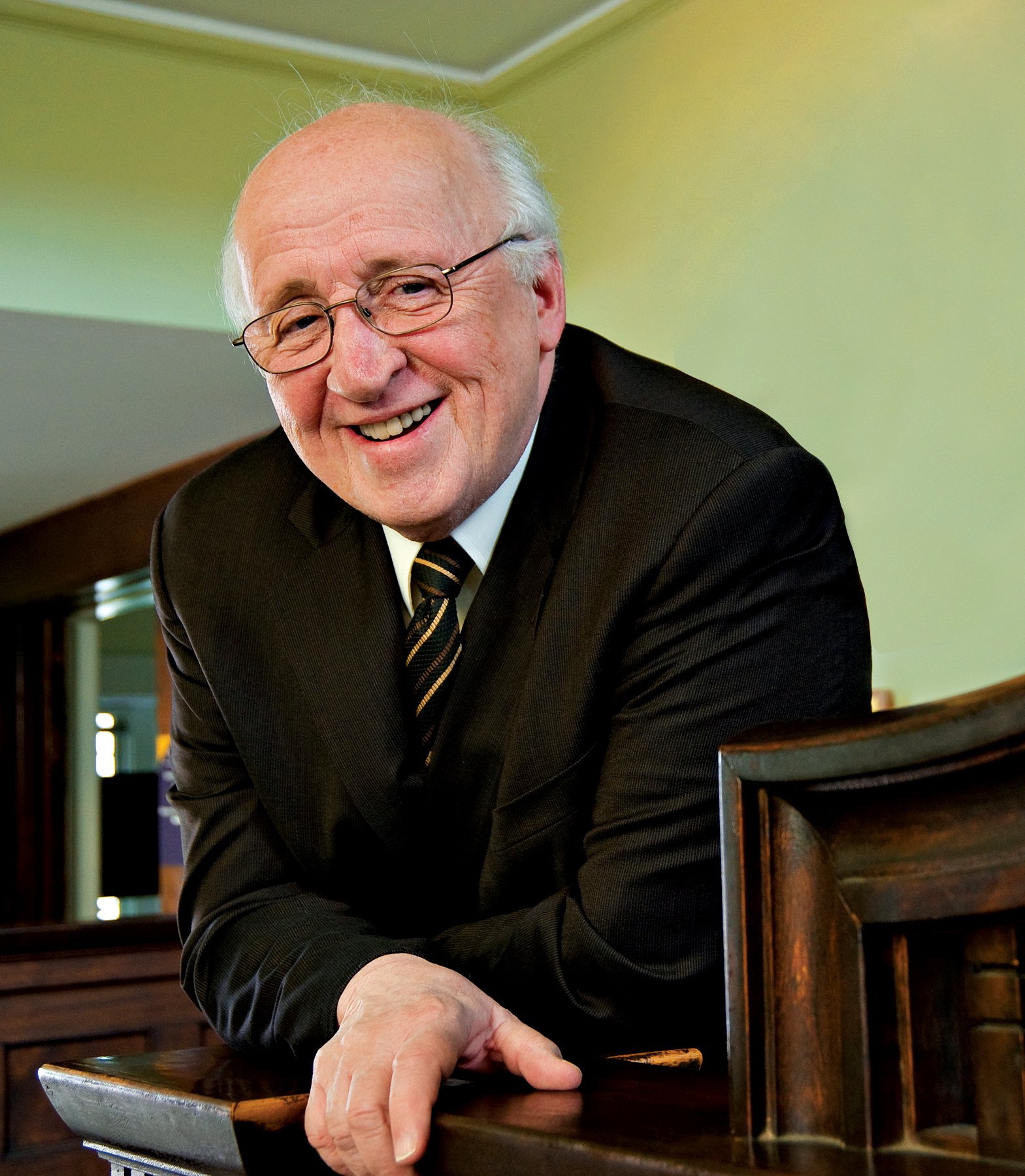 Richard is, as we’ve suggested, not only a fine Christian scholar – wanting to discern the good and the bad, the normative and the distorted, the faithful and the wrong-headed in the books he reads and the ideas he formulated as his own – but he does this with a highly developed sense of what Kuyper called “common grace.” That is, he searches for the “all truth is God’s truth” sort of stuff that even when proposed by pagan scholars or philosophers whose fundamental loyalties don’t comport with Christian faith, are still right and good and beautiful and true. Or maybe somewhat right, just pretty good, nearly lovely, and half true.
Richard is, as we’ve suggested, not only a fine Christian scholar – wanting to discern the good and the bad, the normative and the distorted, the faithful and the wrong-headed in the books he reads and the ideas he formulated as his own – but he does this with a highly developed sense of what Kuyper called “common grace.” That is, he searches for the “all truth is God’s truth” sort of stuff that even when proposed by pagan scholars or philosophers whose fundamental loyalties don’t comport with Christian faith, are still right and good and beautiful and true. Or maybe somewhat right, just pretty good, nearly lovely, and half true.
Can we discern the good, receiving as true blessings the insight of scholars, writers, artists, cultural reformers, civic leaders who offer some partial truth, some good inspiration? Must we be curmudgeonly, always naming the negative? Must we be mostly critical and say an uncompromising “no” to some stuff? (This was, in fact, another robust stream in Kuyper which he called “the anti-thesis.” Mouw tells us about this, too, and how this lead to the formation of uniquely Christian organizations in early 20th century Holland, including Kuyper’s own Free University and the Anti-Revolutionary Christian political party.) Mouw is Kuyper for today, balancing “common grace” and “the anti-thesis.” He draws some lines in the sand and then eagerly builds bridges.
He’s a master at this generous but principled sense of seeing the good and the unhelpful in books and scholars and cultural trends, and a good part of Adventures in Evangelical Civility: A Lifelong Quest… chronicles his journey in this process. It is, as I’ve said, important work for most of us, and thrilling for any of us who are armchair scholars, generalists who want in on some of this without being called to the primary work of being a philosopher or public intellectual. I loved reading it, and hope many of our fans will trust me on this and pick it up.
 As much of an evangelical and a “world-formative” (“transformationalist”) type neo-Calvinist as he is, Mouw has great loyalty to his old pietist background. (And, relatedly, he loves quoting old hymns!) I so enjoyed an older book he called The Smell of Sawdust: What Evangelicals Can Learn from Their Fundamentalist Heritage where he looks less at what is constricted and bad about fundamentalism, but what he and other progressive, evangelical intellectuals might what to honor and value from that tradition. (What did I tell you — he’s generous and kind to a fault.)
As much of an evangelical and a “world-formative” (“transformationalist”) type neo-Calvinist as he is, Mouw has great loyalty to his old pietist background. (And, relatedly, he loves quoting old hymns!) I so enjoyed an older book he called The Smell of Sawdust: What Evangelicals Can Learn from Their Fundamentalist Heritage where he looks less at what is constricted and bad about fundamentalism, but what he and other progressive, evangelical intellectuals might what to honor and value from that tradition. (What did I tell you — he’s generous and kind to a fault.)
Wherever you find yourself – in college, in business, in a church with varying viewpoints, at work with a diverse team of co-workers, or even in your extended family – this effort to see the good in things and work for common ground intellectually is a practice on display from which you can learn. How can we navigate faithfully the good and the bad around us, the wise and the foolish, saying yes and saying no, with grace and clarity? I trust Mouw on this as much as anyone and this book gives us a glimpse into how it’s done.
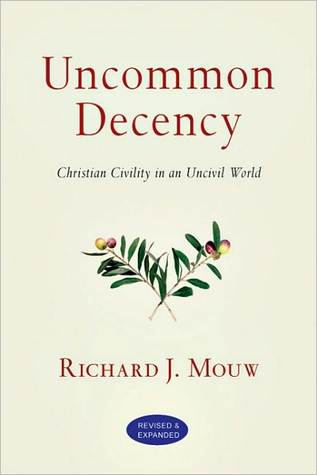 Mouw, you may know, wrote a popular level book called Uncommon Decency: Christian Civility in an Uncivil World (IVP; $16.00) which I’ve promoted for years, now. It is an all-time favorite of mine and I’ve read it several times. In it, he swipes a line from Martin Marty about how easy it is to be civil when one doesn’t hold passionate principles (and how easy it is to passionately promote one’s principles if one isn’t interested in civility.) Mouw, inspired by Marty, develops this theme of how to practice both: convicted civility. It’s a great book and you can see its fingerprints here in this more serious new one.
Mouw, you may know, wrote a popular level book called Uncommon Decency: Christian Civility in an Uncivil World (IVP; $16.00) which I’ve promoted for years, now. It is an all-time favorite of mine and I’ve read it several times. In it, he swipes a line from Martin Marty about how easy it is to be civil when one doesn’t hold passionate principles (and how easy it is to passionately promote one’s principles if one isn’t interested in civility.) Mouw, inspired by Marty, develops this theme of how to practice both: convicted civility. It’s a great book and you can see its fingerprints here in this more serious new one.
It has been an adventure for him to learn this habit and that little civility book is wise and beautiful and helpful. Adventures in… is less overt about how to do this, live with civility, but it bears witness to a life doing so in both the church and the world of higher education. Mouw is quick to admit (and tells some honest stories about) his failures in this regard. One can only admire such a person and pray that his tribe increases. Maybe if enough of us pay attention to this carefully-developed intellectual memoir we will see for ourselves, how it happens, the pitfalls to avoid, the quandaries of such commitments, and difficulties that ensue in this particular calling. I don’t have to tell you – again, see above – that not everybody wants to “think Christianly” let alone do so with gracious awareness and appreciation of others. Mouw shows us here how to go about being a thoughtful, open-minded, orthodox Christian thinker and how to translate that heady behind the scenes work — he calls these exercises in thinking well “mental calisthenics” which prepare us intellectually — into efforts of public goodness.
Mouw’s own lifelong quest has not always been pleasant and he has found, as I have, and as you may have, too, that sometimes common ground is a thorny ground. Sometimes we are blasted by “both sides” with few appreciating our well-intended efforts to see good all around. lt is, after all –i f you can picture it — a cruciform posture to hold arms outstretched. Mouw only alludes to this on occasion, but he gets it; such “common ground” mission is often misunderstood and is sometimes, despite all the lovely rhetoric about higher ground and generosity, painful and hard. It hasn’t always been easy and Rich tells us a bit about this hard part of the journey.
The book ends on this very theme, in fact, as he cites a passage from an inaugural address, this time not of Kuyper, but from Edward Carnell, one of Mouw’s predecessors in the Fuller presidency, having served there in the 1950s, enduring some stressful controversy as he navigated, even then, the shift from fundamentalism to evangelicalism to “neo-evangelicalism.” Mouw writes of Carnell’s own quest for common ground:
Carnell’s quest for common ground required what was for him – and for some other evangelicals who have attempted to travel a similar path to common ground in the past — much painful rejection. These days some of us can pursue the journey with fewer obstacles. This does not mean, though, that the quest is without its dangers – which is why it must always be carried on under the illumination of the Word that “is a lamp for my feet, a light on my path” (Ps. 119:105.)
 Space does not permit me to reflect on each of the fascinating and stimulating chapters in Adventures in Evangelical Civility: A Lifelong Quest... He covers a lot of ground and it occasionally gets pretty deep as he explains, say, significant insights from political theorists (Hobbes, Locke,Rousseau – fascinating!) or post-modern philosophers and the notions of “social location” in feminist or liberation theologies. He calmly narrates his own history of reading, of learning, of grappling, of appreciating the book or author or idea that perhaps at first blush is troublesome or wrong-headed. I myself learned much from these few more demanding sections in the book. And I was reminded about this process, this balanced, thoughtful, discerning, project of being a life-long learner (for the glory of God and the common good.)
Space does not permit me to reflect on each of the fascinating and stimulating chapters in Adventures in Evangelical Civility: A Lifelong Quest... He covers a lot of ground and it occasionally gets pretty deep as he explains, say, significant insights from political theorists (Hobbes, Locke,Rousseau – fascinating!) or post-modern philosophers and the notions of “social location” in feminist or liberation theologies. He calmly narrates his own history of reading, of learning, of grappling, of appreciating the book or author or idea that perhaps at first blush is troublesome or wrong-headed. I myself learned much from these few more demanding sections in the book. And I was reminded about this process, this balanced, thoughtful, discerning, project of being a life-long learner (for the glory of God and the common good.)
Other chapters, though, were not so intellectually demanding, and were fabulously interesting and truly inspiring. Mouw, as I hope you know, helped draft the famous 1973 Chicago Declaration of Social Concern that was so influential for the rise of evangelical social justice movements among then young leaders such as John Perkins and Jim Wallis and groups as diverse as the evangelical feminists of Daughters of Sarah, the rather Kuyperian Center for Public Justice, and the consistent-life activists of Ron Sider’s Evangelicals for Social Action. Mouw’s 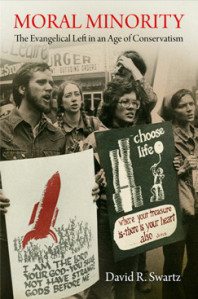 own ruminations about that heady week-end and how he became
own ruminations about that heady week-end and how he became 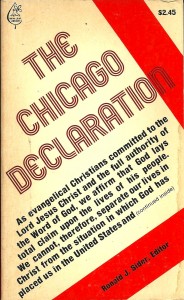 friends with the Mennonite scholar John Howard Yoder (with whom he often did speaking engagements, contrasting the cultural engagement approaches of Anabaptists and his own Reformed worldview) mean a lot to me and I commend the book to many of our friends just to read those powerful reflections. Again, this isn’t really a memoir – not too much inside baseball, telling of dramatic stories, revealing gossip – but a calm chronicle of the wisdom from this premier evangelical public intellectual about his own ideas and commitments, forged as they were over the years. But he does reveal some great stuff, and it will be gratifying for those who have been culturally-engaged Christians a while, now, and (I am sure) very important for the rising generation who need to know the story into which they are emerging.
friends with the Mennonite scholar John Howard Yoder (with whom he often did speaking engagements, contrasting the cultural engagement approaches of Anabaptists and his own Reformed worldview) mean a lot to me and I commend the book to many of our friends just to read those powerful reflections. Again, this isn’t really a memoir – not too much inside baseball, telling of dramatic stories, revealing gossip – but a calm chronicle of the wisdom from this premier evangelical public intellectual about his own ideas and commitments, forged as they were over the years. But he does reveal some great stuff, and it will be gratifying for those who have been culturally-engaged Christians a while, now, and (I am sure) very important for the rising generation who need to know the story into which they are emerging.
For many, Professor Mouw’s ruminations about how he is at once ecumenical, evangelical, and Reformed, will be very helpful. I hope mainline denominational folks read it, and I hope thoughtful evangelicals pick it up. (And I hope each learn to be as self-reflective of their own particular traditions as Mouw is about his own strand of Calvinism.) Again, in this era when even the public media tosses around the word “evangelical” without much nuance or understanding, Mouw’s storytelling will be very valuable.
In fact, as Public Radio star Krista Tippet (of On Being and The Civil Conversation Project) writes,
Richard Mouw’s account of his ‘adventures in Christian civility’ is, for the reader, an adventure through American, evangelical, and ecumenical evolution between the last century and this…. importantly, it winsomely brings into relief the virtue of Christian humility with which he has walked the faithful, exacting, intersection between the positions one holds and the way one treats kin, strangers, and enemies along the way. How grateful I am that Richard Mow is in the world , and how glad I am that he has written this book.
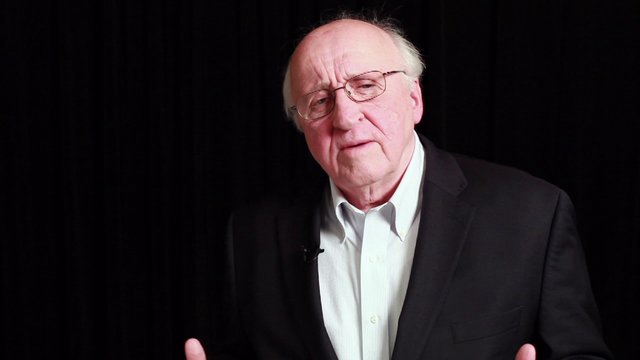 One of the most fascinating examples of Mouw’s eagerness to engage in dialogue with others is in his surprising passion for evangelical-Mormon dialogue. This has been a hard journey for him and perhaps the area in which his peacemaking and openness to “common ground” has been most controversial and misunderstood. He has published a bit in this field, summarized nicely in the Eerdmans paperback called Talking with Mormons: An Invitation to Evangelicals. Some of this is explained in a wonderful chapter in Adventures In… on interfaith conversations – again, he calmly narrates his learnings, tells some stories of certain conferences or events or how he came to write a book on the subject. Interfaith conversations are increasingly common and to get this right, framed by a nice balance between commitments to Biblical teaching and a generous commitment to humility, pursued with intellectual rigor among real friendships is so important. Again, Mouw represents a wise and faithful approach, not drifting towards an untenable universalism on one hand or an overly strict narrowness on the other.
One of the most fascinating examples of Mouw’s eagerness to engage in dialogue with others is in his surprising passion for evangelical-Mormon dialogue. This has been a hard journey for him and perhaps the area in which his peacemaking and openness to “common ground” has been most controversial and misunderstood. He has published a bit in this field, summarized nicely in the Eerdmans paperback called Talking with Mormons: An Invitation to Evangelicals. Some of this is explained in a wonderful chapter in Adventures In… on interfaith conversations – again, he calmly narrates his learnings, tells some stories of certain conferences or events or how he came to write a book on the subject. Interfaith conversations are increasingly common and to get this right, framed by a nice balance between commitments to Biblical teaching and a generous commitment to humility, pursued with intellectual rigor among real friendships is so important. Again, Mouw represents a wise and faithful approach, not drifting towards an untenable universalism on one hand or an overly strict narrowness on the other.
The other day a friend with progressive leanings teased me a bit when he saw the title of this book – “evangelical civility is an oxymoron,” he exclaimed – and I wanted to sit him down and read some of this exact chapter out loud. Mouw is evangelical with fairly conventional views of what the Bible teaches and what traditional “mere Christianity” orthodox demands. And he is indeed civil, generous, always searching for common ground, human commonness. If he can do this in interfaith circles, even within the greatly contested world of Latter Day Saints discourse and politics maybe it could happen among mainline church folk and their evangelical community church siblings across town. We can pray, and we can read this book.
And I’m not alone in declaring how wise and thoughtful and valuable this book is. Take a look at the rave reviews on the back cover.
Besides the beautiful endorsement from NPRs Krista Tippett, here are comments from Grant Wacker, church historian from Duke Divinity School and conservative writer and thinker Michael Cromartie of the Ethics and Public Policy Center, the popular Baptist policy advocate Russell Moore and the journalist and scholar Molly Worthen.
I like that they have such diverse critics commending this book to us. Krista Tippett is right — “Adventures in Evangelical Civility is written in the fullness of his voice – as a teacher and leader, a Christian public intellectual, and an immensely wise and gracious human being.”
Fine gems often come in small packages. With graceful prose and elegant simplicity, Mouw draws on classical Calvinists, biblical scholars, Mormon leaders, recent historians, Catholic and Anabaptist theologians, and theist and atheist philosophers to explore the manifold links between common and particular grace. As the premier evangelical public intellectual of his time, Mouw finds a mandate squarely within historic Christian orthodoxy for ‘convicted civility.’ This mandate calls for a principled effort both to speak to other ears and to listen to other voices that have similarly sought to see the glories of God’s self-revelation in the wider reaches of contemporary culture.
— Grant Wacker, Duke Divinity School
Richard Mouw has helped many of us make sense of so much over the years. Now he gives us a fascinating and intimate portrait of how his own convictions were formed. It is a lively and spirited tale of his journey through studies in philosophy, theology, and political theory, interspersed with stories of ecumenical dialogues and important encounters with religious leaders from diverse traditions. In the evangelical community, no one has more effectively defended and encouraged bringing orthodox Christian faith into the public arena with civility and clarity than Mouw. As Christians face the ongoing challenges of living faithfully in public life, this book is an inspiring testament by a man who has served as a model to so many.
— Michael Cromartie, vice president, Ethics and Public Policy Center
Richard Mouw and I were walking together to a dinner meeting in Washington, DC, one evening when we realized we were lost. It took us an hour to get where we were going, and I consider that God’s providence. I learned more in that hour’s walk than I had in a long time, and I’m still quoting what I learned from Dr. Mouw that night. This book is much like that walk. You, the reader, will find here deep insight into important topics, told with a gleam in the eye, all at a brisk, entertaining pace. You will ponder what you read here often. Even on those few points when I as a reader would argue with Mouw (on Mormonism, for instance), he kept my attention and sharpened me in ways I hadn’t anticipated. Richard Mouw’s life, brilliance, experience, and prose are extraordinary. Read this book. You will be the better for having walked alongside such a humble genius.
–Russell Moore, president, Ethics and Religious Liberty Commission, Southern Baptist Convention
What a treat to wrestle with modernity alongside a first-rate theological mind! At a time when the culture wars frequently shut down civil debate and fill our public square with rancor, Richard Mouw offers a powerful antidote. His reflections on a lifelong encounter with the great thinkers of the modern age–aimed at understanding the burden and beauty of our common humanity–will edify and encourage believers and nonbelievers of all stripes.
–Molly Worthen, University of North Carolina at Chapel Hill; author of Apostles of Reason: The Crisis of Authority in American Evangelicalism

SPECIAL OFFER:
WE WILL SEND YOU ANOTHER RICHARD MOUW BOOK ABSOLUTELY FREE
While supplies last. Offer expires November 27th.
HERE’S THE DEAL: BUY Adventures in Evangelical Civility: A Lifelong Quest for Common Ground by Richard Mouw (Brazos Press; $24.99) at our discounted price ($22.49) AND we will send to you at no charge with our compliments one of these two wonderful collections of short pieces by Rich Mouw.
Mouw’s a master of the short essay, an art he even mentions in his ruminations on being a so-called public intellectual in Adventures in… Take your pick. If we run out of your first choice, we’ll send you one of these two. Don’t wait, this deal only lasts a few days. After that, of course, we’ll still honor the discount, but don’t ask for the freebie after this week.
We can send, while supplies last, either of these two. Just tell us which you want as your free gift by using our secure order form page — use the link below. We’ll get back to you and confirm everything.
Praying at Burger King or Called to the Life of the Mind.
FREE with a purchase of Adventures…
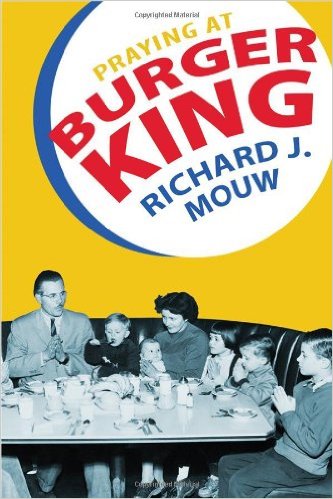
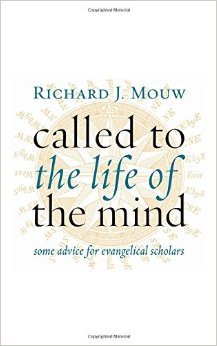
BookNotes
DISCOUNT
ANY ITEM MENTIONED
10% off
ORDER
Adventures in Evangelical Civility:
A Lifelong Quest for Common Ground
AND
get a free
Richard Mouw paperback
– while supplies last –
offer expires November 27, 2016 order here
takes you to the secure Hearts & Minds order form page
just tell us what you want
inquire here
if you have questions or need more information
just ask us what you want to know
Hearts & Minds 234 East Main Street Dallastown, PA 17313 717-246-3333

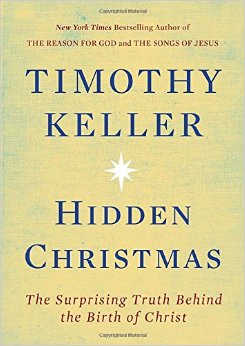 Hidden Christmas: The Surprising Truth Behind the Birth of Christ TImothy Keller (Viking) $20.00 I believe this is my own choice for best holiday book this year (even though it is not a daily devotional, but a sustained short book.) I am very grateful for its clear headed teaching. Keller is known for preaching to fairly sophisticated New Yorkers and he loves to draw in citations from sources as divergent as Bertrand Russell and J.R. R. Tolkien and Vaclav Havel. Drawing on contemporary pieces in the New Yorker to old school theological voices from church history and plenty of episodes from his own life, Keller knows how to weave together wonderful essays, powerful, compelling sermons, always relating the power of the gospel to help us realize that we cannot rescue ourselves, that God in Christ is doing the work necessary to bring us salvation, community, and a future of sustainable hope. Like most of our BookNotes readers, I have enjoyed many a Christmas and have read lots of pages of Advent devotionals. Too many seem scolding, urging us to do, or not do, this or that. Hidden Christmas allows us to enter the texts themselves within the bigger picture of the whole of Scripture, revealing the good news of God’s grace. My heart sings as I hear such solid, gospel-centered preaching related so well to an audience seeking for deep truth. Despite the blase cover, this offers eight really good chapters making one cogent case for Christmas’s truest meaning. Highly recommended.
Hidden Christmas: The Surprising Truth Behind the Birth of Christ TImothy Keller (Viking) $20.00 I believe this is my own choice for best holiday book this year (even though it is not a daily devotional, but a sustained short book.) I am very grateful for its clear headed teaching. Keller is known for preaching to fairly sophisticated New Yorkers and he loves to draw in citations from sources as divergent as Bertrand Russell and J.R. R. Tolkien and Vaclav Havel. Drawing on contemporary pieces in the New Yorker to old school theological voices from church history and plenty of episodes from his own life, Keller knows how to weave together wonderful essays, powerful, compelling sermons, always relating the power of the gospel to help us realize that we cannot rescue ourselves, that God in Christ is doing the work necessary to bring us salvation, community, and a future of sustainable hope. Like most of our BookNotes readers, I have enjoyed many a Christmas and have read lots of pages of Advent devotionals. Too many seem scolding, urging us to do, or not do, this or that. Hidden Christmas allows us to enter the texts themselves within the bigger picture of the whole of Scripture, revealing the good news of God’s grace. My heart sings as I hear such solid, gospel-centered preaching related so well to an audience seeking for deep truth. Despite the blase cover, this offers eight really good chapters making one cogent case for Christmas’s truest meaning. Highly recommended. 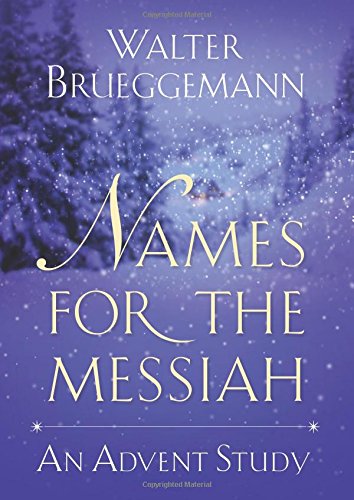 Names for the Messiah: An Advent Study Walter Brueggemann (Westminster John Knox) $13.00 Well, anyone familiar with Brueggemann’s vast body of work (we carry all of his books, by the way, including a new one that came out this fall, Social Criticism and Social Vision in Ancient Israel) most likely has wondered if there would ever be a book suitable for use in Advent. Here, Walt offers four succinct reflections on the mighty and beautiful royal names of the awaited Messiah found in Isaiah 9:6. After the four messages there is a study guide, with thoughtful reflection questions for each of the four chapters. This is a compact sized quite assessable book, laden with rich imagery from the ancient texts, often very helpful Biblical insight, all evoking the expected trajectory towards God’s shalom found in Christ Jesus
Names for the Messiah: An Advent Study Walter Brueggemann (Westminster John Knox) $13.00 Well, anyone familiar with Brueggemann’s vast body of work (we carry all of his books, by the way, including a new one that came out this fall, Social Criticism and Social Vision in Ancient Israel) most likely has wondered if there would ever be a book suitable for use in Advent. Here, Walt offers four succinct reflections on the mighty and beautiful royal names of the awaited Messiah found in Isaiah 9:6. After the four messages there is a study guide, with thoughtful reflection questions for each of the four chapters. This is a compact sized quite assessable book, laden with rich imagery from the ancient texts, often very helpful Biblical insight, all evoking the expected trajectory towards God’s shalom found in Christ Jesus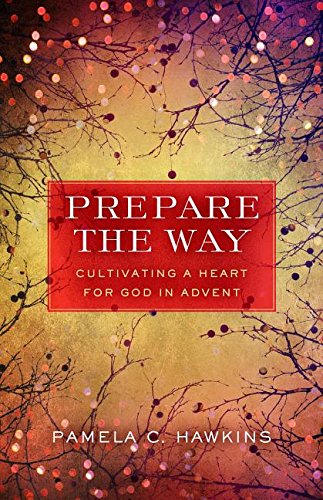 Prepare the Way: Cultivating a Heart for God in Advent Pamela C. Hawkins (Upper Room) $17.99 We really appreciate the gentle, lovely tone of most of the spiritual formation books published by this classic publisher and this nice collection of readings is a fine example of their style. What does it mean to “prepare your heart”? Does Advent sometimes just slip away before we’ve prepared our hearts to welcome the Christ child?
Prepare the Way: Cultivating a Heart for God in Advent Pamela C. Hawkins (Upper Room) $17.99 We really appreciate the gentle, lovely tone of most of the spiritual formation books published by this classic publisher and this nice collection of readings is a fine example of their style. What does it mean to “prepare your heart”? Does Advent sometimes just slip away before we’ve prepared our hearts to welcome the Christ child?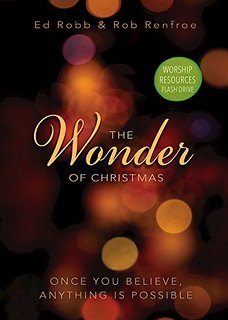 The Wonder of Christmas: Once You Believe Anything Is Possible Ed Robb & Rob Renfroe (Abingdon) $14.99 I like the small shape of this handsome paperback and how it has room for journaling and answering some reflection questions. I suppose it could sound trite to say this is about “rediscovering the true wonder of Christmas” but that is what this has on offer. At it’s heart is the gospel itself — God’s love for us! As one serious Bible professor (Craig Hill from Perkins School of Theology) says, “For many, the wonder of Christmas is buried beneath an avalanche of tinsel and wrapping paper, tradition, and sentimentality. We are reminded to “Keep Christ in Christmas” but how?”
The Wonder of Christmas: Once You Believe Anything Is Possible Ed Robb & Rob Renfroe (Abingdon) $14.99 I like the small shape of this handsome paperback and how it has room for journaling and answering some reflection questions. I suppose it could sound trite to say this is about “rediscovering the true wonder of Christmas” but that is what this has on offer. At it’s heart is the gospel itself — God’s love for us! As one serious Bible professor (Craig Hill from Perkins School of Theology) says, “For many, the wonder of Christmas is buried beneath an avalanche of tinsel and wrapping paper, tradition, and sentimentality. We are reminded to “Keep Christ in Christmas” but how?” 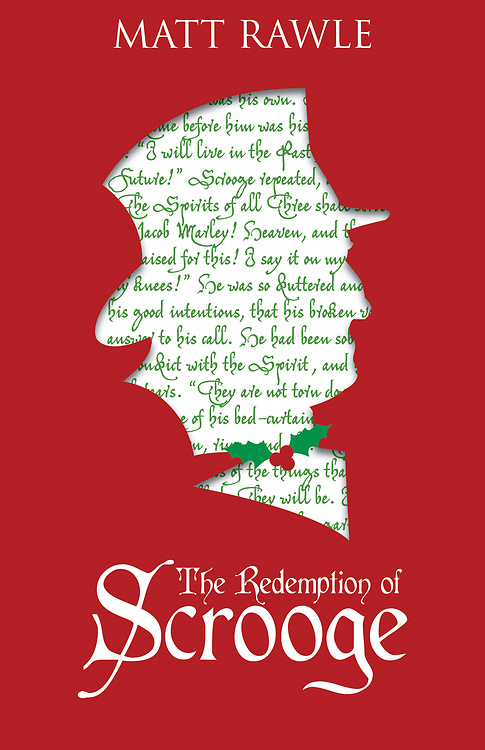 The Redemption of Scrooge Matt Rawle (Abingdon) $14.99 This is the third in a series of small group discussion guides that are to be used with exciting video footage on the accompanying DVD that use literature and pop culture as a springboard into conversations about the gospel. The first was The Faith of a Mockingbird which explores religious themes in the classic novel by Harper Lee. The second used the sci-fi TV show Doctor Who to generate conversations about faith and life. This third one uses the classic Christmas novel A Christmas Carol by Charles Dickens. This explores the world of Ebenezer Scrooge, Tiny Tim, and the Cratchits, with an eye to how the Christian faith is embedded in this beloved tale. You will (of course) meet the Ghosts of Christmas Past, Present, and Yet to Come and “learn about living with and for others in a world blessed by Jesus.”
The Redemption of Scrooge Matt Rawle (Abingdon) $14.99 This is the third in a series of small group discussion guides that are to be used with exciting video footage on the accompanying DVD that use literature and pop culture as a springboard into conversations about the gospel. The first was The Faith of a Mockingbird which explores religious themes in the classic novel by Harper Lee. The second used the sci-fi TV show Doctor Who to generate conversations about faith and life. This third one uses the classic Christmas novel A Christmas Carol by Charles Dickens. This explores the world of Ebenezer Scrooge, Tiny Tim, and the Cratchits, with an eye to how the Christian faith is embedded in this beloved tale. You will (of course) meet the Ghosts of Christmas Past, Present, and Yet to Come and “learn about living with and for others in a world blessed by Jesus.”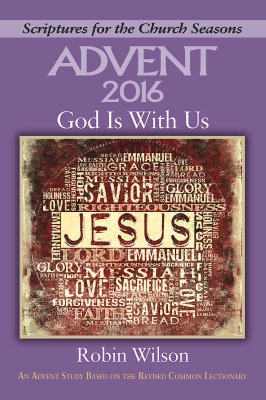 Advent 2016: God Is With Us — An Advent Study on the Revised Common Lectionary Robin Wilson (Abingdon) $12.99 This yearly release in the “Scriptures for the Church Seasons” series is usually a good seller for us, a no-nonsense, always interesting, inductive study of the texts found in the Revised Common Lectionary.
Advent 2016: God Is With Us — An Advent Study on the Revised Common Lectionary Robin Wilson (Abingdon) $12.99 This yearly release in the “Scriptures for the Church Seasons” series is usually a good seller for us, a no-nonsense, always interesting, inductive study of the texts found in the Revised Common Lectionary. 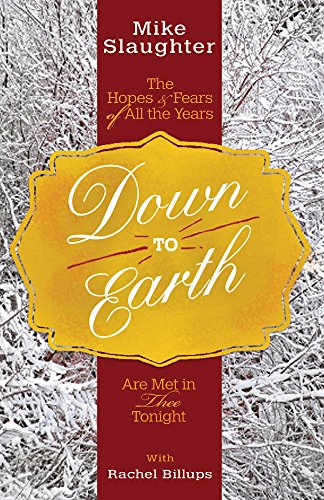 Down To Earth: The Hopes and Fears of All The Years Are Met In Thee Tonight Mike Slaughter & Rachel Billups (Abingdon) $16.99 Do you know Mike Slaughter? He has been the pastor of a nearly progressive mega-church, if you can imagine such a thing. He has a pretty successful, quite large, very evangelical church with progressive political concern; he’s outspoken and yet practical — he has numerous books about Christian living on being spiritual entrepreneurs, about resisting the allure of idols, even a few books on finances in Biblical perspective. It’s good to see a visionary who gets down to earth, with wisdom for all. (Brian McLaren says “if you’re a churchgoer or not, if you lean conservative or liberal, if you vote Republican or Democrat, if you’re a fervent believer or a wondering skeptic… Mike Slaughter will challenge you and inspire you.) There is a bit of social concern stuff explore here and some of the profits from the sale of this book go to the UMCOR “Beyond Bethlehem” program offering “hope for refugees this Christmas season” Good stuff.
Down To Earth: The Hopes and Fears of All The Years Are Met In Thee Tonight Mike Slaughter & Rachel Billups (Abingdon) $16.99 Do you know Mike Slaughter? He has been the pastor of a nearly progressive mega-church, if you can imagine such a thing. He has a pretty successful, quite large, very evangelical church with progressive political concern; he’s outspoken and yet practical — he has numerous books about Christian living on being spiritual entrepreneurs, about resisting the allure of idols, even a few books on finances in Biblical perspective. It’s good to see a visionary who gets down to earth, with wisdom for all. (Brian McLaren says “if you’re a churchgoer or not, if you lean conservative or liberal, if you vote Republican or Democrat, if you’re a fervent believer or a wondering skeptic… Mike Slaughter will challenge you and inspire you.) There is a bit of social concern stuff explore here and some of the profits from the sale of this book go to the UMCOR “Beyond Bethlehem” program offering “hope for refugees this Christmas season” Good stuff.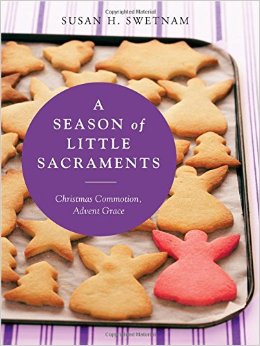 A Season of Little Sacraments: Christmas Commotion, Advent Grace Susan H. Swetnam (The Liturgical Press) $14.95 Oh my, I have restrained myself from reading this because I really want to experience it this Advent season. Forgive me for not knowing all the details but I love her use of the language of sacraments — I suppose more precise Catholics would call these things “sacramentals.” I’ve just started the spectacular book The Liturgies of the Ordinary: Sacred Practices in Everyday Life by Tish Harrison (I’ll review it more thoroughly soon) and this seems to be nearly a holiday version — written from the wilds of Idaho — of this same notion. And don’t you love the subtitle, too — Christmas Commotion, Advent Grace? Swetnam invites us along into this ordinary day-by-day walk through Advent, showing that the very “distractions” accused of taking Christ out of Christmas can be, kin fact, “little sacraments” — occasions for grace to break through and faith to deepen. As it says on the back cover “For readers who want to experience a truly sacred Advent without fleeing completely from contemporary society, A Season of Little Sacraments will be a welcome source of nourishment and delight.”
A Season of Little Sacraments: Christmas Commotion, Advent Grace Susan H. Swetnam (The Liturgical Press) $14.95 Oh my, I have restrained myself from reading this because I really want to experience it this Advent season. Forgive me for not knowing all the details but I love her use of the language of sacraments — I suppose more precise Catholics would call these things “sacramentals.” I’ve just started the spectacular book The Liturgies of the Ordinary: Sacred Practices in Everyday Life by Tish Harrison (I’ll review it more thoroughly soon) and this seems to be nearly a holiday version — written from the wilds of Idaho — of this same notion. And don’t you love the subtitle, too — Christmas Commotion, Advent Grace? Swetnam invites us along into this ordinary day-by-day walk through Advent, showing that the very “distractions” accused of taking Christ out of Christmas can be, kin fact, “little sacraments” — occasions for grace to break through and faith to deepen. As it says on the back cover “For readers who want to experience a truly sacred Advent without fleeing completely from contemporary society, A Season of Little Sacraments will be a welcome source of nourishment and delight.” 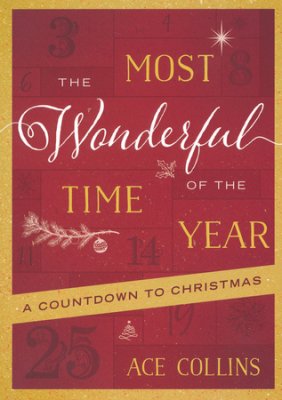 The Most Wonderful Time of the Year: A Countdown to Christmas Ace Collins (Abingdon) $16.99 Here is why I want to list this great little paperback — it isn’t so much the recipes for delicious-sounding holiday snacks nor the recipes for making little satchels and gifts for friends and neighbors. Those are nice, giving the book an upbeat and fun-loving DIY feel. But the major point of this, as with other Ace Collins books, are the stories. The stories behind the Advent and Christmas hymns. Collins guides us through 31 readings starting in December through the new year, offering joy and wonder by pondering the meaning of not only Christ’s birth but the songs and carols that have developed around this joyous season. This book of daily Scripture readings and activities and often very touching stories about popular Christmas traditions, carols and movies would make a lovely gift for someone you want to share with but for whom you may not want to “come on too strong.” Who wouldn’t like this handsome paperback chock full of lovely ideas and inspirational stories? Buy a couple and give ’em away. Cheers.
The Most Wonderful Time of the Year: A Countdown to Christmas Ace Collins (Abingdon) $16.99 Here is why I want to list this great little paperback — it isn’t so much the recipes for delicious-sounding holiday snacks nor the recipes for making little satchels and gifts for friends and neighbors. Those are nice, giving the book an upbeat and fun-loving DIY feel. But the major point of this, as with other Ace Collins books, are the stories. The stories behind the Advent and Christmas hymns. Collins guides us through 31 readings starting in December through the new year, offering joy and wonder by pondering the meaning of not only Christ’s birth but the songs and carols that have developed around this joyous season. This book of daily Scripture readings and activities and often very touching stories about popular Christmas traditions, carols and movies would make a lovely gift for someone you want to share with but for whom you may not want to “come on too strong.” Who wouldn’t like this handsome paperback chock full of lovely ideas and inspirational stories? Buy a couple and give ’em away. Cheers. Christmas Playlist: Four Songs That Bring You to the Heart of Christmas Alistair Begg (The Good Book Company) $9.99 I hope you know Begg — he is a passionate, Scottish Reformed preacher who is known for his exceptional clarity and solid Bible exposition. We’ve known of his evangelical ministry and good books and were delighted to met him at a C.S. Lewis conference years ago. He’s a sharp, clear preacher of the gospel. The strength of this book is, somewhat, admittedly, the clever title. (And the cover — the Christmas tree made, if you look carefully, from earbuds and their white cords.)
Christmas Playlist: Four Songs That Bring You to the Heart of Christmas Alistair Begg (The Good Book Company) $9.99 I hope you know Begg — he is a passionate, Scottish Reformed preacher who is known for his exceptional clarity and solid Bible exposition. We’ve known of his evangelical ministry and good books and were delighted to met him at a C.S. Lewis conference years ago. He’s a sharp, clear preacher of the gospel. The strength of this book is, somewhat, admittedly, the clever title. (And the cover — the Christmas tree made, if you look carefully, from earbuds and their white cords.)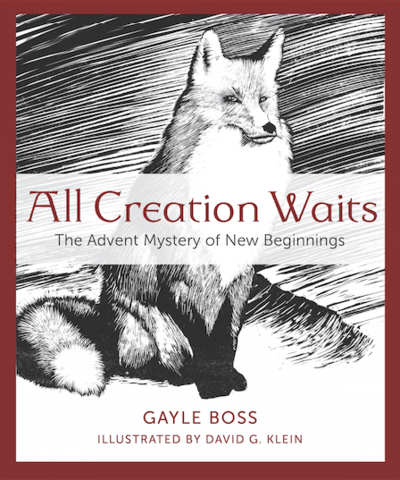 All Creation Waits: The Advent Mystery of New Beginnings Gayle Boss, illustrated by David G. Klein (Paraclete) $18.99 What a truly beautiful book this is, both in its simple but somehow luminous prose and in its large size woodcuts. It is a wonderful read, great to read aloud as a family, even — I don’t think it is necessarily a kid’s book, but it could be enjoyed by all ages.
All Creation Waits: The Advent Mystery of New Beginnings Gayle Boss, illustrated by David G. Klein (Paraclete) $18.99 What a truly beautiful book this is, both in its simple but somehow luminous prose and in its large size woodcuts. It is a wonderful read, great to read aloud as a family, even — I don’t think it is necessarily a kid’s book, but it could be enjoyed by all ages.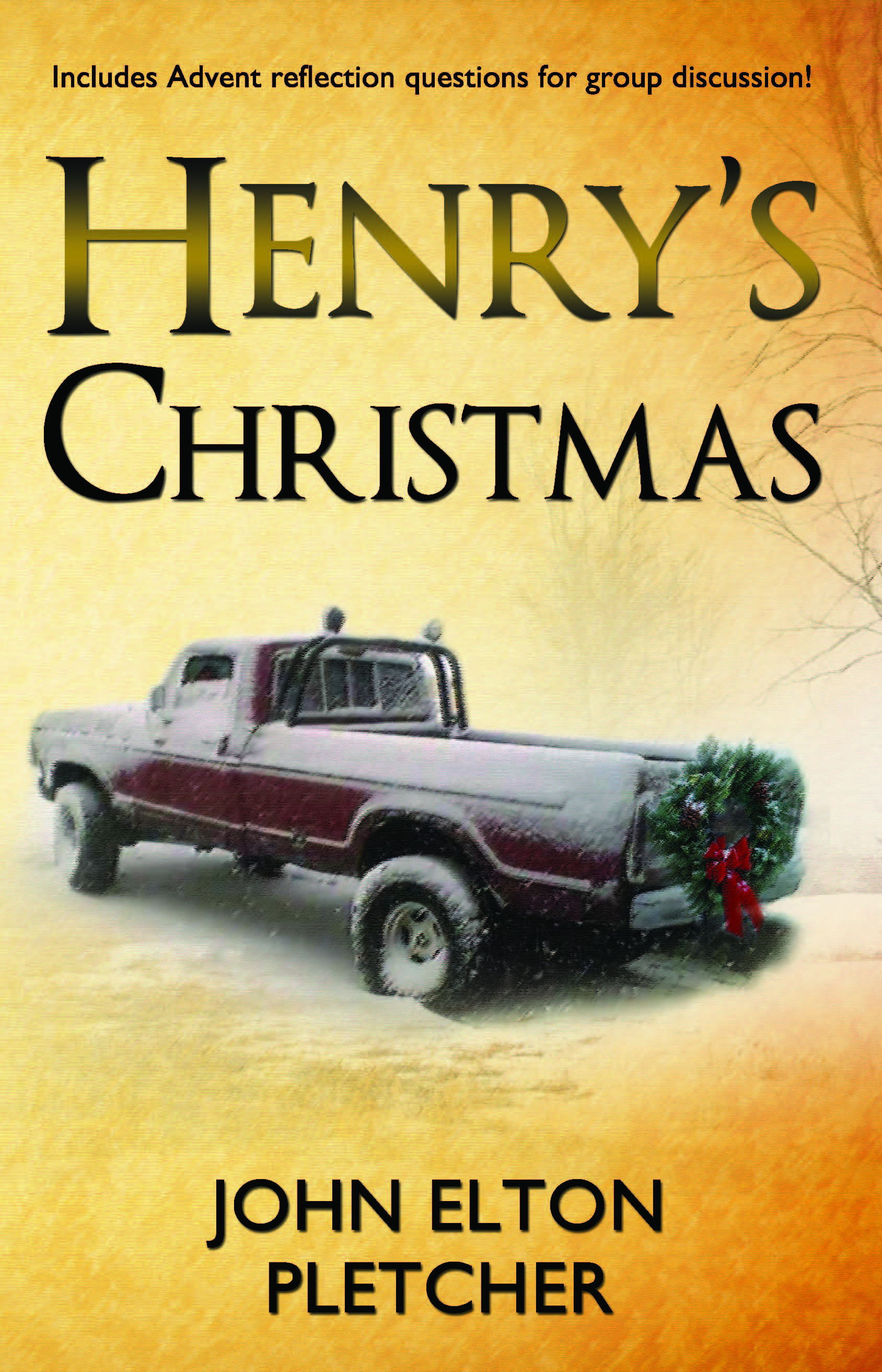 Henry’s Christmas John Elton Pletcher (Crosslink Publishing) $17.95 I want to persuade you to try this short Christmas novel, but want to be clear. It is a lovely little story written by a local friend and very good pastor. He has encouraged his flock to think faithfully about discipleship in all of life, including their work and callings in the world, so this alone makes us respect him. Happily he wrote a book about the faith and work stuff, but didn’t just rehash the many good works already published calling us to connect “Sunday and Monday, work and worship.” In Henry’s Glory Rev. John Pletcher wrote a novel to explore a Christian view of work. With a bunch of interesting characters, the main protagonists Zach and Maggie learn to see their work as part of God’s intentions and how they can use their own callings missionally, for the sake of making a difference in the world. There is a wrench on the cover and Henry, by the way, is an old Ford pick up truck.
Henry’s Christmas John Elton Pletcher (Crosslink Publishing) $17.95 I want to persuade you to try this short Christmas novel, but want to be clear. It is a lovely little story written by a local friend and very good pastor. He has encouraged his flock to think faithfully about discipleship in all of life, including their work and callings in the world, so this alone makes us respect him. Happily he wrote a book about the faith and work stuff, but didn’t just rehash the many good works already published calling us to connect “Sunday and Monday, work and worship.” In Henry’s Glory Rev. John Pletcher wrote a novel to explore a Christian view of work. With a bunch of interesting characters, the main protagonists Zach and Maggie learn to see their work as part of God’s intentions and how they can use their own callings missionally, for the sake of making a difference in the world. There is a wrench on the cover and Henry, by the way, is an old Ford pick up truck.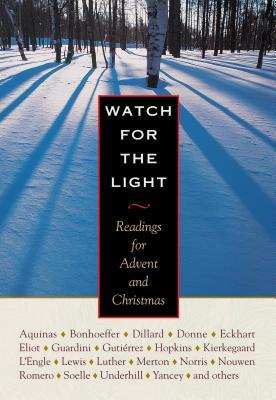 Watch for the Light: Readings for Advent and Christmas compiled and edited by Plough Publishing (Plough Publishing) $24.00 We have been so proud of this anthology of beautifully written, substantive writings and continue to promote it each year. This sturdy hardback includes short daily pieces by a real variety of sophisticated authors such as Dietrich Bonhoeffer, Annie Dillard, T.S. Eliot, Evelyn Underhill, and Dorothy Day. From Thomas Merton to Philip Yancey, from Madeline L’Engle to Henri Nouwen these pieces are provocative, thoughtful, lovely.
Watch for the Light: Readings for Advent and Christmas compiled and edited by Plough Publishing (Plough Publishing) $24.00 We have been so proud of this anthology of beautifully written, substantive writings and continue to promote it each year. This sturdy hardback includes short daily pieces by a real variety of sophisticated authors such as Dietrich Bonhoeffer, Annie Dillard, T.S. Eliot, Evelyn Underhill, and Dorothy Day. From Thomas Merton to Philip Yancey, from Madeline L’Engle to Henri Nouwen these pieces are provocative, thoughtful, lovely.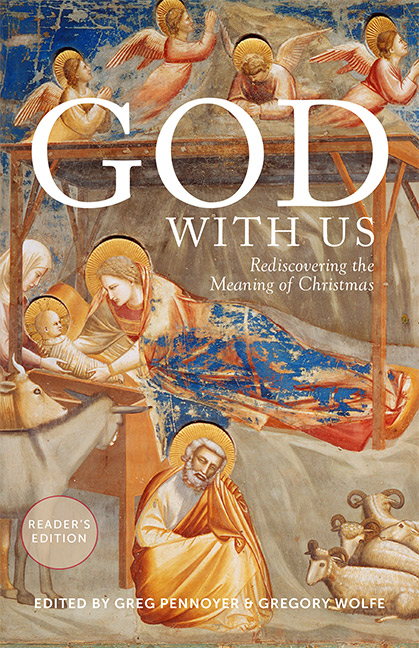 God With Us: Rediscovering the Meaning of Christmas (Reader’s Edition) edited by Greg Pennoyer & Gregory Wolfe (Paraclete Press) $18.99 We so loved the larger hardback with so much lavish, full-color art, but that is now fully out of print. This very handsome paperback, nicely designed and produced, is still a gorgeous book and so full of mature, seasonal reflections. Here you will find reflections by Eugene Peterson, Richard John Neuhaus, Scott Cairns, Lucy Shaw, Kathleen Norris and a final piece about Epiphany by Emilie Griffin. Beth Bevis offers an informative and lovely history of various feast days.
God With Us: Rediscovering the Meaning of Christmas (Reader’s Edition) edited by Greg Pennoyer & Gregory Wolfe (Paraclete Press) $18.99 We so loved the larger hardback with so much lavish, full-color art, but that is now fully out of print. This very handsome paperback, nicely designed and produced, is still a gorgeous book and so full of mature, seasonal reflections. Here you will find reflections by Eugene Peterson, Richard John Neuhaus, Scott Cairns, Lucy Shaw, Kathleen Norris and a final piece about Epiphany by Emilie Griffin. Beth Bevis offers an informative and lovely history of various feast days. 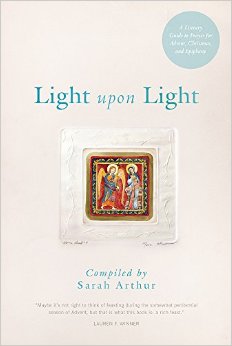 Light Upon Light: A Literary Guide to Prayer for Advent, Christmas and Epiphany compiled by Sarah Arthur (Paraclete Press) $18.99 This was one of our very best sellers of last year and I’m not sure what I wrote about it that so captured the imagination of the friends of Hearts & Minds, but it is a wonderful, wonderful devotional book drawing on literary excerpts, poems, short stories and the like. (Ms Arthur also has a similar one to use during Ordinary Time called At the Still Point: A Literary Guide to Prayer in Ordinary Time and one for use during Lent called Between Midnight and Dawn: A Literary Guide to Prayer for Lent, Holy Week, and Eastertide.) In each she offers a devotional with prayerful readings compiled from great, great writers. This really has the structured format of a prayer book, with an opening prayer for each day and suggested Scriptures and then readings (followed by suggestions for personal prayer and a closing prayer.) The suggested readings, day by day during Advent and into Epiphany, include poetic lines from writers such as Elizabeth Barrett Browning and Alfred Lord Tennyson or pieces of novels from Frederick Buechner or Oscar Hijuelos. There’s plenty of good use of poetry, older and contemporary, hymn-texts and literary essays. For anyone that loves great writing, this is a beautiful and meaningful way to ponder the Advent season through the lens of these wonderfully-selected writers.
Light Upon Light: A Literary Guide to Prayer for Advent, Christmas and Epiphany compiled by Sarah Arthur (Paraclete Press) $18.99 This was one of our very best sellers of last year and I’m not sure what I wrote about it that so captured the imagination of the friends of Hearts & Minds, but it is a wonderful, wonderful devotional book drawing on literary excerpts, poems, short stories and the like. (Ms Arthur also has a similar one to use during Ordinary Time called At the Still Point: A Literary Guide to Prayer in Ordinary Time and one for use during Lent called Between Midnight and Dawn: A Literary Guide to Prayer for Lent, Holy Week, and Eastertide.) In each she offers a devotional with prayerful readings compiled from great, great writers. This really has the structured format of a prayer book, with an opening prayer for each day and suggested Scriptures and then readings (followed by suggestions for personal prayer and a closing prayer.) The suggested readings, day by day during Advent and into Epiphany, include poetic lines from writers such as Elizabeth Barrett Browning and Alfred Lord Tennyson or pieces of novels from Frederick Buechner or Oscar Hijuelos. There’s plenty of good use of poetry, older and contemporary, hymn-texts and literary essays. For anyone that loves great writing, this is a beautiful and meaningful way to ponder the Advent season through the lens of these wonderfully-selected writers. 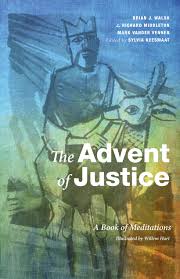 The Advent of Justice: A Book of Meditations Sylvia Keesmaat, Brian Walsh, Richard Middleton, Mark Vander Vennen (Cascade) $10.00 I have raved about this over and over, use it every year, and insist it is the most deeply Biblical Advent devotional I know. The readings are usually just a page, but they are thick with Older Testament insight, reflecting as they do on the ways in which the ancient Isaiah texts so famous for generating Advent hope, are much like today with our militarism, idolatry, injustice, and cultural captivity. Can God’s covenant people break out of such captivity? Can we truly hear these texts for their modern implication? This was first done as a resource for a Canadian peace and justice organization and now is offered to help us see how awaiting God’s Kingdom can shape us into people who care about justice and God’s righteousness in contrast to modern idolatries and ideologies. If you are unfamiliar with this, think of Keesmaat and Walsh’s Colossians Remixed or Walsh’s Habakkuk Before Breakfast or Middleton’s A New Heaven and a New Earth or Vander Vennen’s role in a book on global concerns co-written with Dutch economist Bob Goudzwaard, Hope in Troubled Times. These are all good friends, respected leaders, extraordinary BIble scholars. Whew.
The Advent of Justice: A Book of Meditations Sylvia Keesmaat, Brian Walsh, Richard Middleton, Mark Vander Vennen (Cascade) $10.00 I have raved about this over and over, use it every year, and insist it is the most deeply Biblical Advent devotional I know. The readings are usually just a page, but they are thick with Older Testament insight, reflecting as they do on the ways in which the ancient Isaiah texts so famous for generating Advent hope, are much like today with our militarism, idolatry, injustice, and cultural captivity. Can God’s covenant people break out of such captivity? Can we truly hear these texts for their modern implication? This was first done as a resource for a Canadian peace and justice organization and now is offered to help us see how awaiting God’s Kingdom can shape us into people who care about justice and God’s righteousness in contrast to modern idolatries and ideologies. If you are unfamiliar with this, think of Keesmaat and Walsh’s Colossians Remixed or Walsh’s Habakkuk Before Breakfast or Middleton’s A New Heaven and a New Earth or Vander Vennen’s role in a book on global concerns co-written with Dutch economist Bob Goudzwaard, Hope in Troubled Times. These are all good friends, respected leaders, extraordinary BIble scholars. Whew.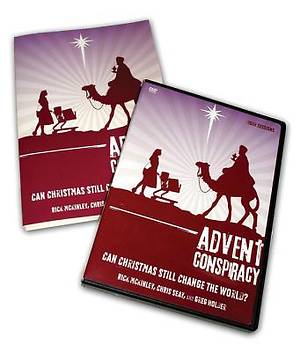 The Advent Conspiracy: Can Christmas Still Change the World? DVD with Participants Guide
The Advent Conspiracy: Can Christmas Still Change the World? DVD with Participants Guide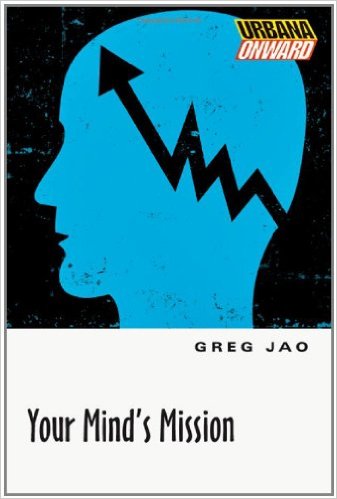 power of little books like Greg Jao’s Your Minds Mission or James Sire’s Discipleship of the Mind and Habits of the Mind? We’ve spend decades promoting books to help us think about our social and political and economic duties corem deo by recommending titles such as Brian Walsh & Richard Middleton’s book called The Transforming Vision or Al Wolter’s Creation Regained or even Robert Webber’s classic The Secular Saint: A Case for Evangelical Social Responsibility. Speaking of classics, might we revisit even Richard Niebuhr’s Christ and Culture? It is little wonder we don’t have a lot of bookstores selling a lot of books about, say, faithfully considered Christian views of politics, because we don’t have much interest in developing a radical Christian mind. We have Christian theology and morality and worship and prayer, but — like that famous book from the early 1960s called The Christian Mind by C.S. Lewis’s friend Harry Blamires put it, “we don’t have a Christian mind.” Although much has changed since Mark Noll’s critical assessment in 1994s The Scandal of the Evangelical Mind, the lack of a consensus about Christian political principles, on such horrid display this year, I have this sense that his word is still needed. No wonder when I say we shouldn’t accommodate ourselves necessarily to a right wing or left wing agenda, people look at me like I’m talking nonsense. And no wonder hardly anybody buys the books I suggest on these kinds of topics.
power of little books like Greg Jao’s Your Minds Mission or James Sire’s Discipleship of the Mind and Habits of the Mind? We’ve spend decades promoting books to help us think about our social and political and economic duties corem deo by recommending titles such as Brian Walsh & Richard Middleton’s book called The Transforming Vision or Al Wolter’s Creation Regained or even Robert Webber’s classic The Secular Saint: A Case for Evangelical Social Responsibility. Speaking of classics, might we revisit even Richard Niebuhr’s Christ and Culture? It is little wonder we don’t have a lot of bookstores selling a lot of books about, say, faithfully considered Christian views of politics, because we don’t have much interest in developing a radical Christian mind. We have Christian theology and morality and worship and prayer, but — like that famous book from the early 1960s called The Christian Mind by C.S. Lewis’s friend Harry Blamires put it, “we don’t have a Christian mind.” Although much has changed since Mark Noll’s critical assessment in 1994s The Scandal of the Evangelical Mind, the lack of a consensus about Christian political principles, on such horrid display this year, I have this sense that his word is still needed. No wonder when I say we shouldn’t accommodate ourselves necessarily to a right wing or left wing agenda, people look at me like I’m talking nonsense. And no wonder hardly anybody buys the books I suggest on these kinds of topics. 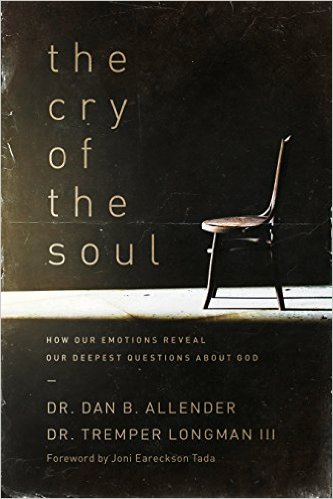 The Cry of the Soul: How Our Emotions Reveal Our Deepest Questions about God Dan Allender & Tremper Longman III (NavPress) $16.99 I certainly hope you know this dynamic duo who often co-write books together. Allender is a respected, moving, thoughtful psychologist while Longman is surely one of the best Old Testament scholars writing today. Here, they join up to explore how the Bible itself authorizes us to embrace our negative emotions and how the Scriptures themselves, especially the Psalms, can help us not only name, discern, and value our hard feelings and dark desires (anger, worry, fear, despair, and the like) but how they can reveal truths to us about God and God’s faithfulness and redemptive work in our lives. In a way, this is an excellent book for anyone, anytime, about opening up the emotional side of life or, put another way, about being more deeply spiritual as we walk with God in our rawest aspects of our humanity. So is it self-helpy psychology or Biblical spirituality? I’d say it is both. The Cry of the Soul is a life-line for those who are hurting, distressed, anxious, wanting tools to learn how to handle our pain in light of solid Bible teaching.
The Cry of the Soul: How Our Emotions Reveal Our Deepest Questions about God Dan Allender & Tremper Longman III (NavPress) $16.99 I certainly hope you know this dynamic duo who often co-write books together. Allender is a respected, moving, thoughtful psychologist while Longman is surely one of the best Old Testament scholars writing today. Here, they join up to explore how the Bible itself authorizes us to embrace our negative emotions and how the Scriptures themselves, especially the Psalms, can help us not only name, discern, and value our hard feelings and dark desires (anger, worry, fear, despair, and the like) but how they can reveal truths to us about God and God’s faithfulness and redemptive work in our lives. In a way, this is an excellent book for anyone, anytime, about opening up the emotional side of life or, put another way, about being more deeply spiritual as we walk with God in our rawest aspects of our humanity. So is it self-helpy psychology or Biblical spirituality? I’d say it is both. The Cry of the Soul is a life-line for those who are hurting, distressed, anxious, wanting tools to learn how to handle our pain in light of solid Bible teaching. 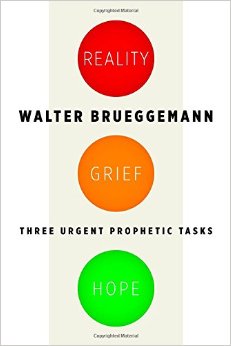 Reality, Grief, Hope: Three Urgent Prophetic Tasks Walter Brueggemann (Eerdmans) $15.00 This is the long, long-awaited sequel to Brueggemann’s most beloved books, The Prophetic Imagination and The Hopeful Imagination. Published in 2014, it deserves to be read and re-read, I think, as it points us in his deep, eloquent prose, to these three profound human tasks, tasks we must take up as Christians if we are to be faithful agents of God’s coming regime. To name reality as it is, to grief it well, and then — but only then — to proclaim gospel hope, these are what Brueggemann incisively explores. As only he can, he draws connections between the post-9/11 world and the destruction of ancient Jerusalem. We simply must name and understand the catastrophe of our times. This is how we can escape “the deathliness of denial and despair.”
Reality, Grief, Hope: Three Urgent Prophetic Tasks Walter Brueggemann (Eerdmans) $15.00 This is the long, long-awaited sequel to Brueggemann’s most beloved books, The Prophetic Imagination and The Hopeful Imagination. Published in 2014, it deserves to be read and re-read, I think, as it points us in his deep, eloquent prose, to these three profound human tasks, tasks we must take up as Christians if we are to be faithful agents of God’s coming regime. To name reality as it is, to grief it well, and then — but only then — to proclaim gospel hope, these are what Brueggemann incisively explores. As only he can, he draws connections between the post-9/11 world and the destruction of ancient Jerusalem. We simply must name and understand the catastrophe of our times. This is how we can escape “the deathliness of denial and despair.”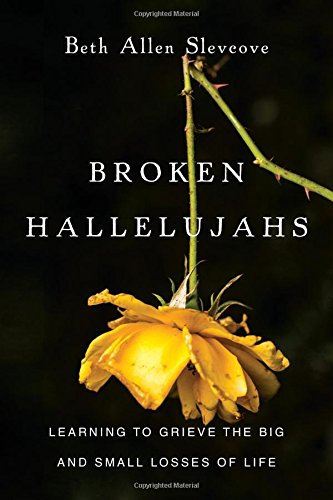 Broken Hallelujahs: Learning to Grieve the Big and Small Losses of Life Beth Allen Slevcove (IVP) $16.00 I suppose this Lutheran spiritual director and social activist doesn’t have “losing an election” or “despair that the other side’s candidate won” as one of the grieves she guides us through, but there’s a whole lot that comes close. This amazing book is part memoir, part spiritual formation, part a raw and real guide into faith amidst hard times. In each chapter the author tells of a particular sort of loss — some really large and looming, others maybe a bit less heavy — and then offers a spiritual practice designed to help us process, cope, and heal from this “broken hallelujah.” (I suppose you know the Leonard Cohen allusion.) I agree with Tod Bolsinger who says “Beth asks and attends to the hardest questions of life and faith with candor, courage, vulnerability and a wit that will make you sigh deeply and smile amidst your tears. This is a simply splendid book.” As she narrates her own losses, you will relate. As she offers distinctive spiritual practices you can find renewal in your faith and joy, even as you discover hidden beauty in these dark days. Highly recommended.
Broken Hallelujahs: Learning to Grieve the Big and Small Losses of Life Beth Allen Slevcove (IVP) $16.00 I suppose this Lutheran spiritual director and social activist doesn’t have “losing an election” or “despair that the other side’s candidate won” as one of the grieves she guides us through, but there’s a whole lot that comes close. This amazing book is part memoir, part spiritual formation, part a raw and real guide into faith amidst hard times. In each chapter the author tells of a particular sort of loss — some really large and looming, others maybe a bit less heavy — and then offers a spiritual practice designed to help us process, cope, and heal from this “broken hallelujah.” (I suppose you know the Leonard Cohen allusion.) I agree with Tod Bolsinger who says “Beth asks and attends to the hardest questions of life and faith with candor, courage, vulnerability and a wit that will make you sigh deeply and smile amidst your tears. This is a simply splendid book.” As she narrates her own losses, you will relate. As she offers distinctive spiritual practices you can find renewal in your faith and joy, even as you discover hidden beauty in these dark days. Highly recommended.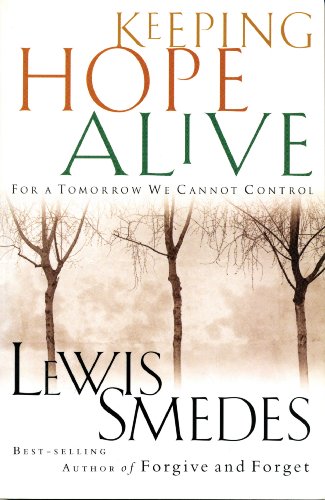 Keeping Hope Alive: For a Tomorrow We Cannot Control Lewis Smedes
Keeping Hope Alive: For a Tomorrow We Cannot Control Lewis Smedes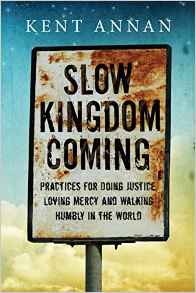 Slow Kingdom Coming: Practices for Doing Justice, Loving Mercy and Walking Humbly in the World Kent Annan (IVP) $16.00 Kent has faced heartbreak and struggle in his work among the poor in Haiti. He has written passionately about social change, about wholistic mission, about God’s care for public justice. Here he gives us a beautiful, helpful, extended meditation on the virtues of Micah 6:8, how to keep on keeping on. This is hard work and regardless of your own partisan loyalties, I trust you desire to be shaped by this kind of spirituality.
Slow Kingdom Coming: Practices for Doing Justice, Loving Mercy and Walking Humbly in the World Kent Annan (IVP) $16.00 Kent has faced heartbreak and struggle in his work among the poor in Haiti. He has written passionately about social change, about wholistic mission, about God’s care for public justice. Here he gives us a beautiful, helpful, extended meditation on the virtues of Micah 6:8, how to keep on keeping on. This is hard work and regardless of your own partisan loyalties, I trust you desire to be shaped by this kind of spirituality.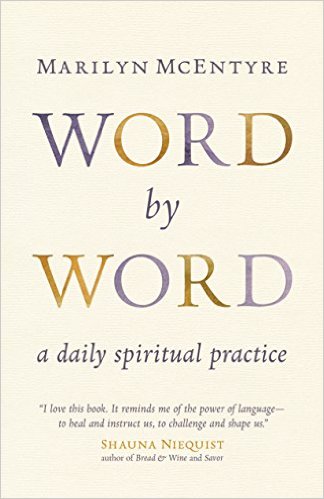 Word By Word: A Daily Spiritual Practice Marilyn McEntyre (Eerdmans) $17.99 I have been working on a longer review of this marvelous new book by one of my favorite writers but wanted very badly to include it here, now, so I will be more brief that this wonderful work deserves. You may know that her Caring for Words in a Culture of Lies is one of my all time favorite books ever (and an exceptionally useful book for these days as well!)
Word By Word: A Daily Spiritual Practice Marilyn McEntyre (Eerdmans) $17.99 I have been working on a longer review of this marvelous new book by one of my favorite writers but wanted very badly to include it here, now, so I will be more brief that this wonderful work deserves. You may know that her Caring for Words in a Culture of Lies is one of my all time favorite books ever (and an exceptionally useful book for these days as well!)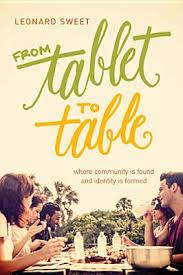 From Tablet to Table: Where Community is Found and Identity is Formed Leonard Sweet (NavPress) $14.99 Speaking of potent little books that are fun to read and yet stretching. The Rev. Len Sweet is a master storyteller, drawing on literature and science and statistics and quotes he finds who knows where — making him always a fascinating, upbeat, captivating author. In this book he takes a hard look at our “tablets” and face-down habits of staring at cell phones and invites us to get back to face-to-face fellowship. He does this by studying food, table habits, inviting us to real meals that can change our lives. Food is obviously mentioned from the beginning to the end of the Bible and Biblical folk should be attention to the theology and spirituality of eating. I like how he so winsomely calls us to notice our neighbors, to be hospitable, to care about real people in real time, and to take up the gift of fellowship by eating meals together. Can this change the world? I don’t know, but it is a start, a healthy practice, which — in Sweet’s telling — causes us to pay more attention to the storied nature of the gospel, and to tell stories of our own lives. In the second part he talks about setting the table at home, in church, and in the world. It’s supper time, ya’ll.
From Tablet to Table: Where Community is Found and Identity is Formed Leonard Sweet (NavPress) $14.99 Speaking of potent little books that are fun to read and yet stretching. The Rev. Len Sweet is a master storyteller, drawing on literature and science and statistics and quotes he finds who knows where — making him always a fascinating, upbeat, captivating author. In this book he takes a hard look at our “tablets” and face-down habits of staring at cell phones and invites us to get back to face-to-face fellowship. He does this by studying food, table habits, inviting us to real meals that can change our lives. Food is obviously mentioned from the beginning to the end of the Bible and Biblical folk should be attention to the theology and spirituality of eating. I like how he so winsomely calls us to notice our neighbors, to be hospitable, to care about real people in real time, and to take up the gift of fellowship by eating meals together. Can this change the world? I don’t know, but it is a start, a healthy practice, which — in Sweet’s telling — causes us to pay more attention to the storied nature of the gospel, and to tell stories of our own lives. In the second part he talks about setting the table at home, in church, and in the world. It’s supper time, ya’ll.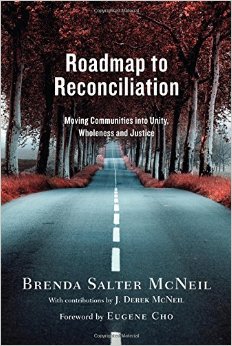 Roadmap to Reconciliation: Moving Communities Into Unity, Wholeness and Justice Brenda Salter McNeil (IVP) $16.00 This slim hardback is worth every penny, a great bargain for a beautiful, powerful book that can help us resist injustice through deep, gospel-centered work. Again, no matter who wins this election, we simply must continue to talk about race in America and focus on local efforts at bridging gaps, creating community, working with those who feel marginalized and those who are oppressed. Brenda is a passionate evangelist and social justice worker and this guidebook helps us take deeper steps into this hard, vital, blessed work. I do hope there are conversation about this topic at every fellowship group, campus ministry, church and nonprofit reading this. I’m sure this book will help — it is honest, hard, but yet a joy to see how God might work. It is so very useful, we’re eager to continue to tell you about it. Highly recommended.
Roadmap to Reconciliation: Moving Communities Into Unity, Wholeness and Justice Brenda Salter McNeil (IVP) $16.00 This slim hardback is worth every penny, a great bargain for a beautiful, powerful book that can help us resist injustice through deep, gospel-centered work. Again, no matter who wins this election, we simply must continue to talk about race in America and focus on local efforts at bridging gaps, creating community, working with those who feel marginalized and those who are oppressed. Brenda is a passionate evangelist and social justice worker and this guidebook helps us take deeper steps into this hard, vital, blessed work. I do hope there are conversation about this topic at every fellowship group, campus ministry, church and nonprofit reading this. I’m sure this book will help — it is honest, hard, but yet a joy to see how God might work. It is so very useful, we’re eager to continue to tell you about it. Highly recommended.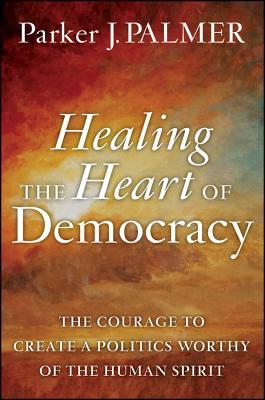 Healing the Heart of Democracy: The Courage to Create a Politics Worthy of the Human Spirit Parker Palmer (Jossey-Bass) $17.95 I suspect that after the election this week there is going to be significant backlash, anger, frustration, and deep disappointment among many (no matter who wins.) This book might help us navigate some of this calmly, with a bold proposal for meeting in small groups, talking together about our deepest fears and values, working locally to repair hurts and build bridges. Palmer knows much about listening well, about gentle approaches, about conflict and healing and hope. He’s a liberal Quaker, bringing those particular sensitivities to this vital quest and he has written much over his career about such things. (An early book on renewal in public life was called In the Company of Strangers.)
Healing the Heart of Democracy: The Courage to Create a Politics Worthy of the Human Spirit Parker Palmer (Jossey-Bass) $17.95 I suspect that after the election this week there is going to be significant backlash, anger, frustration, and deep disappointment among many (no matter who wins.) This book might help us navigate some of this calmly, with a bold proposal for meeting in small groups, talking together about our deepest fears and values, working locally to repair hurts and build bridges. Palmer knows much about listening well, about gentle approaches, about conflict and healing and hope. He’s a liberal Quaker, bringing those particular sensitivities to this vital quest and he has written much over his career about such things. (An early book on renewal in public life was called In the Company of Strangers.) 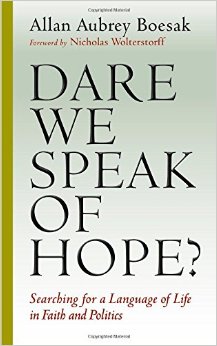 Dare We Speak of Hope? Searching for a Language of Life in Faith and Politics Allan Boesak (Eerdmans) $18.00 I wonder if you saw on my personal facebook page yesterday the PC(USA) video about the Belhar Confession, a Dutch Reformed theological document written in Belhar South Africa decades ago that is now an official part of the Presbyterian Book of Confession? I followed it with a link to a lecture Boesak gave on Belhar; he was a leader in the Christian prophetic denunciation of apartheid in South Africa and, along with Desmond Tutu and the martyred Stephen Biko, one of the most powerful activist and leaders and thinkers for the dismantling of apartheid. Here, Boesak brings his theological insight to bear on the more general question of faith and social change, how to speak about God’s reign of justice as it relates to political organization, and — yes — if it makes sense to speak of hope in this fallen, unjust world where shalom is routinely vandalized. It is eloquent. Nicholas Wolterstorff says in the foreword that it is “challenging, a deeply spiritual book.” Curtis Paul DeYoung of Bethel University calls in a “masterpiece.” Boesak holds the Desmond Tute Chair for Peace, Global Justice, and Reconciliation Studies, a joint position at Butler University and Christian Theological Seminary in Indianapolis.
Dare We Speak of Hope? Searching for a Language of Life in Faith and Politics Allan Boesak (Eerdmans) $18.00 I wonder if you saw on my personal facebook page yesterday the PC(USA) video about the Belhar Confession, a Dutch Reformed theological document written in Belhar South Africa decades ago that is now an official part of the Presbyterian Book of Confession? I followed it with a link to a lecture Boesak gave on Belhar; he was a leader in the Christian prophetic denunciation of apartheid in South Africa and, along with Desmond Tutu and the martyred Stephen Biko, one of the most powerful activist and leaders and thinkers for the dismantling of apartheid. Here, Boesak brings his theological insight to bear on the more general question of faith and social change, how to speak about God’s reign of justice as it relates to political organization, and — yes — if it makes sense to speak of hope in this fallen, unjust world where shalom is routinely vandalized. It is eloquent. Nicholas Wolterstorff says in the foreword that it is “challenging, a deeply spiritual book.” Curtis Paul DeYoung of Bethel University calls in a “masterpiece.” Boesak holds the Desmond Tute Chair for Peace, Global Justice, and Reconciliation Studies, a joint position at Butler University and Christian Theological Seminary in Indianapolis.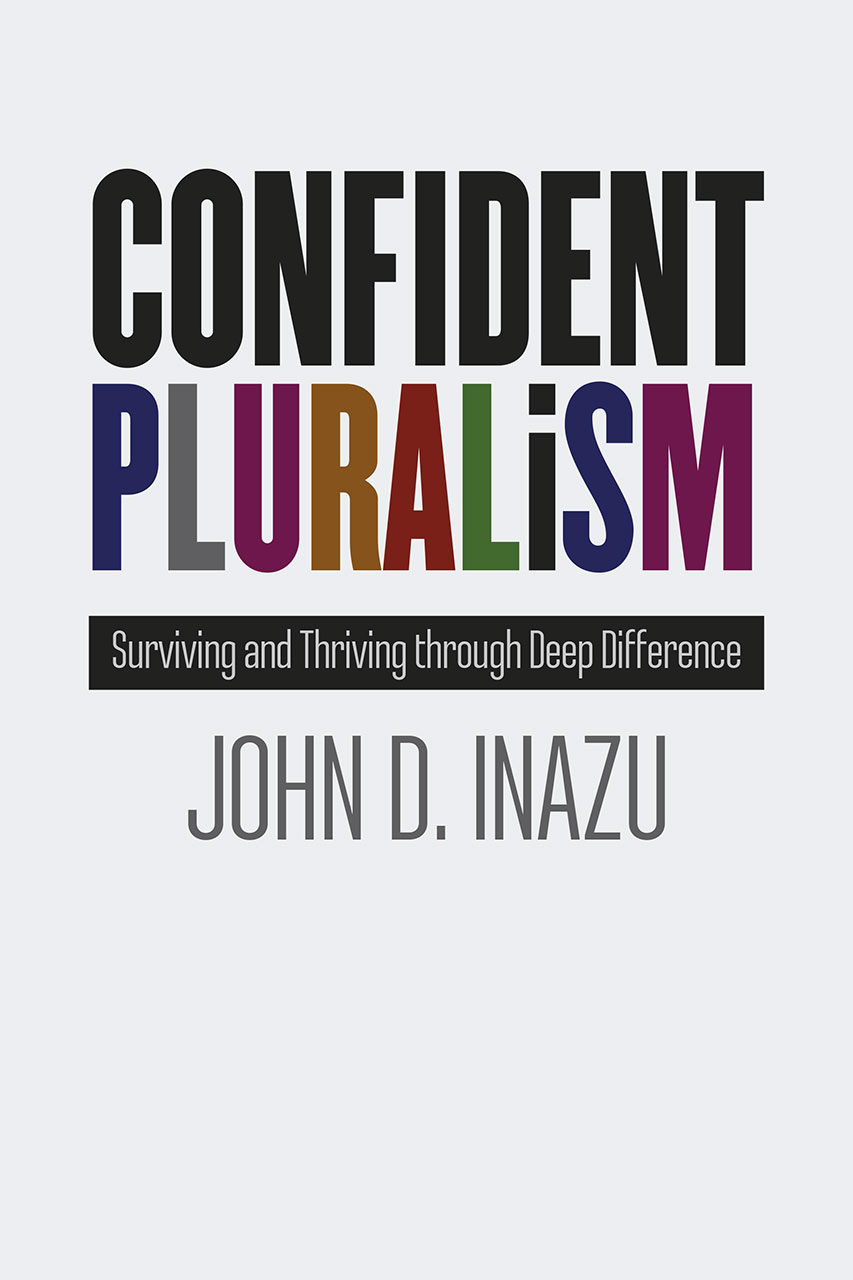 Confident Pluralism: Surviving and Thriving Through Deep Difference John D. Inazu (University of Chicago Press) $29.00 Although published by the prestigious and scholarly University of Chicago, this Christian law prof’s book is winsome, upbeat, thoughtful — of course — but practical. Perhaps you saw him in his delightful conversation just a few weeks ago (which was streamed lived) with New York Times columnist Nicholas Kristoff and Redeemer Presbyterian pastor and author Timothy Keller, moderated by the Center for Public Justice’s Stephanie Summers. Pluralism is, Inazu reminds us, one of the founding creeds of our United States, with the famous motto E pluribus unum emblazoned on the Great Seal.
Confident Pluralism: Surviving and Thriving Through Deep Difference John D. Inazu (University of Chicago Press) $29.00 Although published by the prestigious and scholarly University of Chicago, this Christian law prof’s book is winsome, upbeat, thoughtful — of course — but practical. Perhaps you saw him in his delightful conversation just a few weeks ago (which was streamed lived) with New York Times columnist Nicholas Kristoff and Redeemer Presbyterian pastor and author Timothy Keller, moderated by the Center for Public Justice’s Stephanie Summers. Pluralism is, Inazu reminds us, one of the founding creeds of our United States, with the famous motto E pluribus unum emblazoned on the Great Seal.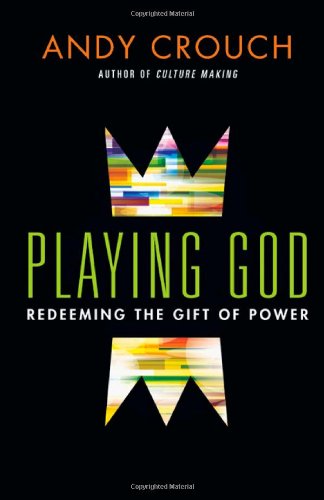 Playing God: Redeeming the Gift of Power Andy Crouch (IVP) $25.00 I know you know that I love this author and love this book. I kept thinking it didn’t fit on this list, but I kept sensing I was to list it. It does seem that much of our current malaise does, in some ways, relate to our deep anxiety about the use of power. Is power necessarily bad? How is it abused, and what are we to do? How much perversion of power might be expected in a fallen world, and what might we do to redeem it? How are institutions — governments, obviously, but other socially formative institutions — to be seen in God’s world, and how might we relate to authority, healthy or deformed? I am on the lookout for more books on this topic, and maybe others will write with different postures or tones or insight.
Playing God: Redeeming the Gift of Power Andy Crouch (IVP) $25.00 I know you know that I love this author and love this book. I kept thinking it didn’t fit on this list, but I kept sensing I was to list it. It does seem that much of our current malaise does, in some ways, relate to our deep anxiety about the use of power. Is power necessarily bad? How is it abused, and what are we to do? How much perversion of power might be expected in a fallen world, and what might we do to redeem it? How are institutions — governments, obviously, but other socially formative institutions — to be seen in God’s world, and how might we relate to authority, healthy or deformed? I am on the lookout for more books on this topic, and maybe others will write with different postures or tones or insight.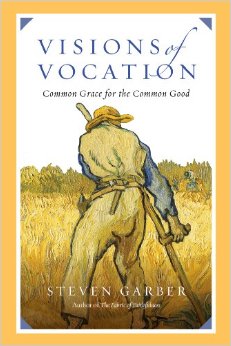 Visions of Vocation: Common Grace for the Common Good Steven Garber (IVP) $17.00 I got to be with Steve again last week and we had too short conversations and I heard him give two great presentations. I am reminded again and again when I am with him what a great person of integrity he is, settling for no cheap solutions, no easy answers, holding up “broken Hallelujahs” as this fallen world is, in fact, the only world we’ve got. Things are not as they are meant to be, we know, and God’s gracious Kingdom is, if “already” certainly also, also, also, “not yet.” We are between times of Christ’s victory and the long wait of Kingdom come. So, we need visions of vocation to help us keep on, to stay at our posts, to do what we are called to do with hope and good humor. In Steve’s eloquent book, he richly reminds us of the value of “making peace with proximate justice” as a practice and virtue to keep us from chronic disappointment. It is a good world, after all, broken and sad, but full of covenant promise and great beauty.
Visions of Vocation: Common Grace for the Common Good Steven Garber (IVP) $17.00 I got to be with Steve again last week and we had too short conversations and I heard him give two great presentations. I am reminded again and again when I am with him what a great person of integrity he is, settling for no cheap solutions, no easy answers, holding up “broken Hallelujahs” as this fallen world is, in fact, the only world we’ve got. Things are not as they are meant to be, we know, and God’s gracious Kingdom is, if “already” certainly also, also, also, “not yet.” We are between times of Christ’s victory and the long wait of Kingdom come. So, we need visions of vocation to help us keep on, to stay at our posts, to do what we are called to do with hope and good humor. In Steve’s eloquent book, he richly reminds us of the value of “making peace with proximate justice” as a practice and virtue to keep us from chronic disappointment. It is a good world, after all, broken and sad, but full of covenant promise and great beauty. 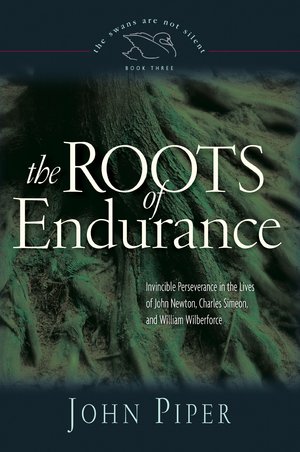
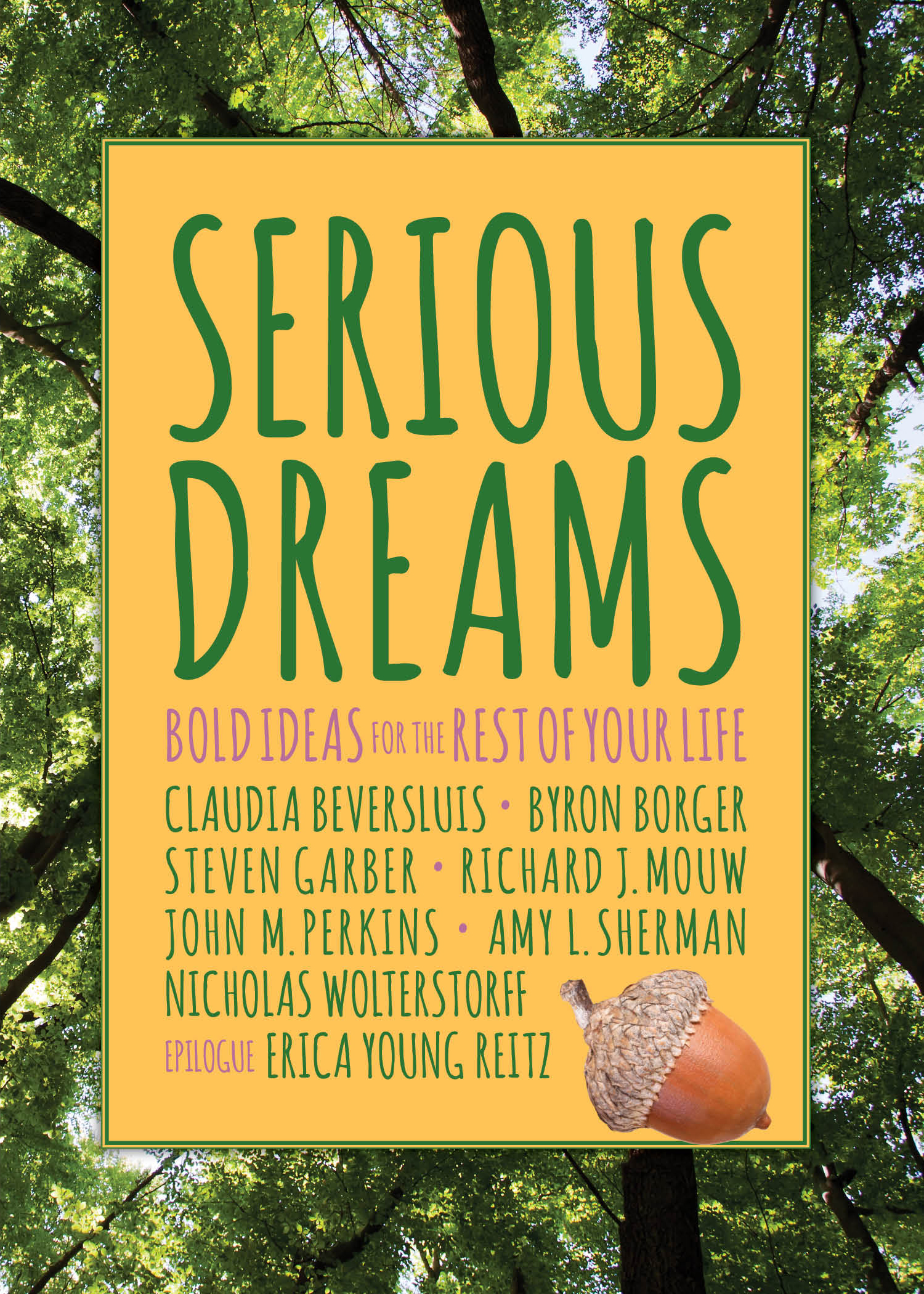 Serious Dreams: Bold Ideas for the Rest of Your Life edited by Byron Borger (Square Halo Press) $13.99 I haven’t touted this much lately and it is a tiny bit awkward since it is my own book. My book as an answer to your deep post-election depression and as balm for our dangerous times in late 2016? Yep. I re-read all of these chapters again, recently (except by own, actually, on being sons and daughters of Issachar) and it dawned on me that what others have said is true — this is not just for college graduates, although each of these pieces were first given as commencement speeches. These lively chapters (and the reflection questions after each) really are invitations to make a difference in the world, to take up callings and careers with renewed vigor, to care about the common good, to draw on the past and what we’ve learned and come to believe and apply it afresh in our needy, broken world. Some of our finest evangelical thinkers and authors contributed to this small, handsome book, and I am honored to again remind you of the great little chapters by Richard Mouw, John M. Perkins, Claudia Beversluis (who draws on a Wendell Berry poem), Nicholas Wolterstorff, Amy L. Sherman, Steve Garber, me, and a nice afterword by Erica Young Reitz, author of After College.
Serious Dreams: Bold Ideas for the Rest of Your Life edited by Byron Borger (Square Halo Press) $13.99 I haven’t touted this much lately and it is a tiny bit awkward since it is my own book. My book as an answer to your deep post-election depression and as balm for our dangerous times in late 2016? Yep. I re-read all of these chapters again, recently (except by own, actually, on being sons and daughters of Issachar) and it dawned on me that what others have said is true — this is not just for college graduates, although each of these pieces were first given as commencement speeches. These lively chapters (and the reflection questions after each) really are invitations to make a difference in the world, to take up callings and careers with renewed vigor, to care about the common good, to draw on the past and what we’ve learned and come to believe and apply it afresh in our needy, broken world. Some of our finest evangelical thinkers and authors contributed to this small, handsome book, and I am honored to again remind you of the great little chapters by Richard Mouw, John M. Perkins, Claudia Beversluis (who draws on a Wendell Berry poem), Nicholas Wolterstorff, Amy L. Sherman, Steve Garber, me, and a nice afterword by Erica Young Reitz, author of After College. 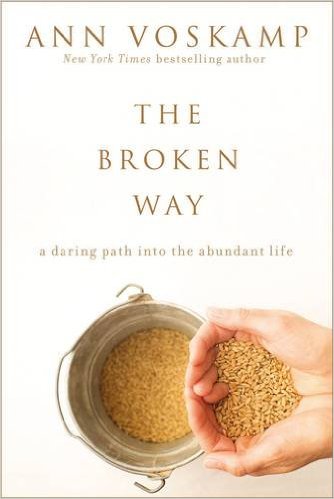 The Broken Way: A Daring Path Into the Abundant Life Ann Voskamp (Zondervan) $22.99 This just released and will be one of the biggest selling and most appreciated books of this year; we can be glad, too, as Voskamp is a great, energetic, poetic, artful writer. She has done two great family-oriented Advent devotionals, and a ton of forewords and endorsements; her presence in the world of popular religious writing is notable. But, actually, other than the lovely holiday books, she has not released a brand new work since her best-selling One Thousands Gifts nearly a decade ago. In some ways, then, this is truly major release, one that has incubated for quite a while. I dipped in to some of it already and the quality earned from polishing her craft these years is evident. And her guts in sharing beautifully her own brokenness is notable. Her discussion of love and giving and a meaningful way through our broken hearts — give it away! — is intimate and powerful. The Broken Way is handsomely designed, too, with a few nice touches well worthy of such a good author. Rave endorsements are from Eugene Peterson, Philip Yancey, Christine Caine, Lysa Terkeurst and many others which point us to the value of this raw look at pain and brokenness; honoring such hard stuff is, Voskamp says, the “daring path to abundance.”
The Broken Way: A Daring Path Into the Abundant Life Ann Voskamp (Zondervan) $22.99 This just released and will be one of the biggest selling and most appreciated books of this year; we can be glad, too, as Voskamp is a great, energetic, poetic, artful writer. She has done two great family-oriented Advent devotionals, and a ton of forewords and endorsements; her presence in the world of popular religious writing is notable. But, actually, other than the lovely holiday books, she has not released a brand new work since her best-selling One Thousands Gifts nearly a decade ago. In some ways, then, this is truly major release, one that has incubated for quite a while. I dipped in to some of it already and the quality earned from polishing her craft these years is evident. And her guts in sharing beautifully her own brokenness is notable. Her discussion of love and giving and a meaningful way through our broken hearts — give it away! — is intimate and powerful. The Broken Way is handsomely designed, too, with a few nice touches well worthy of such a good author. Rave endorsements are from Eugene Peterson, Philip Yancey, Christine Caine, Lysa Terkeurst and many others which point us to the value of this raw look at pain and brokenness; honoring such hard stuff is, Voskamp says, the “daring path to abundance.”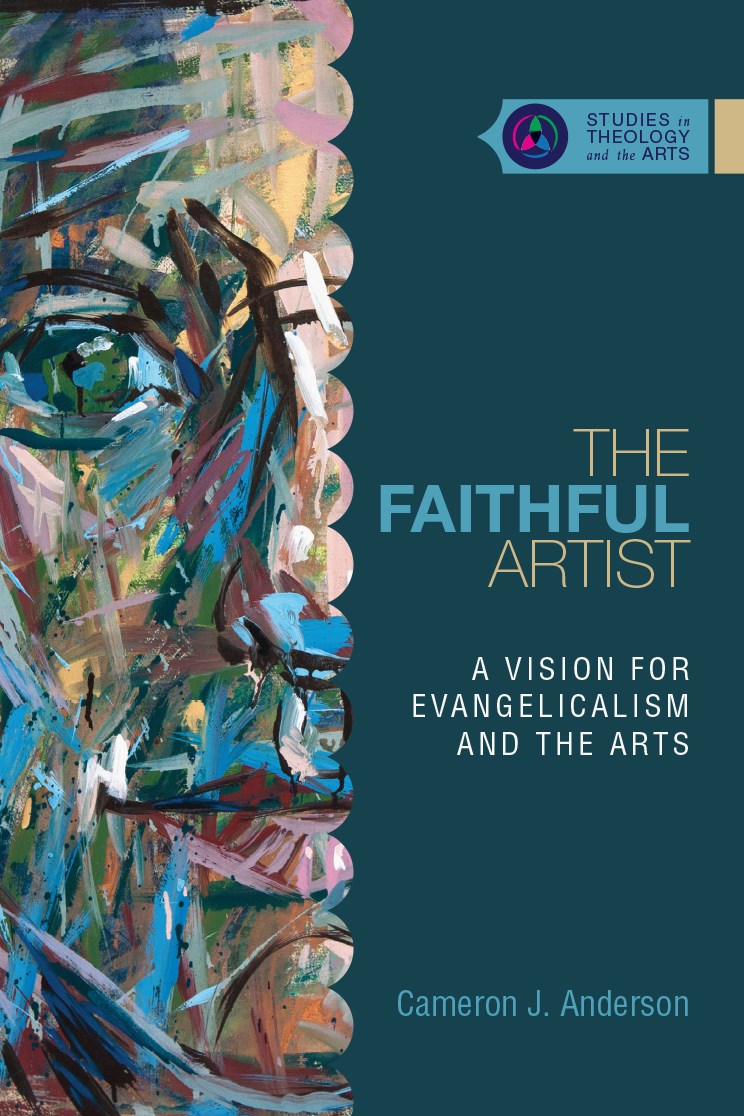 The Faithful Artist: A Vision for Evangelicalism and the Arts Cameron J. Anderson (IVP Academic /CIVA) $26.00 We are particularly excited to announce this major work by a friend, the well-loved Director of the astute national organization Christians in the Visual Arts. This is the second volume in the serious and important new series called “Studies in Theology and the Arts.” The first was a very detailed study and rebuttal of the aesthetic judgement of the seminal Hans Rookmaaker.
The Faithful Artist: A Vision for Evangelicalism and the Arts Cameron J. Anderson (IVP Academic /CIVA) $26.00 We are particularly excited to announce this major work by a friend, the well-loved Director of the astute national organization Christians in the Visual Arts. This is the second volume in the serious and important new series called “Studies in Theology and the Arts.” The first was a very detailed study and rebuttal of the aesthetic judgement of the seminal Hans Rookmaaker.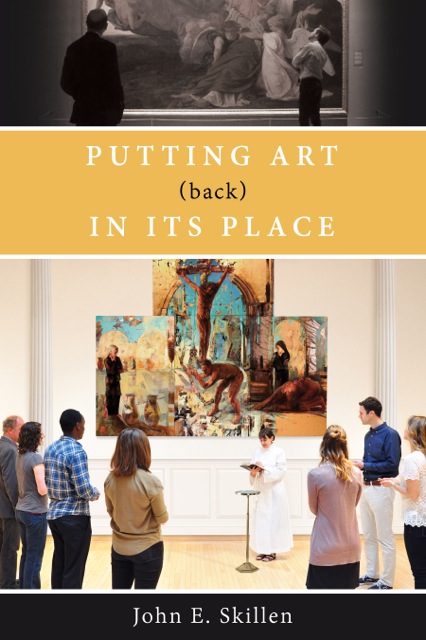 Putting Art (Back) In Its Place John
Putting Art (Back) In Its Place John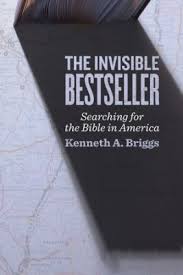 The Invisible Bestseller: Searching for the Bible in America
The Invisible Bestseller: Searching for the Bible in America Just Capitalism: A Christian Ethic of Economic Globalization Brent Waters (WJK) $40.00 There are plenty of rather doctrinaire Christian assessments in books about free market capitalism, praising the market as if God Himself spoke to Adam Smith and baptized Western capitalism; similarly there are some that are overly critical, informed more by Marxist analysis than Biblical insight. This brand new one , Just Capitalism, is one of the rare ones — astute, mature, serious, and very balanced. It’s witty, too, sophisticated but accessible. It looks really great.
Just Capitalism: A Christian Ethic of Economic Globalization Brent Waters (WJK) $40.00 There are plenty of rather doctrinaire Christian assessments in books about free market capitalism, praising the market as if God Himself spoke to Adam Smith and baptized Western capitalism; similarly there are some that are overly critical, informed more by Marxist analysis than Biblical insight. This brand new one , Just Capitalism, is one of the rare ones — astute, mature, serious, and very balanced. It’s witty, too, sophisticated but accessible. It looks really great.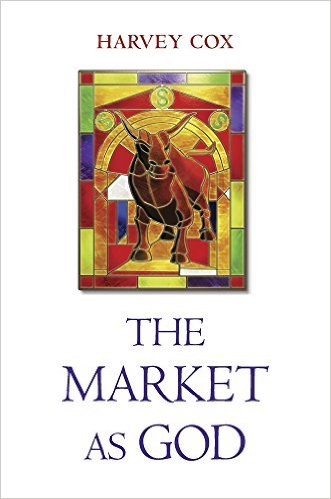 The Market As God Harvey Cox (Harvard University Press) $26.95 Speaking of tendencies to deify the market… this new book exposes such idolatry. Harvey Cox has been a major theological voice for a generation, and has shifted and deepened his own faith and analysis. The Market as God is a notable new book, obviously, and on an important, internationally respected publisher. I suspect it will be much discussed. I’m eager to see how professor Cox (perhaps informed by the likes of Smith’s “cultural liturgies” research) writes with, as E.J. Dione Jr. puts it, an “ingenious sense of how market theology has developed a scripture, a liturgy, and a sophisticated apologetics” which “allows us to see old challenges in a remarkably fresh light.” I wonder if it is somewhat similar to last year’s brilliant, provocative Eerdmans book The Altar of Wall Street? According to one review, this is not like all critics of the market, either, because the book is “trying to redeem it so that it might serve its proper ends.”
The Market As God Harvey Cox (Harvard University Press) $26.95 Speaking of tendencies to deify the market… this new book exposes such idolatry. Harvey Cox has been a major theological voice for a generation, and has shifted and deepened his own faith and analysis. The Market as God is a notable new book, obviously, and on an important, internationally respected publisher. I suspect it will be much discussed. I’m eager to see how professor Cox (perhaps informed by the likes of Smith’s “cultural liturgies” research) writes with, as E.J. Dione Jr. puts it, an “ingenious sense of how market theology has developed a scripture, a liturgy, and a sophisticated apologetics” which “allows us to see old challenges in a remarkably fresh light.” I wonder if it is somewhat similar to last year’s brilliant, provocative Eerdmans book The Altar of Wall Street? According to one review, this is not like all critics of the market, either, because the book is “trying to redeem it so that it might serve its proper ends.”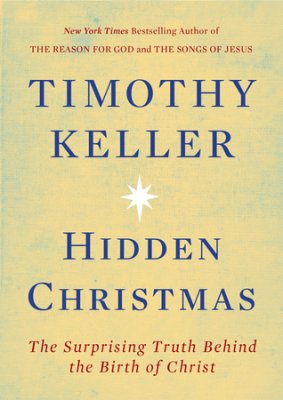 Hidden Christmas: The Surprising Truth Behind the Birth of Christ Timothy Keller (Viking) $20.00 Let me say we’ve got bunches of great new Advent books and maybe some are even more pleasant than this slim one. But it’s Keller, so I’m thrilled. It just came out a day or two ago, and I’ve only looked at the table of contents. Yes, it’s a tad pricey for less than 150 pages, but in Keller years, that’s like, uh, maybe 350 pages of content from a more ordinary author. So it’s well worth it, with 8 lovely sounding chapters. I like that he says that “Christmas, therefore, is the most unsentimental, realistic, way of looking at life.” Yep, there’s that: the incarnation is crazy, showing us God’s remarkable love and grace, and suggestion pretty strongly that we are truly in need of a savior. We cannot rescue ourselves. The world is a mess. It is worse than we may know. But the good news is better than we usually realize. I think this hard-hitting, quite logical explication of the truth of the holiday may be the best thing we’ve got on this in hears. Thanks be to God for authors and preachers who shoot straight: “There is a light outside of this world, and Jesus has come from it to save us.” We are not trapped. This is Christmas joy, for sure. Highly recommended.
Hidden Christmas: The Surprising Truth Behind the Birth of Christ Timothy Keller (Viking) $20.00 Let me say we’ve got bunches of great new Advent books and maybe some are even more pleasant than this slim one. But it’s Keller, so I’m thrilled. It just came out a day or two ago, and I’ve only looked at the table of contents. Yes, it’s a tad pricey for less than 150 pages, but in Keller years, that’s like, uh, maybe 350 pages of content from a more ordinary author. So it’s well worth it, with 8 lovely sounding chapters. I like that he says that “Christmas, therefore, is the most unsentimental, realistic, way of looking at life.” Yep, there’s that: the incarnation is crazy, showing us God’s remarkable love and grace, and suggestion pretty strongly that we are truly in need of a savior. We cannot rescue ourselves. The world is a mess. It is worse than we may know. But the good news is better than we usually realize. I think this hard-hitting, quite logical explication of the truth of the holiday may be the best thing we’ve got on this in hears. Thanks be to God for authors and preachers who shoot straight: “There is a light outside of this world, and Jesus has come from it to save us.” We are not trapped. This is Christmas joy, for sure. Highly recommended.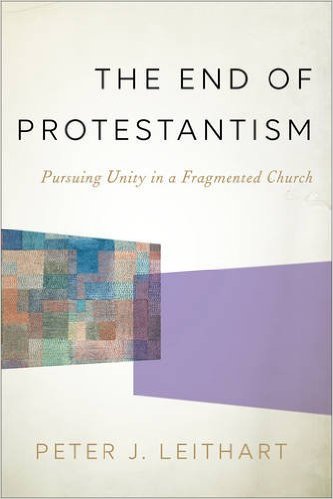 The End of Protestantism: Pursuing Unity in a Fragmented Church Peter J. Leithart (BakerAcademic) $21.99 Leithart may be one of the most interesting theological voices writing today, and his last few books have placed him into that rare circle of the “must read” theological scholars. Anyone interested in the nature of the church, the role of confessional truths, and the call to ecumenism will want to have this. I surely hope many are drawn to it as the unity of the Body of Christ is Jesus’s own passion. The rave reviews of The End of Protestantism are themselves so stimulating that it makes me really, really eager to read this carefully. (There are woefully few books on ecumenical theology from anybody, let alone from such a rigorous evangelical. Thanks be to God for this kind of work.)
The End of Protestantism: Pursuing Unity in a Fragmented Church Peter J. Leithart (BakerAcademic) $21.99 Leithart may be one of the most interesting theological voices writing today, and his last few books have placed him into that rare circle of the “must read” theological scholars. Anyone interested in the nature of the church, the role of confessional truths, and the call to ecumenism will want to have this. I surely hope many are drawn to it as the unity of the Body of Christ is Jesus’s own passion. The rave reviews of The End of Protestantism are themselves so stimulating that it makes me really, really eager to read this carefully. (There are woefully few books on ecumenical theology from anybody, let alone from such a rigorous evangelical. Thanks be to God for this kind of work.) 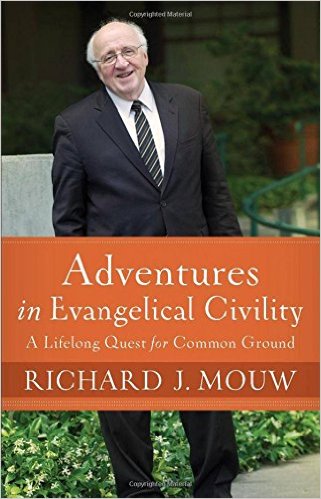 Adventures in Evangelical Civility: A Lifelong Quest for Common Ground Richard J. Mouw (Brazos Press) $24.99 Speaking of ecumenism, and of Mouw’s search for good books, this new memoir shares some of the inside scope. I wish I could call Mouw a mentor — his early books were among my favorites in the mid 70s and he remains an author I’d eager read, no matter what the topic. (You know he’ll quote Kuyper, probably a Catholic nun or mystic, and always a hymn or two.) He’s sensible, visionary, down-to-Earth, and, one of those scholars who has a particular calling, it seems, to translate the world of academia to the church and world. As a political theorist, an ethicist, and and active Presbyterian — who used to teach at Calvin College, even though he wasn’t raised in the Dutch Calvinist worldview tradition — he is my kind of guy. If you’ve followed by own Facebook you will know that I recently used his lovely Uncommon Decency (a very wonderful book on civility) in an adult education class.
Adventures in Evangelical Civility: A Lifelong Quest for Common Ground Richard J. Mouw (Brazos Press) $24.99 Speaking of ecumenism, and of Mouw’s search for good books, this new memoir shares some of the inside scope. I wish I could call Mouw a mentor — his early books were among my favorites in the mid 70s and he remains an author I’d eager read, no matter what the topic. (You know he’ll quote Kuyper, probably a Catholic nun or mystic, and always a hymn or two.) He’s sensible, visionary, down-to-Earth, and, one of those scholars who has a particular calling, it seems, to translate the world of academia to the church and world. As a political theorist, an ethicist, and and active Presbyterian — who used to teach at Calvin College, even though he wasn’t raised in the Dutch Calvinist worldview tradition — he is my kind of guy. If you’ve followed by own Facebook you will know that I recently used his lovely Uncommon Decency (a very wonderful book on civility) in an adult education class. 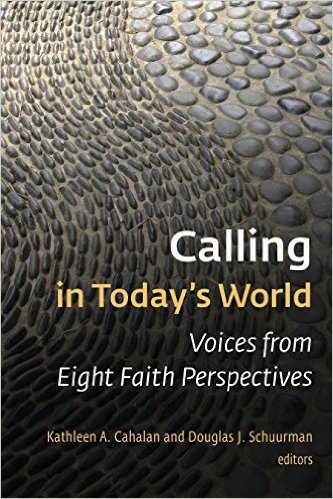 Calling in Today’s World: Voices from Eight Faith Perspectives edited by Kathleen Cahalan & Douglas Schuurman (Eerdmans) $25.00 There has been much written at a popular level on calling and vocation in recent years (yay!) and there have been a few very substantial theological reflections as well. This new volume is a fascinating work, a rather unique contribution, offering various takes on the notions of vocation, explaining how calling is perceived and practiced in eight different world religions and faith traditions. Included are how this key Christian notion is explained, construed, taught and lived out within not only Protestant and Catholic churches but within Judaism, Islam, Buddhism, Hinduism, among Confucianism and Daoism and even within more secularized humanism. Kristin Johnston Largen of the Lutheran Seminary at Gettysburg notes how useful this is for Christians in our increasingly interreligious world and that it is “interesting, accessible.” Calling in Today’s World is co-edited by Kathleen Cahalan of Saint John’s School of Theology and Seminary in Collegeville who recently co-wrote the excellent Christian Practical Wisdom: What It Is, Why It Matters and Douglas Schuurman who is professor of religion at St. Olaf College and the author of the thoughtful, must-read Vocation: Discerning Our Callings in Life. Some of the authors are themselves practitioners of the faith being described and a few are scholars but not adherents. It’s a fascinating work.
Calling in Today’s World: Voices from Eight Faith Perspectives edited by Kathleen Cahalan & Douglas Schuurman (Eerdmans) $25.00 There has been much written at a popular level on calling and vocation in recent years (yay!) and there have been a few very substantial theological reflections as well. This new volume is a fascinating work, a rather unique contribution, offering various takes on the notions of vocation, explaining how calling is perceived and practiced in eight different world religions and faith traditions. Included are how this key Christian notion is explained, construed, taught and lived out within not only Protestant and Catholic churches but within Judaism, Islam, Buddhism, Hinduism, among Confucianism and Daoism and even within more secularized humanism. Kristin Johnston Largen of the Lutheran Seminary at Gettysburg notes how useful this is for Christians in our increasingly interreligious world and that it is “interesting, accessible.” Calling in Today’s World is co-edited by Kathleen Cahalan of Saint John’s School of Theology and Seminary in Collegeville who recently co-wrote the excellent Christian Practical Wisdom: What It Is, Why It Matters and Douglas Schuurman who is professor of religion at St. Olaf College and the author of the thoughtful, must-read Vocation: Discerning Our Callings in Life. Some of the authors are themselves practitioners of the faith being described and a few are scholars but not adherents. It’s a fascinating work.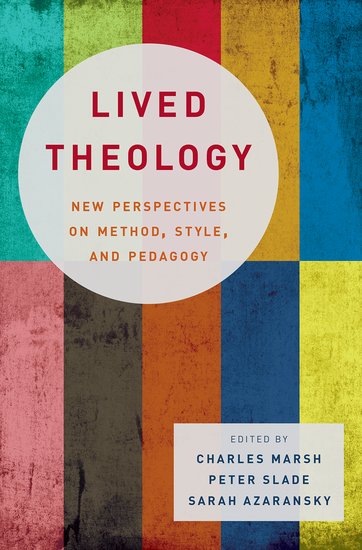 Lived Theology: New Perspectives on Method, Style and Pedagogy edited by Charles Marsh, Peter Slade & Sarah Azaransky (Oxford University Press) $29.95 Do you know the “lived theology” project at University of Virginia? It’s heavy, serious stuff, even as it is bringing sophisticated scholarship to ordinary life as the context for doing theology. As Cheryl J. Sanders (author of Saints in Exile) puts it, the methodology and rationale of lived theology movement is to use “the primary source of data of social change, such as field reports and oral histories, in order to discover vital theological conversations, convictions, and commitments” in the real world lives of people and cultures. They have held conferences and published papers and done think-tank stuff exploring ways in which theology is done “on the ground” as a lived practice for years, now, and this thick hardback is a long-awaited compilation of good pieces. Our friend David Dark has a chapter called “Insert Soul Here: Lived Theology as Witness.”
Lived Theology: New Perspectives on Method, Style and Pedagogy edited by Charles Marsh, Peter Slade & Sarah Azaransky (Oxford University Press) $29.95 Do you know the “lived theology” project at University of Virginia? It’s heavy, serious stuff, even as it is bringing sophisticated scholarship to ordinary life as the context for doing theology. As Cheryl J. Sanders (author of Saints in Exile) puts it, the methodology and rationale of lived theology movement is to use “the primary source of data of social change, such as field reports and oral histories, in order to discover vital theological conversations, convictions, and commitments” in the real world lives of people and cultures. They have held conferences and published papers and done think-tank stuff exploring ways in which theology is done “on the ground” as a lived practice for years, now, and this thick hardback is a long-awaited compilation of good pieces. Our friend David Dark has a chapter called “Insert Soul Here: Lived Theology as Witness.”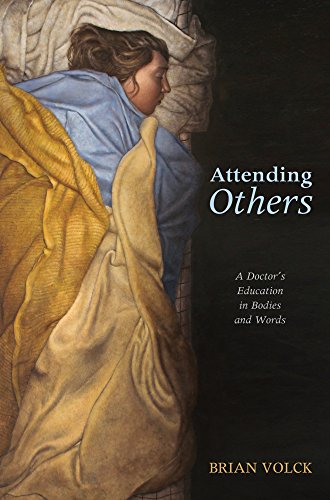 Attending Others: A Doctor’s Education in Bodies and Words Brian Volck (Cascade) $25.00 I feel badly that this stunning book can only be mentioned quickly here, now, as it is precious, artful, and wonderful. I hope to tell you more later. What a fine author this is, a poet and writer with an MFA who is a practicing pediatric doctor. He has co-written a previous book on medicine which is very important, but this, this, oh my, it is a beautiful work! There is a bit in here about his travels in the developing world, doctring in service to the poor in rural Guatamala, for instance. Much of what he has learned about medicine, he say, he has learned form listening well — to patience, to people, to children, and, yes, to books, literature and poetry. Warm and glowing endorsements are on the back from Wendell Berry, Paul Farmer, and other important writers. Attending Others is quite simply one of the most beautiful and thrilling and moving books I’ve read this year — it is very highly recommended for anyone who cares about medicine, health care, illness, bodies, justice, literature, life — whether one is a health care provider or not. Thanks, Brian, for your attention to work and to words.
Attending Others: A Doctor’s Education in Bodies and Words Brian Volck (Cascade) $25.00 I feel badly that this stunning book can only be mentioned quickly here, now, as it is precious, artful, and wonderful. I hope to tell you more later. What a fine author this is, a poet and writer with an MFA who is a practicing pediatric doctor. He has co-written a previous book on medicine which is very important, but this, this, oh my, it is a beautiful work! There is a bit in here about his travels in the developing world, doctring in service to the poor in rural Guatamala, for instance. Much of what he has learned about medicine, he say, he has learned form listening well — to patience, to people, to children, and, yes, to books, literature and poetry. Warm and glowing endorsements are on the back from Wendell Berry, Paul Farmer, and other important writers. Attending Others is quite simply one of the most beautiful and thrilling and moving books I’ve read this year — it is very highly recommended for anyone who cares about medicine, health care, illness, bodies, justice, literature, life — whether one is a health care provider or not. Thanks, Brian, for your attention to work and to words.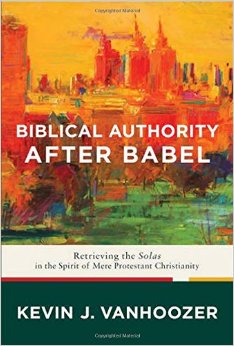 Biblical Authority After Babel: Retrieving the Solas in the Spirit of Mere Protestant Christianity Kevin J. Vanhoozer (Baker Academic) $21.99 Vanhoozer’s latest, long awaited book just arrived and is already being discussed in many places on the internet. You will be hearing more about this, I’m sure. A major work by a significant author — not unlike Liethart, Vanhoozer is somebody who you simply must read if you are a working theologian. This one offers a “fresh appraisal of the core principles of historic Protestant Christianity.” As Reformation scholar Timothy George says it is “written with conviction, nuance, and wisdom, this is Kevin Vanhoozer at his best – a treasure.” Wheaton College prof Beth Falker Jones says “I’ve been waiting years for this book!” Even though the book is a call for Protestant unity around Reformation themes, Catholic theologian Matthew Levering raves on the back, insisting that those of other traditions should “listen to Vanhoozer’s rigorous, gracious, and erudite defense of the truth of Protestant Christianity.” We are entering the 500
Biblical Authority After Babel: Retrieving the Solas in the Spirit of Mere Protestant Christianity Kevin J. Vanhoozer (Baker Academic) $21.99 Vanhoozer’s latest, long awaited book just arrived and is already being discussed in many places on the internet. You will be hearing more about this, I’m sure. A major work by a significant author — not unlike Liethart, Vanhoozer is somebody who you simply must read if you are a working theologian. This one offers a “fresh appraisal of the core principles of historic Protestant Christianity.” As Reformation scholar Timothy George says it is “written with conviction, nuance, and wisdom, this is Kevin Vanhoozer at his best – a treasure.” Wheaton College prof Beth Falker Jones says “I’ve been waiting years for this book!” Even though the book is a call for Protestant unity around Reformation themes, Catholic theologian Matthew Levering raves on the back, insisting that those of other traditions should “listen to Vanhoozer’s rigorous, gracious, and erudite defense of the truth of Protestant Christianity.” We are entering the 500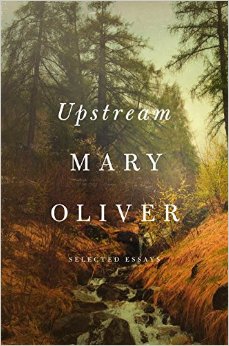 Upstream: Selected Essays Mary Oliver (Penguin Press) $26.00 This is nearly a publishing event, the first collection of essays by the esteemed poet, one of the most loved and respected of our time. I haven’t had time to read any of it yet – heaven help me if I’m too busy for Mary Oliver! – so what can I say? It’s dedicated to Ann Tyler. I’ve held the book itself with it’s lovely cover quite longingly. I am sure it’s pages are beautiful, honest, life giving.
Upstream: Selected Essays Mary Oliver (Penguin Press) $26.00 This is nearly a publishing event, the first collection of essays by the esteemed poet, one of the most loved and respected of our time. I haven’t had time to read any of it yet – heaven help me if I’m too busy for Mary Oliver! – so what can I say? It’s dedicated to Ann Tyler. I’ve held the book itself with it’s lovely cover quite longingly. I am sure it’s pages are beautiful, honest, life giving.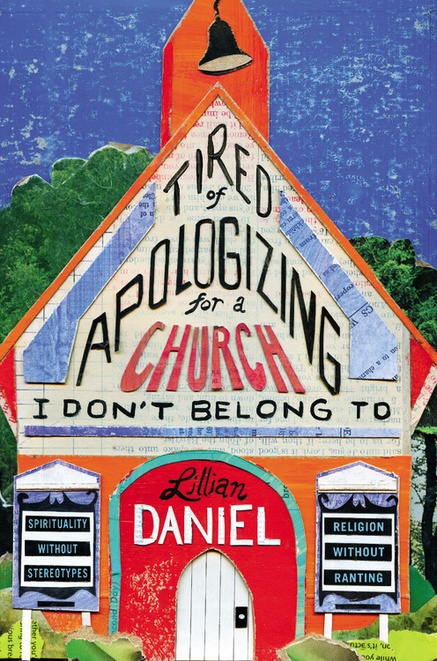 Tired of Apologizing for a Church I Don’t Belong To Lillian Daniel (FaithWords) $22.00 I suppose those who know Lillian will want to order this right away – she’s a respected, lively author, feisty as a progressive UCC pastor and yet eager to be clear about the centrality of the gospel. This may seem a bit like a variety of chapters (which is fine, given her writing talents) but it is more than a collection of her great essays even though each chapter could easily stand on its own (making it great for small group use) it does hang together. Like the title suggests, it is relentless in making a case for liberal church folk to stop apologizing for the worst of Christianity and redouble efforts to affirm and celebrate and invite people to open, good-hearted faith found most often in ordinary mainline congregations.
Tired of Apologizing for a Church I Don’t Belong To Lillian Daniel (FaithWords) $22.00 I suppose those who know Lillian will want to order this right away – she’s a respected, lively author, feisty as a progressive UCC pastor and yet eager to be clear about the centrality of the gospel. This may seem a bit like a variety of chapters (which is fine, given her writing talents) but it is more than a collection of her great essays even though each chapter could easily stand on its own (making it great for small group use) it does hang together. Like the title suggests, it is relentless in making a case for liberal church folk to stop apologizing for the worst of Christianity and redouble efforts to affirm and celebrate and invite people to open, good-hearted faith found most often in ordinary mainline congregations.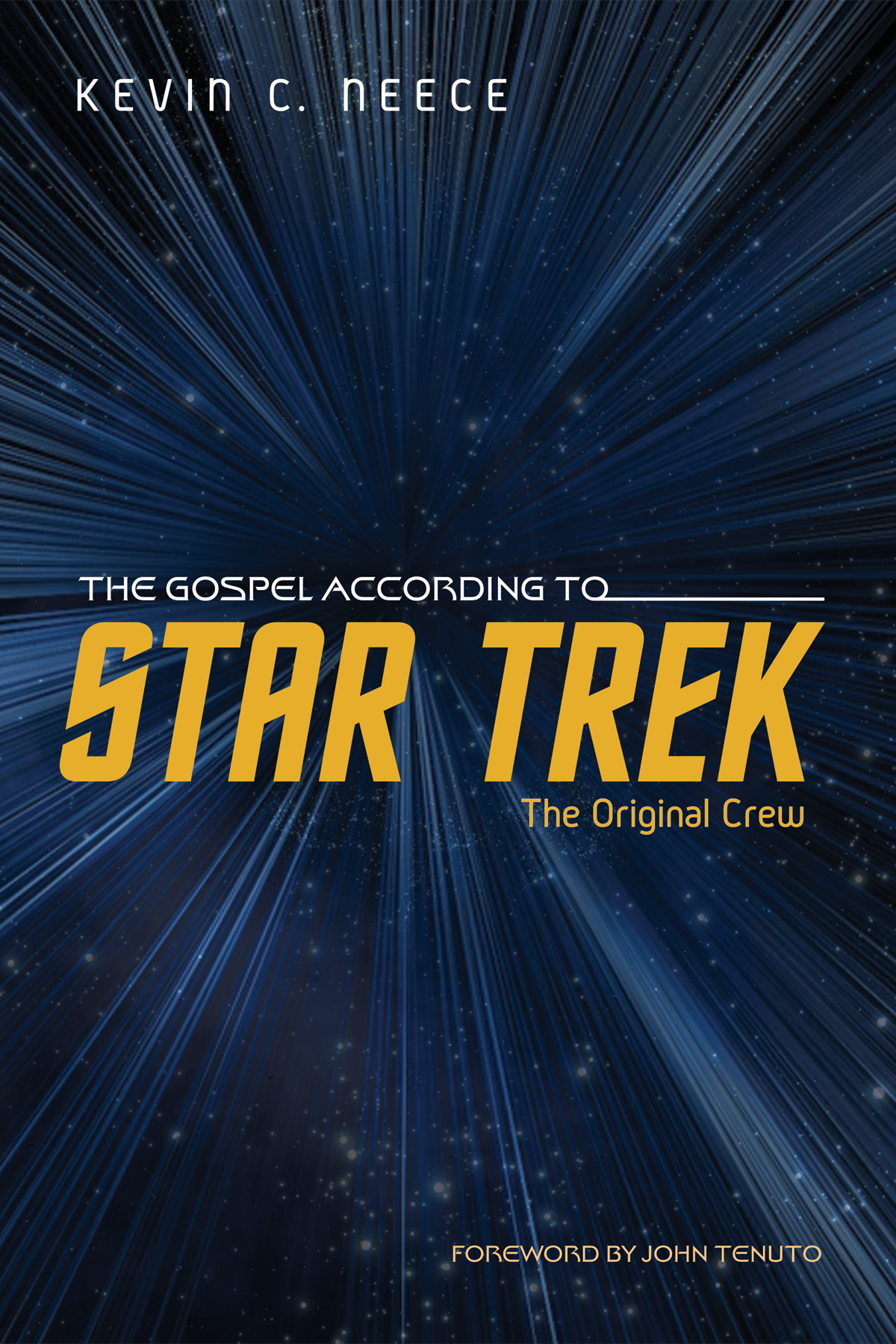 The Gospel According to Start Trek: The Original Crew Kevin C. Neece (Cascade) $24.00 Nearly three decades ago one could count on one hand (actually, a few fingers of one hand) the respectable books that explored the interface of popular culture and Christianity and even fewer were those that wisely approached popular culture in light of a robust, orthodox, Christian perspective. A seminal figure in the rise of a generation of scholars in this field was my old pal William David Romanowski whose Eyes Wide Open remains an essential read. The colorful, popular and at times breathtaking writer and thinker David Dark followed up with the must-read Every Day Apocalypse and, I’d say, by the turn of the century we were off to the races. We have shelves and shelves of pop culture studies, Christian views of contemporary music, video games, film and TV reviews. In the last year there have been some fun books on Star Wars, sci fi stuff, and, of course, the marvelous little book by Square Halo Books, Bigger on the Inside: Christianity and Doctor Who.
The Gospel According to Start Trek: The Original Crew Kevin C. Neece (Cascade) $24.00 Nearly three decades ago one could count on one hand (actually, a few fingers of one hand) the respectable books that explored the interface of popular culture and Christianity and even fewer were those that wisely approached popular culture in light of a robust, orthodox, Christian perspective. A seminal figure in the rise of a generation of scholars in this field was my old pal William David Romanowski whose Eyes Wide Open remains an essential read. The colorful, popular and at times breathtaking writer and thinker David Dark followed up with the must-read Every Day Apocalypse and, I’d say, by the turn of the century we were off to the races. We have shelves and shelves of pop culture studies, Christian views of contemporary music, video games, film and TV reviews. In the last year there have been some fun books on Star Wars, sci fi stuff, and, of course, the marvelous little book by Square Halo Books, Bigger on the Inside: Christianity and Doctor Who.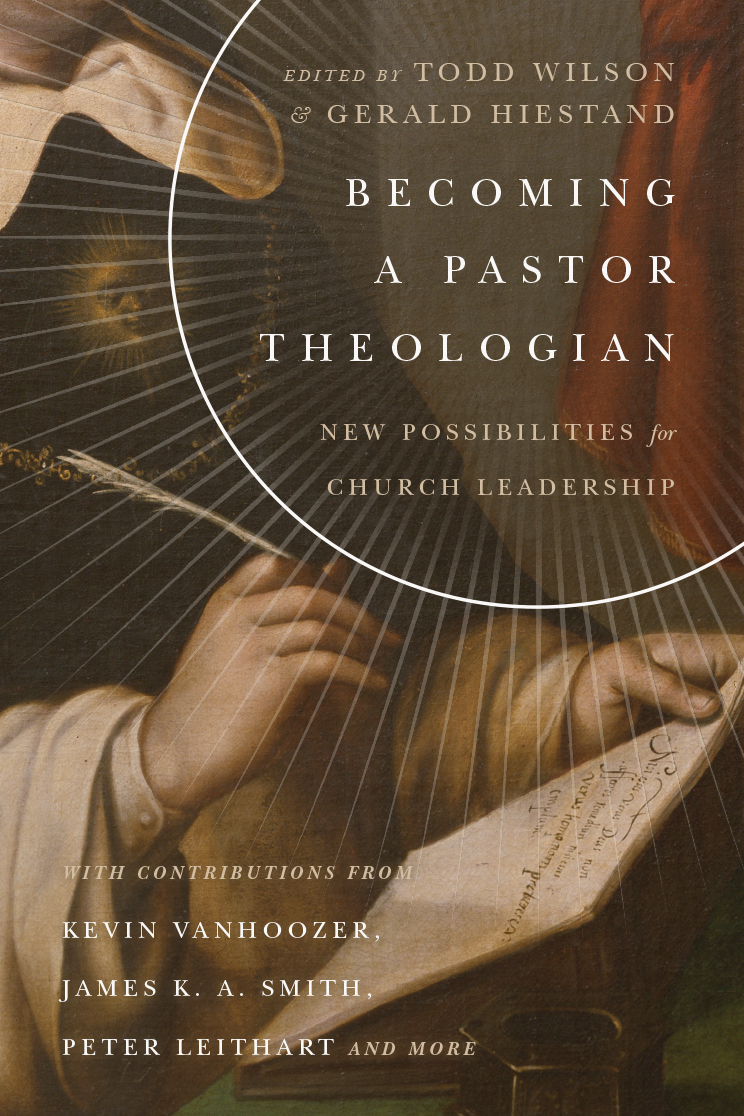 Becoming a Pastor Theologian: New Possibilities for Church Leadership edited by Todd Wilson & Gerald Hiestand (IVP Academic) $25.00 What an amazing collection! I hope you know Vanhoozer’s book from a year ago insisting that the best pastors are “theologians in residence” and that renewing the theological vocation of pastors is especially needed in these complicated days. This new collection came out of what must have been a fabulous conference around these concerns, offering both pastors and congregants with new ideas about how church leaders can live into this calling of being a “pastor theologian.”
Becoming a Pastor Theologian: New Possibilities for Church Leadership edited by Todd Wilson & Gerald Hiestand (IVP Academic) $25.00 What an amazing collection! I hope you know Vanhoozer’s book from a year ago insisting that the best pastors are “theologians in residence” and that renewing the theological vocation of pastors is especially needed in these complicated days. This new collection came out of what must have been a fabulous conference around these concerns, offering both pastors and congregants with new ideas about how church leaders can live into this calling of being a “pastor theologian.”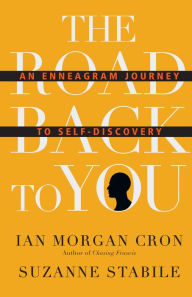 The Road Back to You: An Enneagram Journey to Self-Discovery Ian Morgan Cron & Suzanne Stabile (IVP) $24.00 study guide $9.00 I have not been one to warm up to the Myers-Briggs personality tests, the “Strength Finders” and other such assessment tools, let alone the weirder Enneagram. I know some folks have found it very helpful — Richard Rohr has a very good book on it — and spiritual directors and contemplative types use it to help folks not only with self- knowledge and better relationships with others but as a tool for spiritual formation in one’s deepest relationship with God. I get that, but it still has just been a bit too eccentric for me – when I hear people say their number (and their “wing” number) it just sounds too Gnostic, full of insider info, too much to keep straight.
The Road Back to You: An Enneagram Journey to Self-Discovery Ian Morgan Cron & Suzanne Stabile (IVP) $24.00 study guide $9.00 I have not been one to warm up to the Myers-Briggs personality tests, the “Strength Finders” and other such assessment tools, let alone the weirder Enneagram. I know some folks have found it very helpful — Richard Rohr has a very good book on it — and spiritual directors and contemplative types use it to help folks not only with self- knowledge and better relationships with others but as a tool for spiritual formation in one’s deepest relationship with God. I get that, but it still has just been a bit too eccentric for me – when I hear people say their number (and their “wing” number) it just sounds too Gnostic, full of insider info, too much to keep straight.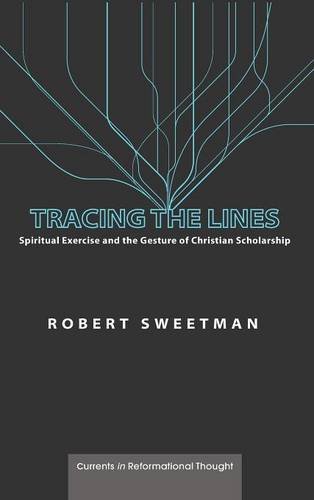 Tracing the Lines: Spiritual Exercise and the Gesture of Christian Scholarship (“Currents in Reformational Thought”) Robert Sweetman (Wipf & Stock) $24.00 As a younger man I was inspired, and I guess influenced, by the mostly Dutch neo-Kuyperian intellectuals who founded the truly remarkable grad and PhD-level college
Tracing the Lines: Spiritual Exercise and the Gesture of Christian Scholarship (“Currents in Reformational Thought”) Robert Sweetman (Wipf & Stock) $24.00 As a younger man I was inspired, and I guess influenced, by the mostly Dutch neo-Kuyperian intellectuals who founded the truly remarkable grad and PhD-level college 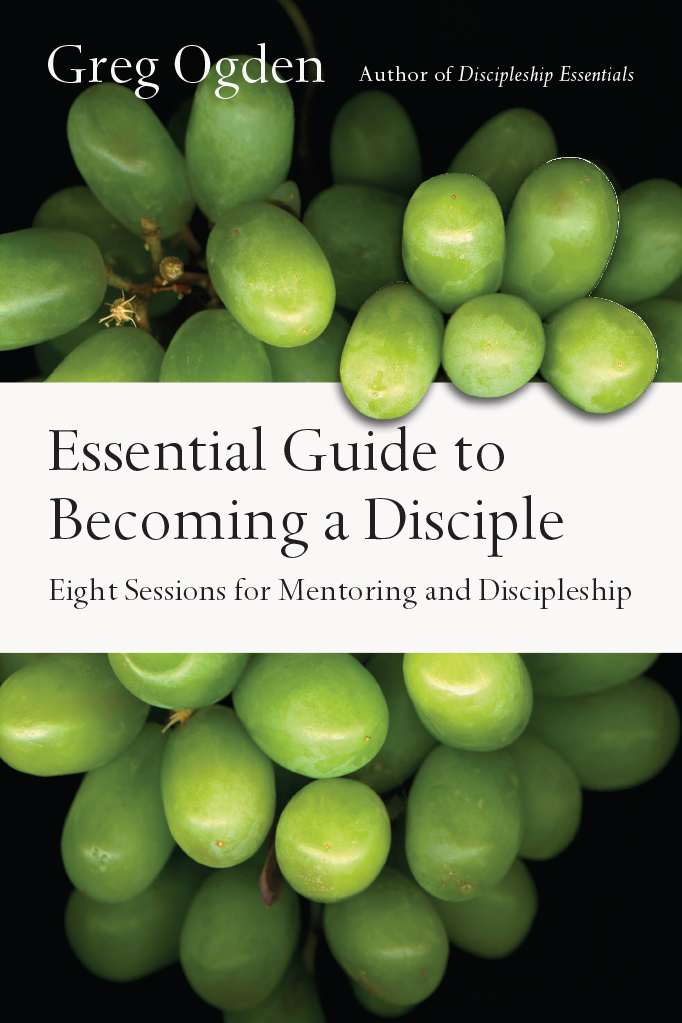 Essential Guide to Becoming a Disciple: Eight Sessions for Mentoring and Discipleship
Essential Guide to Becoming a Disciple: Eight Sessions for Mentoring and Discipleship 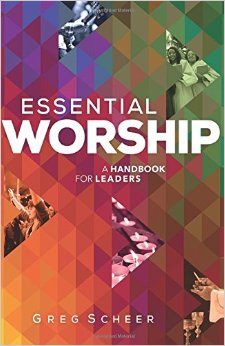 Essential Worship: A Handbook for Leaders Greg Scheer (Baker Books) $19.99 Speaking of Bellefield Presbyterian Church in Pittsburgh, this author used to be the organist and worship leader there. I recall as a young man — I love telling this story — how he told me he was going to write a book. If I knew him better I would have realized he was gifted, insightful, creative, and would, in fact, write a book. We recommended any number of important resources to him in those years and, sure enough, as he was moving to the wonderfully liturgically rich CRC Church of the Servant in Grand Rapids, his first book came out. We love The Art of Worship and feel glad that we sold books to him in those years, surely setting him on a path towards what he is today — one of the most esteemed liturgists, contemporary worship leaders, and creative worship pastors in the country. Greg is a contributor to several well loved hymnals, is a music associate with the Calvin Institute on Christian Worship, and his music has been published by publishers such as Augsburg Fortress, GIA, Abingdon, and Worship Today.
Essential Worship: A Handbook for Leaders Greg Scheer (Baker Books) $19.99 Speaking of Bellefield Presbyterian Church in Pittsburgh, this author used to be the organist and worship leader there. I recall as a young man — I love telling this story — how he told me he was going to write a book. If I knew him better I would have realized he was gifted, insightful, creative, and would, in fact, write a book. We recommended any number of important resources to him in those years and, sure enough, as he was moving to the wonderfully liturgically rich CRC Church of the Servant in Grand Rapids, his first book came out. We love The Art of Worship and feel glad that we sold books to him in those years, surely setting him on a path towards what he is today — one of the most esteemed liturgists, contemporary worship leaders, and creative worship pastors in the country. Greg is a contributor to several well loved hymnals, is a music associate with the Calvin Institute on Christian Worship, and his music has been published by publishers such as Augsburg Fortress, GIA, Abingdon, and Worship Today.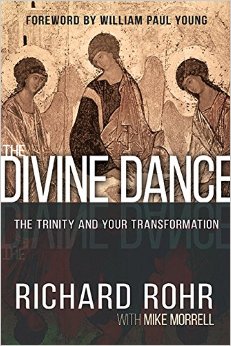 Next,
Next, 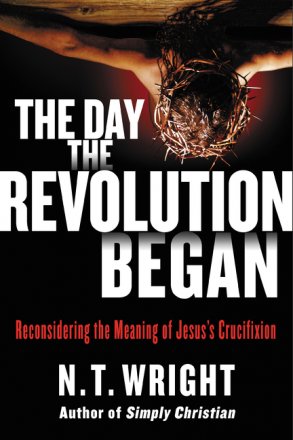 “Christian Origins and the Question of God” series.
“Christian Origins and the Question of God” series.
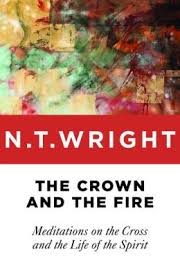
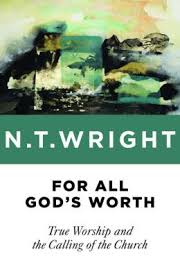 The Crown and the Fire: Meditations on the Cross and the Life of the Spirit
The Crown and the Fire: Meditations on the Cross and the Life of the Spirit
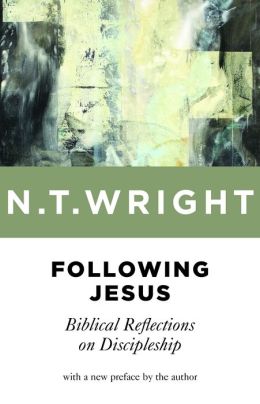
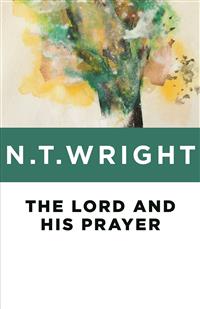
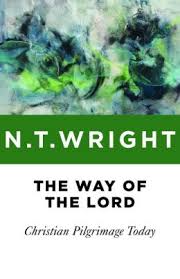 The Way of the Lord: Christian Pilgrimage Today
The Way of the Lord: Christian Pilgrimage Today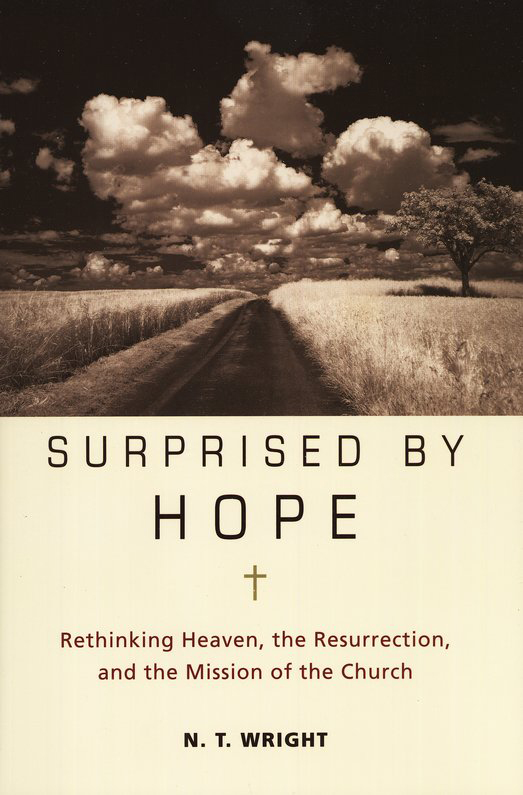 In some ways The Day the Revolution Began: Reconsidering the Meaning of Jesus’s Crucifixion is a follow up to Surprised by Hope. Its basic project is to examine how the New Testament teaching on the cross of Christ is properly understood within the context of the goal or outcome of that violent death; that is, what’s the point? Yes, yes, the cross is prelude to resurrection, but, for what? One can believe in the centrality of the cross of Christ and affirm the bodily resurrection as the creeds and orthodox churches all have and still get that question wrong.
In some ways The Day the Revolution Began: Reconsidering the Meaning of Jesus’s Crucifixion is a follow up to Surprised by Hope. Its basic project is to examine how the New Testament teaching on the cross of Christ is properly understood within the context of the goal or outcome of that violent death; that is, what’s the point? Yes, yes, the cross is prelude to resurrection, but, for what? One can believe in the centrality of the cross of Christ and affirm the bodily resurrection as the creeds and orthodox churches all have and still get that question wrong. 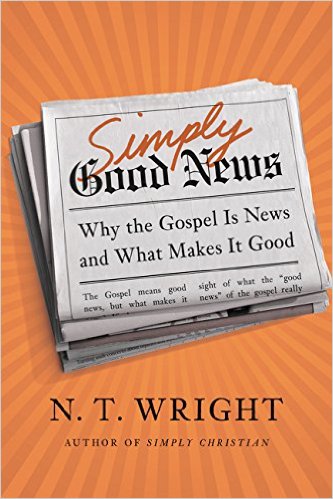
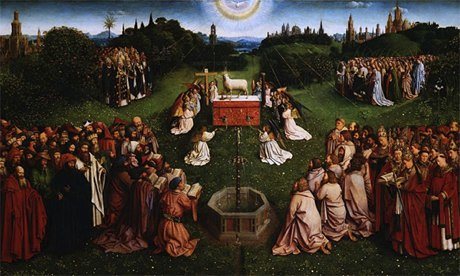
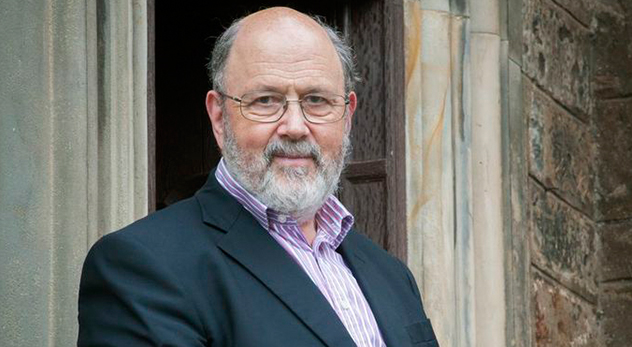 The Day the Revolution Began: Reconsidering the Meaning of Jesus’s Crucifixion is essentially a master class with Dr. N.T. Wright – offering a synthesis of his major work on Jesus and Paul; he sometimes says (without any noticeable pride or pushiness) something like “I covered this in Evil and the Justice of God” or “This line of thinking is different then what I wrote in my New Interpreters Commentary on Romans.” Of course he explains how all this new material relates to his important volume Surprised by Hope and How God Became King. This is a beautiful summary, yes, but it is very new stuff, too. And, interestingly, provides an occasional change in focus and/or reformulations of some of his previous writings. (Is this common in the academy, I
The Day the Revolution Began: Reconsidering the Meaning of Jesus’s Crucifixion is essentially a master class with Dr. N.T. Wright – offering a synthesis of his major work on Jesus and Paul; he sometimes says (without any noticeable pride or pushiness) something like “I covered this in Evil and the Justice of God” or “This line of thinking is different then what I wrote in my New Interpreters Commentary on Romans.” Of course he explains how all this new material relates to his important volume Surprised by Hope and How God Became King. This is a beautiful summary, yes, but it is very new stuff, too. And, interestingly, provides an occasional change in focus and/or reformulations of some of his previous writings. (Is this common in the academy, I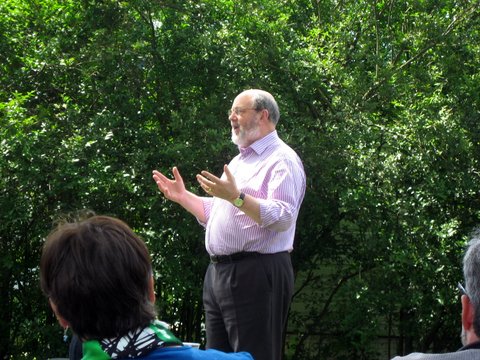 wonder, a fairly matter of fact admission that he is re-thinking some things. In some church circles that would be a sign of some great weakness, an admission of error – heaven forbid! – but he’s fairly nonplussed by it all. He just explains he’s rethought a few things and is breaking some new ground. I liked that a lot. So this is both an overview, a summary, a serious bit of Biblical research and a whole lot of new, new ground.
wonder, a fairly matter of fact admission that he is re-thinking some things. In some church circles that would be a sign of some great weakness, an admission of error – heaven forbid! – but he’s fairly nonplussed by it all. He just explains he’s rethought a few things and is breaking some new ground. I liked that a lot. So this is both an overview, a summary, a serious bit of Biblical research and a whole lot of new, new ground.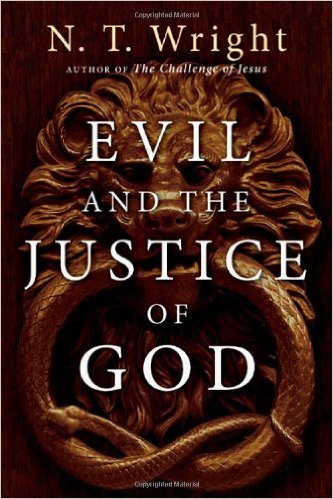 understand God the Father as mostly angry and in need of some bloodletting. I don’t think he explores the complex scapegoat theories of Rene Girard, but he is at least in that ball park of trying to understand mysteries and confusions, juxtaposing various Biblical models, metaphors, images, and formulations. I hope you have read his profound and moving Evil and the Justice of God; this pushes further in that direction.
understand God the Father as mostly angry and in need of some bloodletting. I don’t think he explores the complex scapegoat theories of Rene Girard, but he is at least in that ball park of trying to understand mysteries and confusions, juxtaposing various Biblical models, metaphors, images, and formulations. I hope you have read his profound and moving Evil and the Justice of God; this pushes further in that direction.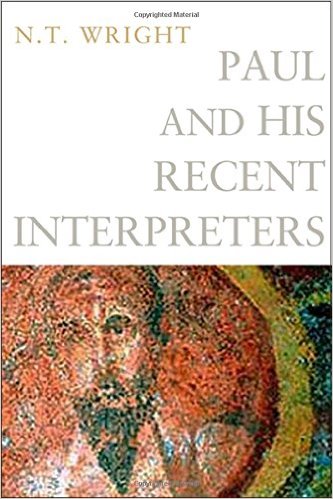 ootnotes would have facilitated.
ootnotes would have facilitated.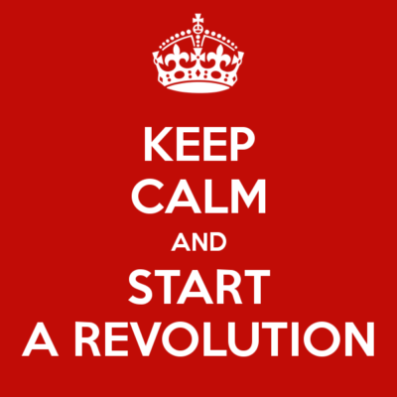
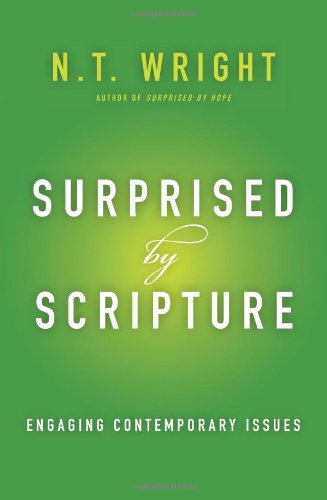


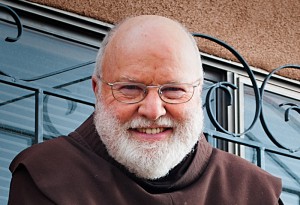
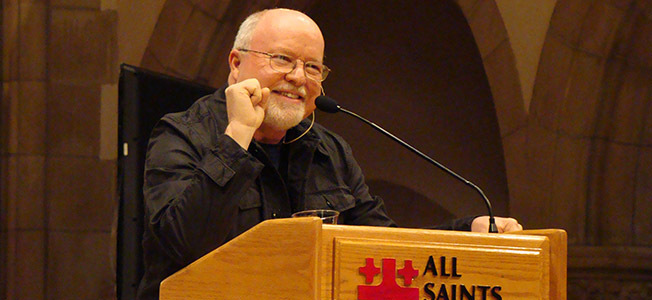 agents of God’s redemptive, healing work in the world. His calling to help build a new world of love and justice is founded upon the need for deeper ways to walk with God. Trust and Obey the old fundamentalists used to sing. Pray and Work chanted the Benedictines. Behold and Be somebody surely said. You get the picture.
agents of God’s redemptive, healing work in the world. His calling to help build a new world of love and justice is founded upon the need for deeper ways to walk with God. Trust and Obey the old fundamentalists used to sing. Pray and Work chanted the Benedictines. Behold and Be somebody surely said. You get the picture.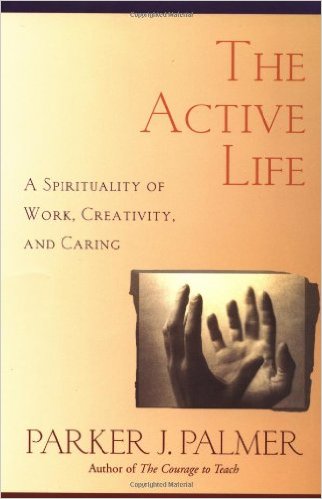 retreats using Parker Palmer’s lovely The Active Life: A Spirituality of Work, Creativity, and Caring. Richard Foster is an impeccable evangelically catholic writer about spiritual formation whose most beloved work, Celebration of Discipline, is arranged around a progression of spiritual practices that move from inward to upward to outward. He links meditation and study, worship and work, prayer and politics — beautiful and so very good. I really, really like a lesser-known book by Tony Campolo and Mary Albert Darling called The God of Intimacy and Action: Reconnecting Ancient Spiritual Practices, Evangelism, and Justice. Do you know it? I trust you know the marvelous social justicy prayer book for
retreats using Parker Palmer’s lovely The Active Life: A Spirituality of Work, Creativity, and Caring. Richard Foster is an impeccable evangelically catholic writer about spiritual formation whose most beloved work, Celebration of Discipline, is arranged around a progression of spiritual practices that move from inward to upward to outward. He links meditation and study, worship and work, prayer and politics — beautiful and so very good. I really, really like a lesser-known book by Tony Campolo and Mary Albert Darling called The God of Intimacy and Action: Reconnecting Ancient Spiritual Practices, Evangelism, and Justice. Do you know it? I trust you know the marvelous social justicy prayer book for 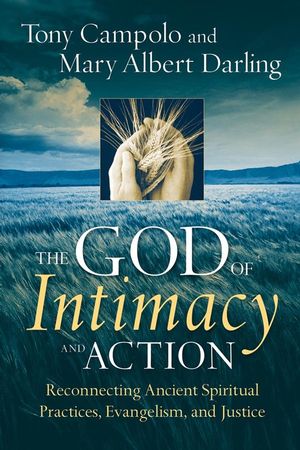 fixed hour prayers created by Shane Claiborne, Jonathan Wilson-Hartgrove and Enuma Okoro called Uncommon Prayer: A Liturgy for Ordinary Radicals. Some of the great Protestant theologians I respect — think of Abraham Kuyper, just for instance — lived in this rhythm of being “near unto God” and yet working for a public life ordered by God’s justice. He wrote treatises on God’s goodness made manifest in the details of creation, works on the Holy Spirit, and on social justice. Near Unto God is a meaty daily devotional based on one line of Psalm 73.
fixed hour prayers created by Shane Claiborne, Jonathan Wilson-Hartgrove and Enuma Okoro called Uncommon Prayer: A Liturgy for Ordinary Radicals. Some of the great Protestant theologians I respect — think of Abraham Kuyper, just for instance — lived in this rhythm of being “near unto God” and yet working for a public life ordered by God’s justice. He wrote treatises on God’s goodness made manifest in the details of creation, works on the Holy Spirit, and on social justice. Near Unto God is a meaty daily devotional based on one line of Psalm 73.
 comes with the territory of being a movement leader, a guy on the road, on the run, who isn’t firstly an academic. Or maybe it is because it is co-written; the book doesn’t make clear what role Mike played. I suspect the (maybe) young, evangelical editors at Whitaker House were in over their heads, working with 4
comes with the territory of being a movement leader, a guy on the road, on the run, who isn’t firstly an academic. Or maybe it is because it is co-written; the book doesn’t make clear what role Mike played. I suspect the (maybe) young, evangelical editors at Whitaker House were in over their heads, working with 4 nature of God the Father, God the Son, God the Holy Spirit, but he also suggests regularly that God is not (only?) a “person” but is the glorious flow of love between and among the Trinity. Trinity – mystery that it/they is/are – is described in Rohr’s lingo not as much as a Dancer (which I like) but as the Dance itself. Not the Person but the process. Unhelpfully, for me, at least, is his insistence on calling this Flow. Yeah, I know.
nature of God the Father, God the Son, God the Holy Spirit, but he also suggests regularly that God is not (only?) a “person” but is the glorious flow of love between and among the Trinity. Trinity – mystery that it/they is/are – is described in Rohr’s lingo not as much as a Dancer (which I like) but as the Dance itself. Not the Person but the process. Unhelpfully, for me, at least, is his insistence on calling this Flow. Yeah, I know.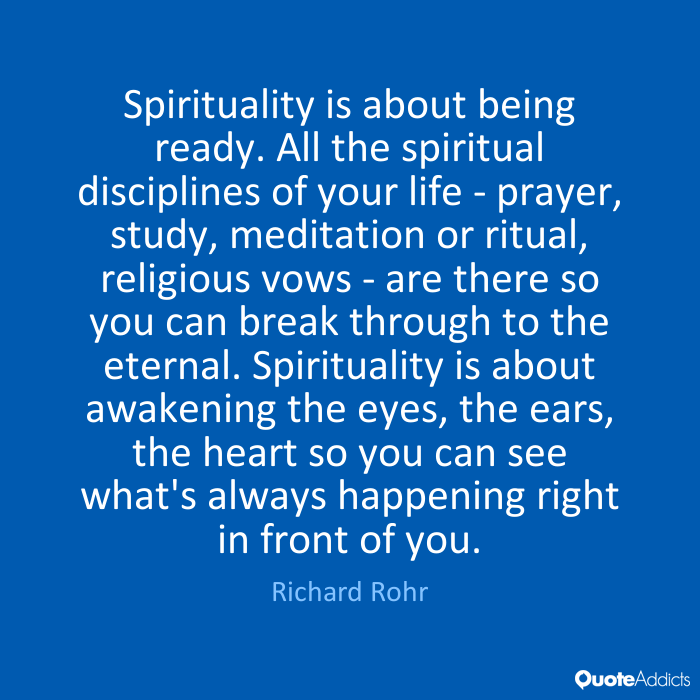
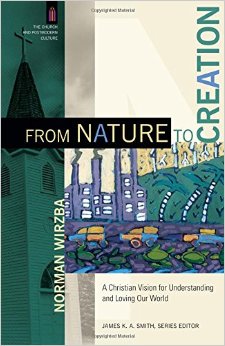 simply must affirm the full humanity and divinity of Christ. We must affirm the lively, living role of the Holy Spirit, empowerer and comforter. And, we must understand, honor, and experience a profound sense of reality as creation, upheld moment by moment by God, in Christ. Why not order from us Norman Wirzba’s From Nature to Creation: A Christian Vision for Understanding and Loving Our World as a fairly heady study of this extraordinary and urgent essential; see, too, the beautiful coffee-table gift book he edited full of nature photography and essays by the likes of Sylvia Keesmaat and Wendell Berry called The Gift of Creation: Images from Scripture and Earth for a more evocative, sensuous way into this deeper understanding of creation. We so enjoy having that here and would love to send a few out. I mention this here, now, because I fear that sometimes guidance about mystical experience and even this sort of dancing participation with God
simply must affirm the full humanity and divinity of Christ. We must affirm the lively, living role of the Holy Spirit, empowerer and comforter. And, we must understand, honor, and experience a profound sense of reality as creation, upheld moment by moment by God, in Christ. Why not order from us Norman Wirzba’s From Nature to Creation: A Christian Vision for Understanding and Loving Our World as a fairly heady study of this extraordinary and urgent essential; see, too, the beautiful coffee-table gift book he edited full of nature photography and essays by the likes of Sylvia Keesmaat and Wendell Berry called The Gift of Creation: Images from Scripture and Earth for a more evocative, sensuous way into this deeper understanding of creation. We so enjoy having that here and would love to send a few out. I mention this here, now, because I fear that sometimes guidance about mystical experience and even this sort of dancing participation with God pure awareness of God, that we enter “Consciousness” and “that is all there really is“? Does the beauty of things fade away? Is creation gone? What could this possibly mean? He then cites James 1:17 which affirms good things in life, so he can’t mean what he says. This is a fundamental flaw within most mysticisms that, try as we might with alternative ways of knowing and talk about the body, still is mired in gnosticism and/or Platonic dualism. If knowing the Triune God in the way Richard commends leads us away from or out of creation, then it is simply wrong and will not bear the transforming social fruit that he himself desires. I do not believe he believes that the Flow is “all there really is” but yet there it is on page 77. Maybe the charismatic tendencies of the editors at Whitaker House did not realize what a terribly bad way this is to express Oneness with God. I suppose I misunderstand Mike and Richard here, but it gave me the willies.)
pure awareness of God, that we enter “Consciousness” and “that is all there really is“? Does the beauty of things fade away? Is creation gone? What could this possibly mean? He then cites James 1:17 which affirms good things in life, so he can’t mean what he says. This is a fundamental flaw within most mysticisms that, try as we might with alternative ways of knowing and talk about the body, still is mired in gnosticism and/or Platonic dualism. If knowing the Triune God in the way Richard commends leads us away from or out of creation, then it is simply wrong and will not bear the transforming social fruit that he himself desires. I do not believe he believes that the Flow is “all there really is” but yet there it is on page 77. Maybe the charismatic tendencies of the editors at Whitaker House did not realize what a terribly bad way this is to express Oneness with God. I suppose I misunderstand Mike and Richard here, but it gave me the willies.)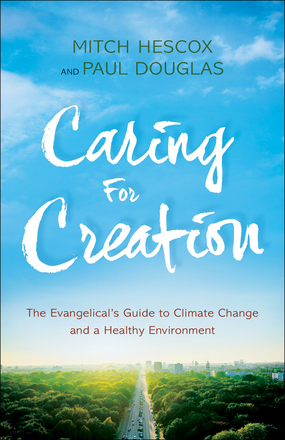 ***Don’t forget, if you are local, or know anyone local, that we are having an in-store “release party” and author appearance to celebrate the brand new book on Christian faith, climate change and earth-keeping stewardship called
***Don’t forget, if you are local, or know anyone local, that we are having an in-store “release party” and author appearance to celebrate the brand new book on Christian faith, climate change and earth-keeping stewardship called 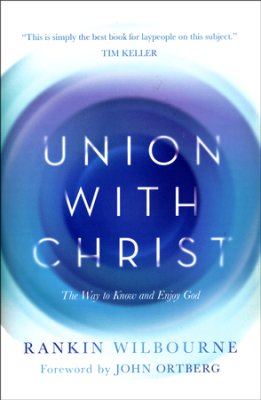 Union with Christ: The Way to Know and Enjoy God Rankin Wilbourne (Cook) $19.99 Oh my, every now and then a book comes along that I categorize as a “sleeper.” That is, few know the author, the publisher isn’t particularly renowned, the national press most likely isn’t going to do stories about it. But it is worth its weight in gold, ought to be known, is a true winner. We can only hope that Wilbourne’s new book gets noticed and used and stays in print long enough to become very well known. UwC is a book that does what we might think of as basic Christian growth, just solid teaching about the nature of God and how God works with and within us, but it is better than most such books. It offers clear-headed (and often very inspiring) advice, not terribly dressy or loud, just solid teaching, guidance, motivation, good stories, good quotes, well put. Union with Christ: The Way to Know and Enjoy God answers big worldviewish kinds of questions – who am I? Why am I here? Where am I headed ? How can I become that which I want to be? Pastor Wilbourne is good on questions like “what is the gospel” and invites us into a way of thinking about Christian formation that is practical and wise.
Union with Christ: The Way to Know and Enjoy God Rankin Wilbourne (Cook) $19.99 Oh my, every now and then a book comes along that I categorize as a “sleeper.” That is, few know the author, the publisher isn’t particularly renowned, the national press most likely isn’t going to do stories about it. But it is worth its weight in gold, ought to be known, is a true winner. We can only hope that Wilbourne’s new book gets noticed and used and stays in print long enough to become very well known. UwC is a book that does what we might think of as basic Christian growth, just solid teaching about the nature of God and how God works with and within us, but it is better than most such books. It offers clear-headed (and often very inspiring) advice, not terribly dressy or loud, just solid teaching, guidance, motivation, good stories, good quotes, well put. Union with Christ: The Way to Know and Enjoy God answers big worldviewish kinds of questions – who am I? Why am I here? Where am I headed ? How can I become that which I want to be? Pastor Wilbourne is good on questions like “what is the gospel” and invites us into a way of thinking about Christian formation that is practical and wise. 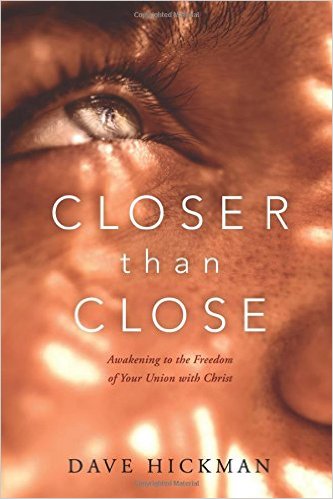 Closer Than Close: Awakening to the Freedom of Your Union with Christ Dave Hickman (Navpress) $14.99 It isn’t every week that we get two great books on the exact same topic (unless it is justice or marriage or prayer or… well, actually we often do get new books that are similar.) But never on this topic, as few are writing about it. Like Wilbourne, Rev. Hickman is well grounded in this doctrine that is woefully not explained as much as it should be in our churches. He is taken with how we are one with Christ and explores what that means, but, like Wilbourne, he has an extraordinary capacity to take big and even controversial theological matters and apply them to ordinary folks living ordinary lives. Like Wilbourne, Hickman is a pastor who is eager to help people overcome a gap in their lives.
Closer Than Close: Awakening to the Freedom of Your Union with Christ Dave Hickman (Navpress) $14.99 It isn’t every week that we get two great books on the exact same topic (unless it is justice or marriage or prayer or… well, actually we often do get new books that are similar.) But never on this topic, as few are writing about it. Like Wilbourne, Rev. Hickman is well grounded in this doctrine that is woefully not explained as much as it should be in our churches. He is taken with how we are one with Christ and explores what that means, but, like Wilbourne, he has an extraordinary capacity to take big and even controversial theological matters and apply them to ordinary folks living ordinary lives. Like Wilbourne, Hickman is a pastor who is eager to help people overcome a gap in their lives.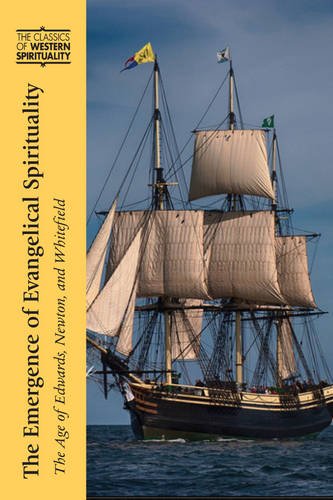 The Emergence of Evangelical Spirituality: The Age of Edwards, Newton, and Whitefield edited by Tom Schwanda (Paulist Press) $39.95 I hope you know Tom Schwanda; his previous book is beautifully entitled Soul Recreation which is a provocative and compelling argument that the staunch Puritans were – get this – more contemplative and mystical in their spirituality than many may realize. Seriously Reformed dogmatists draw on the exceptionally rigorous and exceedingly logical theological formulations and systematic schemes of major Puritan pastors and preachers but Schwanda shows that they have an often-missed mystical side to their deep piety. Schwanda (who teaches Christian Formation and Ministry at Wheaton College) is an ordained minister in the Reformed Church in America; his PhD in historical theology is from Durham University in England. He is a remarkable individual and is doing very, very important work.
The Emergence of Evangelical Spirituality: The Age of Edwards, Newton, and Whitefield edited by Tom Schwanda (Paulist Press) $39.95 I hope you know Tom Schwanda; his previous book is beautifully entitled Soul Recreation which is a provocative and compelling argument that the staunch Puritans were – get this – more contemplative and mystical in their spirituality than many may realize. Seriously Reformed dogmatists draw on the exceptionally rigorous and exceedingly logical theological formulations and systematic schemes of major Puritan pastors and preachers but Schwanda shows that they have an often-missed mystical side to their deep piety. Schwanda (who teaches Christian Formation and Ministry at Wheaton College) is an ordained minister in the Reformed Church in America; his PhD in historical theology is from Durham University in England. He is a remarkable individual and is doing very, very important work.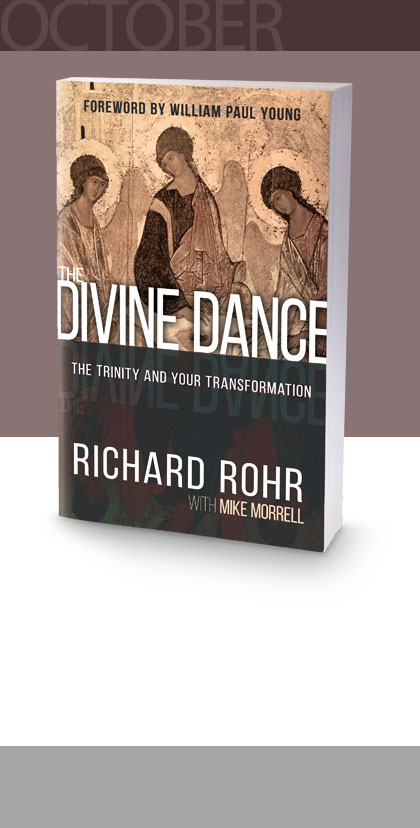 PRE-ORDER NOW The Divine Dance: The Trinity and Your Transformation Richard Rohr with Mike Morrell (Whittaker House) $23.99 Well. I have mentioned Richard Rohr often in these pages, and I greatly, greatly appreciate his deep desire to integrate a profound, deep spirituality with an active, even prophetic, public faith. I have read or listened to him for years – he was known early on as a leader in Catholic charismatic renewal, an early voice in the conversation about postmodernism, a long-standing activist for nonviolence, creation-care, and service to the poor. (He is a Franciscan, after all.)
PRE-ORDER NOW The Divine Dance: The Trinity and Your Transformation Richard Rohr with Mike Morrell (Whittaker House) $23.99 Well. I have mentioned Richard Rohr often in these pages, and I greatly, greatly appreciate his deep desire to integrate a profound, deep spirituality with an active, even prophetic, public faith. I have read or listened to him for years – he was known early on as a leader in Catholic charismatic renewal, an early voice in the conversation about postmodernism, a long-standing activist for nonviolence, creation-care, and service to the poor. (He is a Franciscan, after all.)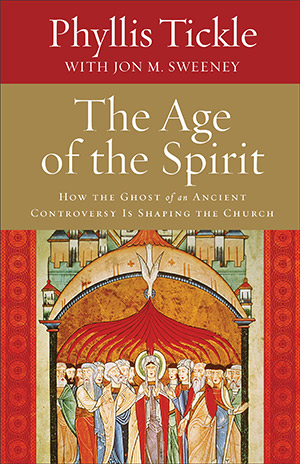 throughout the religious publishing world as an editor, writer, and vigorous cheerleader for authors and bookstores. You may recall that Phyllis’s last major book (besides a lovely book collection of poetry) was The Age of the Spirit: How the Ghost of an Ancient Controversy is Shaping the Church. I mention this to suggest that this new book by Richard Rohr is another indication that Phyllis was on to something. We need good conversations on the Trinity and we need help in understanding the work of the Spirit. Our own transformation and our participation in God’s gracious redemptive work in the world is at stake.
throughout the religious publishing world as an editor, writer, and vigorous cheerleader for authors and bookstores. You may recall that Phyllis’s last major book (besides a lovely book collection of poetry) was The Age of the Spirit: How the Ghost of an Ancient Controversy is Shaping the Church. I mention this to suggest that this new book by Richard Rohr is another indication that Phyllis was on to something. We need good conversations on the Trinity and we need help in understanding the work of the Spirit. Our own transformation and our participation in God’s gracious redemptive work in the world is at stake.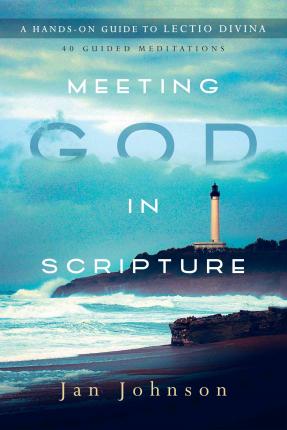 Meeting God in Scripture: A Hands-On Guide to Lectio Divina Jan Johnston ( IVP) $17.00 This handsome new paperback just arrived and I’ve not yet used it – it isn’t a book to quickly skim but to work with, to explore, to sit with, to practice. There are 40 guided meditations nicely arranged, so obviously it is a book to use, to absorb, a resource for your own quiet time. As with some of her earlier work it is a beautiful blend of contemplative prayer and Bible study. The whole lectio process is explained well and she gives us these generative exercises and Scriptural meditations to find a richer encounter with God even as we reflect carefully on the Biblical text. Jan is a skilled and faithful interpreter of this ancient practice and a fine, fine writer. We have promoted her many other books (including the gorgeous When the Soul Listens and Abundant Simplicity: Discovering the Unhurried Rhythms of Grace.) Meeting God in Scripture is going to be a great asset for those just starting out with this contemplative practice or will be an addition to those who collect these kinds of Bible study resources.
Meeting God in Scripture: A Hands-On Guide to Lectio Divina Jan Johnston ( IVP) $17.00 This handsome new paperback just arrived and I’ve not yet used it – it isn’t a book to quickly skim but to work with, to explore, to sit with, to practice. There are 40 guided meditations nicely arranged, so obviously it is a book to use, to absorb, a resource for your own quiet time. As with some of her earlier work it is a beautiful blend of contemplative prayer and Bible study. The whole lectio process is explained well and she gives us these generative exercises and Scriptural meditations to find a richer encounter with God even as we reflect carefully on the Biblical text. Jan is a skilled and faithful interpreter of this ancient practice and a fine, fine writer. We have promoted her many other books (including the gorgeous When the Soul Listens and Abundant Simplicity: Discovering the Unhurried Rhythms of Grace.) Meeting God in Scripture is going to be a great asset for those just starting out with this contemplative practice or will be an addition to those who collect these kinds of Bible study resources.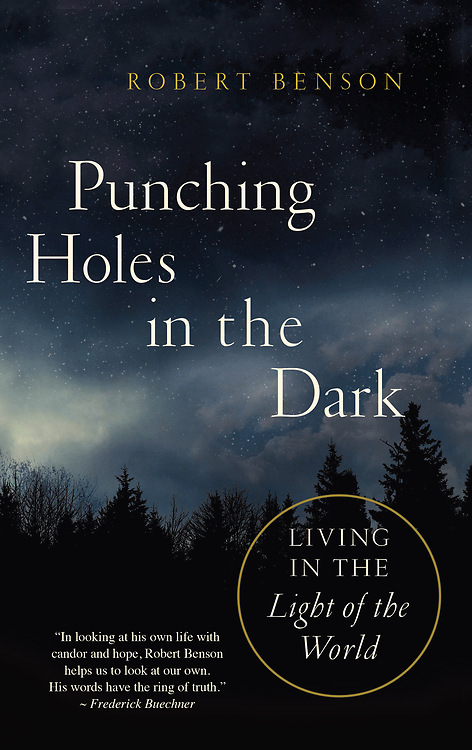 Punching Holes in the Dark: Living in the Light of the World Robert Benson (Abingdon) $16.99 I have said often and will say again that I will read anything I can get my hands on by Robert Benson. If he wants to send me his grocery list or last will and testament, I’m all over it. He is a master of great sentences, an enjoyable writer who tells gentle stories about his life, honest tales of insight learned in the push and pull of the day to day.
Punching Holes in the Dark: Living in the Light of the World Robert Benson (Abingdon) $16.99 I have said often and will say again that I will read anything I can get my hands on by Robert Benson. If he wants to send me his grocery list or last will and testament, I’m all over it. He is a master of great sentences, an enjoyable writer who tells gentle stories about his life, honest tales of insight learned in the push and pull of the day to day.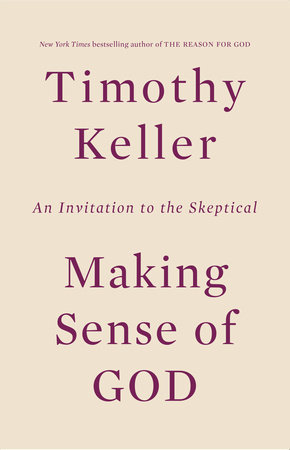 Making Sense of God: An Invitation to the Skeptical Timothy Keller (Viking) $27.00 This extraordinary book deserves to be carefully studied, it deserves to be reviewed well, and it is certainly adequate to send to friends who are deeply agnostic, seriously skeptical or who think that the Christian faith is so odd and untrue that it needn’t even be explored. I can only announce it here, but I do so with great pride: to get to promote such beautiful, thoughtful, informed and honest books, sturdy in more than design, is a great privilege and great joy. Regardless of what you think of Keller’s broad-ranging cultural engagement based on a fairly conventional, gospel-centered sort of thoughtful Calvinism, his apologetics — based on years of real face to face conversations with serious and often sophisticated urbane secularists — is not only admirable, it is worth engaging. Read this book, work on it carefully if you have to. It is rich and deep and interesting and good. By the way, if you know his excellent Reason for God, this is a bit more philosophical, a bit headier, perhaps; it is what might want to call a prequel. Here’s how Tim puts it:
Making Sense of God: An Invitation to the Skeptical Timothy Keller (Viking) $27.00 This extraordinary book deserves to be carefully studied, it deserves to be reviewed well, and it is certainly adequate to send to friends who are deeply agnostic, seriously skeptical or who think that the Christian faith is so odd and untrue that it needn’t even be explored. I can only announce it here, but I do so with great pride: to get to promote such beautiful, thoughtful, informed and honest books, sturdy in more than design, is a great privilege and great joy. Regardless of what you think of Keller’s broad-ranging cultural engagement based on a fairly conventional, gospel-centered sort of thoughtful Calvinism, his apologetics — based on years of real face to face conversations with serious and often sophisticated urbane secularists — is not only admirable, it is worth engaging. Read this book, work on it carefully if you have to. It is rich and deep and interesting and good. By the way, if you know his excellent Reason for God, this is a bit more philosophical, a bit headier, perhaps; it is what might want to call a prequel. Here’s how Tim puts it: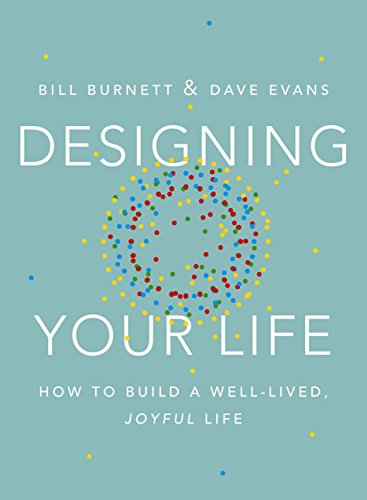 Designing Your Life: How to Build a Well-Lived Joyful Life Bill Burnett & Dave Evans (Knopf) $24.95 Speaking of lovely, sturdy books this fine work was just released by Knopf — surely one of he more prestigious mainstream publishers. Evans had some connection with Tim Keller, as a matter of fact, making it a rather serendipitous occasion for this book to come out this week, too. It can be explained rather simply: it looks at design thinking and offers very specific guidance for how to take those artful principles and apply them to your own search for a life and career and calling of purpose and meaning and happiness. David Kelly (founder of IDEO) says it is “the career book for the next decade…the ‘go-to’ book that is read as a rite of passage whenever someone is ready to create a life he or she loves.” Wow.
Designing Your Life: How to Build a Well-Lived Joyful Life Bill Burnett & Dave Evans (Knopf) $24.95 Speaking of lovely, sturdy books this fine work was just released by Knopf — surely one of he more prestigious mainstream publishers. Evans had some connection with Tim Keller, as a matter of fact, making it a rather serendipitous occasion for this book to come out this week, too. It can be explained rather simply: it looks at design thinking and offers very specific guidance for how to take those artful principles and apply them to your own search for a life and career and calling of purpose and meaning and happiness. David Kelly (founder of IDEO) says it is “the career book for the next decade…the ‘go-to’ book that is read as a rite of passage whenever someone is ready to create a life he or she loves.” Wow.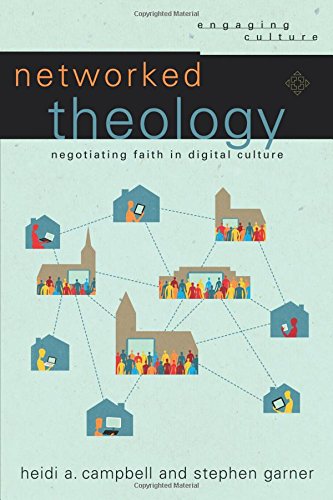 Networked Theology: Negotiating the Faith in Digital Culture Heidi A. Campbell and Stephen Garner (Baker Academic) $22.99 I hope you know this “engaging culture” series from Baker Academic. We stock each and everyone and they are thrilling. I don’t know why they aren’t more discussed and more widely used in churches. (Maybe they are in some places.) These are thoughtful, serious, but not systematic theology texts; they are applied theology, each taking up aspects of contemporary culture and thinking about it and within it from a Biblical vantage point. (The last one was magisterial and a lot of fun to read — Leisure and Spirituality: Biblical, Historical, and Contemporary Perspectives by Paul Heintzman.) Kudos to William Dyrness and Robert Johnston for editing this astute series.
Networked Theology: Negotiating the Faith in Digital Culture Heidi A. Campbell and Stephen Garner (Baker Academic) $22.99 I hope you know this “engaging culture” series from Baker Academic. We stock each and everyone and they are thrilling. I don’t know why they aren’t more discussed and more widely used in churches. (Maybe they are in some places.) These are thoughtful, serious, but not systematic theology texts; they are applied theology, each taking up aspects of contemporary culture and thinking about it and within it from a Biblical vantage point. (The last one was magisterial and a lot of fun to read — Leisure and Spirituality: Biblical, Historical, and Contemporary Perspectives by Paul Heintzman.) Kudos to William Dyrness and Robert Johnston for editing this astute series.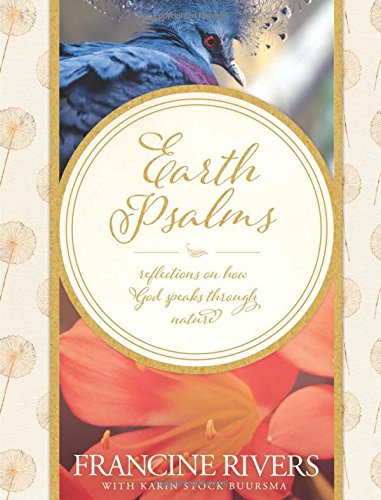 Earth Psalms: Reflections on How God Speaks Through Nature Francine Rivers with Karin Stock Buursma (Tyndale) $16.99 Do you know the beloved, often moving, spiritual novels of Francine Rivers? She has a major, dedicated following for those who read Christian fiction — Redeeming Love is a Western re-telling of Hosea, for instance. Here the talented inspirational writer does a very different sort of book — a weekly devotional based on the beauties of creation. We have a major section in the store of what some called nature writing and we have books for the outdoorsy types, finding God in the wind and rain and such. Some are luminous, poetic, some nearly pantheistic, I fear. This, though, is utterly orthodox as she takes us to the joys of beholding a persistent woodpecker, the majestic redwoods, a glorious sunrise. This is sweet and dear stuff — finding God’s goodness in good things, realizing God’s presence and nearness, God’s attention and joy and love. Happily, there is stunning full color nature photography enhancing every reading making this not only a moving book to hold but a glorious one, too. There are glossy pages, a ribbon marker, and a truly beautiful cover. The Lord offers us “countless blessings” it says in handsome calligraphy. This book is one of them.
Earth Psalms: Reflections on How God Speaks Through Nature Francine Rivers with Karin Stock Buursma (Tyndale) $16.99 Do you know the beloved, often moving, spiritual novels of Francine Rivers? She has a major, dedicated following for those who read Christian fiction — Redeeming Love is a Western re-telling of Hosea, for instance. Here the talented inspirational writer does a very different sort of book — a weekly devotional based on the beauties of creation. We have a major section in the store of what some called nature writing and we have books for the outdoorsy types, finding God in the wind and rain and such. Some are luminous, poetic, some nearly pantheistic, I fear. This, though, is utterly orthodox as she takes us to the joys of beholding a persistent woodpecker, the majestic redwoods, a glorious sunrise. This is sweet and dear stuff — finding God’s goodness in good things, realizing God’s presence and nearness, God’s attention and joy and love. Happily, there is stunning full color nature photography enhancing every reading making this not only a moving book to hold but a glorious one, too. There are glossy pages, a ribbon marker, and a truly beautiful cover. The Lord offers us “countless blessings” it says in handsome calligraphy. This book is one of them.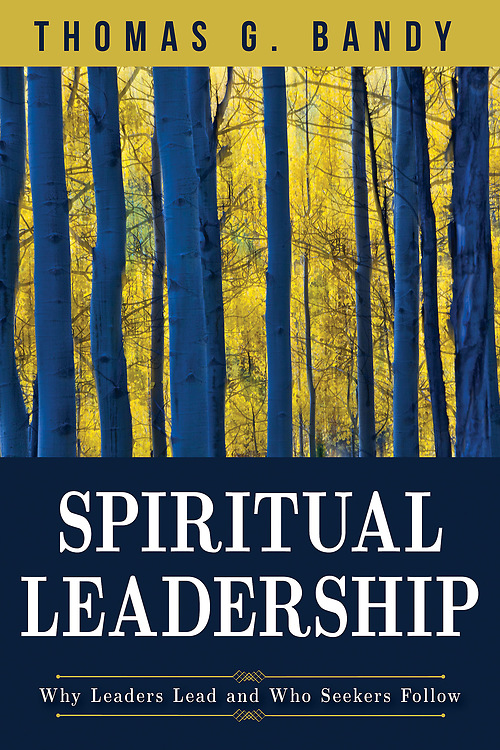 Spiritual Leadership: Why Leaders Lead and Who Seekers Follow Thomas G. Bandy (Abingdon Press) $19.99 We got quite a shipment from Abingdon this week – we’ve ordered almost every single book they’ve published this season, it seems. There are some standard authors they release and Bandy is one of them. (Bill Easum, too — we got his new one in this week as well. More on that, called Execute Your Vision, later.) In keeping with my theme of the variety of good books that show up, week by week, this is surely one we’ll want to read and explore and stock as we do book displays on the road this fall. The back cover has bunches of raves reviews — from a Protopresbyter in the Greek Orthodox Church to Lovett Weems, Distinguished Professor of Church Leadership at Wesley Theological Seminary, to Cory Sparks who is the Director of the LANO Institute for Nonprofit Excellence.
Spiritual Leadership: Why Leaders Lead and Who Seekers Follow Thomas G. Bandy (Abingdon Press) $19.99 We got quite a shipment from Abingdon this week – we’ve ordered almost every single book they’ve published this season, it seems. There are some standard authors they release and Bandy is one of them. (Bill Easum, too — we got his new one in this week as well. More on that, called Execute Your Vision, later.) In keeping with my theme of the variety of good books that show up, week by week, this is surely one we’ll want to read and explore and stock as we do book displays on the road this fall. The back cover has bunches of raves reviews — from a Protopresbyter in the Greek Orthodox Church to Lovett Weems, Distinguished Professor of Church Leadership at Wesley Theological Seminary, to Cory Sparks who is the Director of the LANO Institute for Nonprofit Excellence.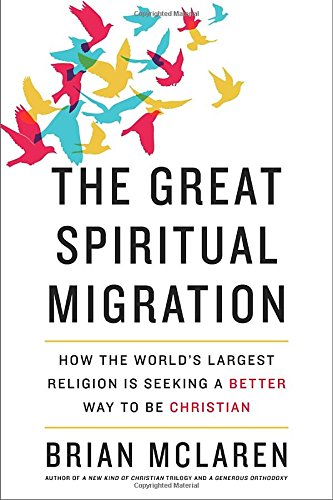 The Great Spiritual Migration: How the World’s Largest Religion is Seeking a Better Way to Be Christian Brian D. McLaren (Convergent) $21.00 I have read about half of this and am eager to continue on as I find time this crazy week. I think Brian is always worth reading and agree or not with every emphasis and every new insight there is little doubt that he offers kind and pastoral wisdom about many things. He is balanced and fair and eager to bear witness to the truths of Christ as he sees them. Just last night I was addressing a mainline denomination known for it’s more liberal styles and views. I encouraged them to read this as it ends up being a bit close to what they could be, but with a zeal and passion that is characteristic of a evangelical. This is not a lazy or sloppy drift towards liberal, ambiguous (non)theology, it is a robust and passionate call to faith that is creative and liberating and full of love and grace. Granted, I may wish Brian had a tiny bit of Keller in him, and I may wish Keller had a bit more Brian. I hope I”m not alone in enjoying them both and seeing a place for both.
The Great Spiritual Migration: How the World’s Largest Religion is Seeking a Better Way to Be Christian Brian D. McLaren (Convergent) $21.00 I have read about half of this and am eager to continue on as I find time this crazy week. I think Brian is always worth reading and agree or not with every emphasis and every new insight there is little doubt that he offers kind and pastoral wisdom about many things. He is balanced and fair and eager to bear witness to the truths of Christ as he sees them. Just last night I was addressing a mainline denomination known for it’s more liberal styles and views. I encouraged them to read this as it ends up being a bit close to what they could be, but with a zeal and passion that is characteristic of a evangelical. This is not a lazy or sloppy drift towards liberal, ambiguous (non)theology, it is a robust and passionate call to faith that is creative and liberating and full of love and grace. Granted, I may wish Brian had a tiny bit of Keller in him, and I may wish Keller had a bit more Brian. I hope I”m not alone in enjoying them both and seeing a place for both.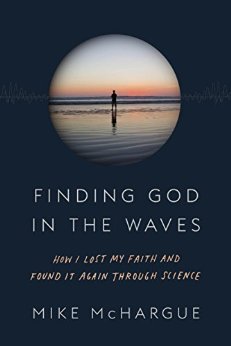 Finding God in the Waves: How I Lost My Faith and Found It Again Through Science Mike McHargue (Convergence) $24.00 Wow, what a book. I am not sure what to make of this — haven’t read it yet. But I’ve seen the very attractive trailers done on line and am eager to check it out. Rob Bell, not surprisingly, wrote the forward — Rob has long been interested in quantum physics and string theory and the like, and it seems that this “science guy” had a weird rediscovery of his faith by studying the intricacies of what Barbara Brown Taylor has called (in her collection of beautiful pieces about faith and science) “the luminous web.” This guy was an atheist and science — cosmology and neuro-biology, actually – lead him to faith in the Risen Christ. He says you can meet Jesus even if you don’t understand it all. Well, yeah. He’s very, very smart, really, really funny, and full of faith and doubt and courage and heart. I’m excited by this. With blurbs on the back from Pete Holmes (of a HBO comedy show) and Tanya Luhrmann (a prof at Stanford) and Franciscan Richard Rohr and Donald Miller, well, this has something for everyone.
Finding God in the Waves: How I Lost My Faith and Found It Again Through Science Mike McHargue (Convergence) $24.00 Wow, what a book. I am not sure what to make of this — haven’t read it yet. But I’ve seen the very attractive trailers done on line and am eager to check it out. Rob Bell, not surprisingly, wrote the forward — Rob has long been interested in quantum physics and string theory and the like, and it seems that this “science guy” had a weird rediscovery of his faith by studying the intricacies of what Barbara Brown Taylor has called (in her collection of beautiful pieces about faith and science) “the luminous web.” This guy was an atheist and science — cosmology and neuro-biology, actually – lead him to faith in the Risen Christ. He says you can meet Jesus even if you don’t understand it all. Well, yeah. He’s very, very smart, really, really funny, and full of faith and doubt and courage and heart. I’m excited by this. With blurbs on the back from Pete Holmes (of a HBO comedy show) and Tanya Luhrmann (a prof at Stanford) and Franciscan Richard Rohr and Donald Miller, well, this has something for everyone. 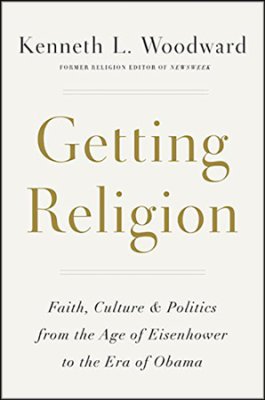 Getting Religion: Faith, Culture, and Politics from the Age of Eisenhower to the Era of Obama Kenneth L. Woodward (Convergent) $30.00 No offense to the edgy, cool, thoughtfully progressive Christian Convergent publishing, but I thought this would have been on Random House or Knopf or one of the prestigious New York houses. I suspect it will appear prominently on the New York Times bestseller list and be taken serious on the Sunday morning talk shows. Woodward, you know, was the religion editor for over 40 years for Newsweek. As news stories and trends emerged and evolved in the last half of the last century, he was there. He says this and it doesn’t seem prideful, just a matter of fact. This is his eye witness account, in many instances, of history makers from Martin Luther King to the Dali Lama, from Dorothy Day to an aging Billy Graham, from Abraham Heschel to Sun Myung Moon. He knows about liberation theology and EST, PET and Roe v Wade, TM and the Jesus People, consciousness raising and compassionate conservatism. He tells about being in Nicaragua with Ernesto Cardenel and tells of Wheaton College grad Michael Gerson tutoring George W. Bush on Catholic social thinking with concepts like “subsidiarity” and “the common good.” This is living history par excellence.
Getting Religion: Faith, Culture, and Politics from the Age of Eisenhower to the Era of Obama Kenneth L. Woodward (Convergent) $30.00 No offense to the edgy, cool, thoughtfully progressive Christian Convergent publishing, but I thought this would have been on Random House or Knopf or one of the prestigious New York houses. I suspect it will appear prominently on the New York Times bestseller list and be taken serious on the Sunday morning talk shows. Woodward, you know, was the religion editor for over 40 years for Newsweek. As news stories and trends emerged and evolved in the last half of the last century, he was there. He says this and it doesn’t seem prideful, just a matter of fact. This is his eye witness account, in many instances, of history makers from Martin Luther King to the Dali Lama, from Dorothy Day to an aging Billy Graham, from Abraham Heschel to Sun Myung Moon. He knows about liberation theology and EST, PET and Roe v Wade, TM and the Jesus People, consciousness raising and compassionate conservatism. He tells about being in Nicaragua with Ernesto Cardenel and tells of Wheaton College grad Michael Gerson tutoring George W. Bush on Catholic social thinking with concepts like “subsidiarity” and “the common good.” This is living history par excellence.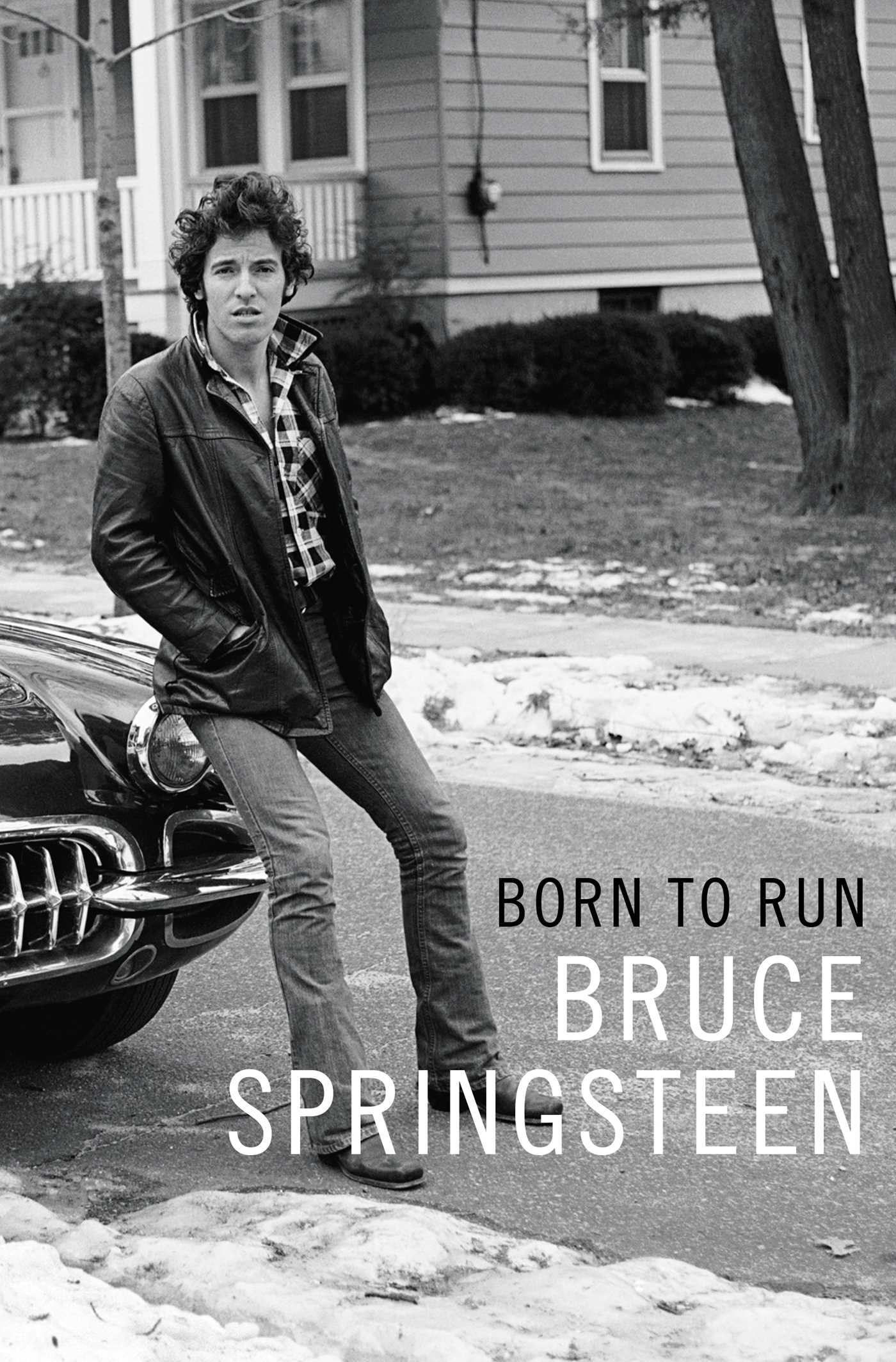 Born to Run Bruce Springsteen (Simon & Schuster) $32.50 STREET DATE SEPTEMBER 27, 2016
Born to Run Bruce Springsteen (Simon & Schuster) $32.50 STREET DATE SEPTEMBER 27, 2016
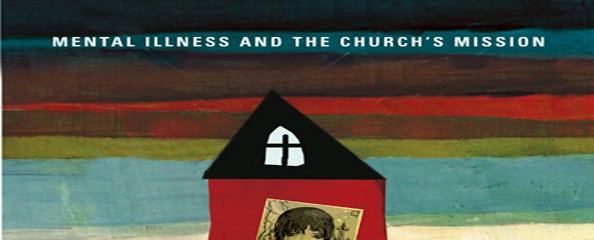
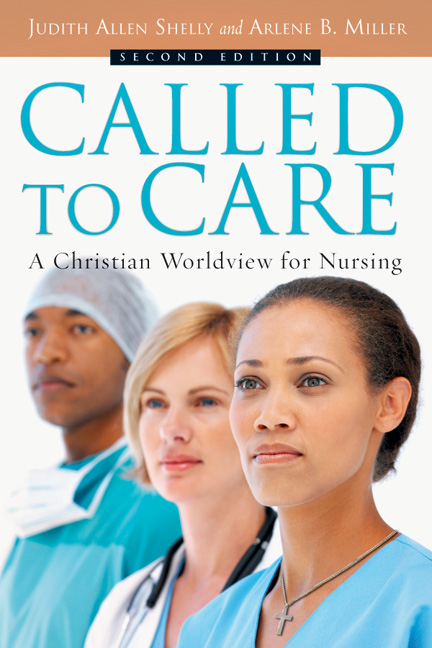
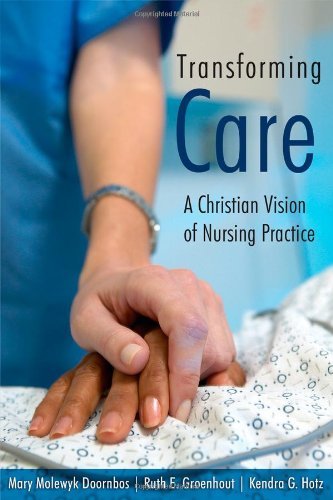
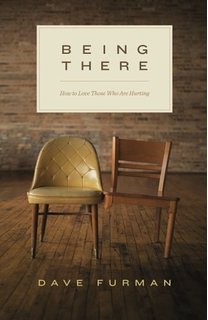
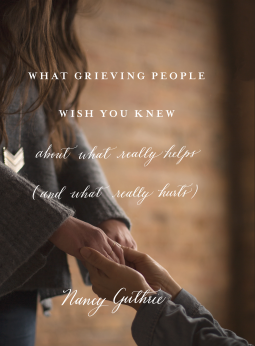 categories of coping with cancer and other chronic illnesses, books on death and dying, and titles on bereavement and loss and grief. We have so many helpful books that are for those living with loss and into their grief and we have books for caregivers, helping solve the big concern about how to minister to and walk alongside those in bereavement, including children! (It is interesting that we even sell books about pet loss, for adults and children.)
categories of coping with cancer and other chronic illnesses, books on death and dying, and titles on bereavement and loss and grief. We have so many helpful books that are for those living with loss and into their grief and we have books for caregivers, helping solve the big concern about how to minister to and walk alongside those in bereavement, including children! (It is interesting that we even sell books about pet loss, for adults and children.)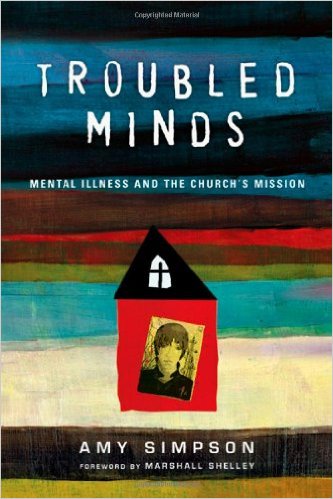 Troubled Minds: Mental Illness and the Church’s Mission Amy Simpson (IVP) $17.00 Here she tells her story of her mother’s oddness which moved to profound brokenness and an eventual full on break with reality. Her father used to be a country preacher and in the new city where they lived they found little support and there are tragic stories of how they were (shall we say) not served well. It is a call to the church to be more aware of mental health issues, she profiles several congregations that are doing good work with those who have special emotional and mental health needs, and inspires us all trust God as we move into some rough waters. What a book!
Troubled Minds: Mental Illness and the Church’s Mission Amy Simpson (IVP) $17.00 Here she tells her story of her mother’s oddness which moved to profound brokenness and an eventual full on break with reality. Her father used to be a country preacher and in the new city where they lived they found little support and there are tragic stories of how they were (shall we say) not served well. It is a call to the church to be more aware of mental health issues, she profiles several congregations that are doing good work with those who have special emotional and mental health needs, and inspires us all trust God as we move into some rough waters. What a book! Anxious: Choosing Faith in a World of Worry Amy Simpson (IVP) $16.00 This is also a book very much worth having even though it is less the big picture of faith-based insights into our mental health crisis and more of a personal story. Perhaps it is fair to call it a bit more of a self-help/personal growth book, although it is informed not only by her own journey, but by the best data and social science regarding this remarkably prevalent spectrum of disorders. For what it is worth, don’t be put off by the subtitle, as if we can do away with illness by just having more faith: Simpson clearly opposes such bad theology; in both the Troubled Minds and Anxious books she is vibrantly evangelical and deeply spiritual but offers no simplistic clichés or false promises. I am sure you know somebody who will benefit from this story, who needs this insight, who will benefit from learning to faithfully live while coping with anxiety, stress, fear and the like.
Anxious: Choosing Faith in a World of Worry Amy Simpson (IVP) $16.00 This is also a book very much worth having even though it is less the big picture of faith-based insights into our mental health crisis and more of a personal story. Perhaps it is fair to call it a bit more of a self-help/personal growth book, although it is informed not only by her own journey, but by the best data and social science regarding this remarkably prevalent spectrum of disorders. For what it is worth, don’t be put off by the subtitle, as if we can do away with illness by just having more faith: Simpson clearly opposes such bad theology; in both the Troubled Minds and Anxious books she is vibrantly evangelical and deeply spiritual but offers no simplistic clichés or false promises. I am sure you know somebody who will benefit from this story, who needs this insight, who will benefit from learning to faithfully live while coping with anxiety, stress, fear and the like. 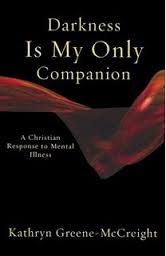 Darkness is My Only Companion: A Christian Response to Mental Illness Kathryn Greene-McCreight (Brazos) $18.99 As you noticed above, I am a big fan of Simpson’s two books, and the first, Troubled Minds, is the best to read if you’ve never read anything along these lines. It outlines (in part through personal narrative) her families struggles with psychosis and homelessness and loss; she tells what churches should and shouldn’t do. I commend it. But, having so commended it, I think I want to say that this one, Darkness Is My Only Companion, is my favorite book, on the subject – at least for those who want a slightly deeper and more reflective read. Green-McCreight is a trained theologian and a powerfully, elegant writer. She bravely takes us into the darkness that often accompanies depression and anxiety disorders and brings the awe-full situation onto the page in and into our own imaginations so beautifully. She draws on the Psalms (including the Psalms of lament) which have served her as her own lifeline. As we might expect from Brazos Press, the book is mature, theologically ecumenical (Greene-McCreight is associate chaplain at The Yale Episcopal Church at Yale and priest affiliate at Christ Church in New Haven) and simply deserves to be read. It is out in a revised and expanded edition. It is a book that is at times troubling, at times remarkably hopeful, always insightful, and you will be glad you read it.
Darkness is My Only Companion: A Christian Response to Mental Illness Kathryn Greene-McCreight (Brazos) $18.99 As you noticed above, I am a big fan of Simpson’s two books, and the first, Troubled Minds, is the best to read if you’ve never read anything along these lines. It outlines (in part through personal narrative) her families struggles with psychosis and homelessness and loss; she tells what churches should and shouldn’t do. I commend it. But, having so commended it, I think I want to say that this one, Darkness Is My Only Companion, is my favorite book, on the subject – at least for those who want a slightly deeper and more reflective read. Green-McCreight is a trained theologian and a powerfully, elegant writer. She bravely takes us into the darkness that often accompanies depression and anxiety disorders and brings the awe-full situation onto the page in and into our own imaginations so beautifully. She draws on the Psalms (including the Psalms of lament) which have served her as her own lifeline. As we might expect from Brazos Press, the book is mature, theologically ecumenical (Greene-McCreight is associate chaplain at The Yale Episcopal Church at Yale and priest affiliate at Christ Church in New Haven) and simply deserves to be read. It is out in a revised and expanded edition. It is a book that is at times troubling, at times remarkably hopeful, always insightful, and you will be glad you read it.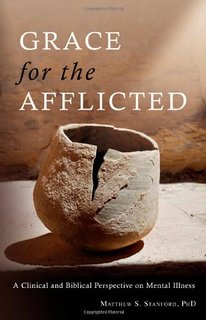 Grace for the Afflicted: A Clinical and Biblical Perspective on Mental Illness Matthew Stanford (IVP) $20.00 Both Simpson and Greene-McCreight draw on this book and see Dr. Stanford as an important friend and colleague, and it is, along with those listed above, an essential volume for anyone wanting to start a library on this topic. I cannot say enough about how clear and wise and thoughtful and sound all this is. If the previous books drew on the author’s own stories, Grace for the Afflicted brings a clinician’s expertise and training to bear. It is a remarkably good and thorough handbook, offering detailed information about various sorts of disorders. He nicely weaves together his medical/scientific training and his Biblical faith. It is so good to see this natural and wise use of the Bible even in a book that offers such clinical professionalism. The author has a PhD in neuroscience (from Baylor University) and is a nationally recognized researcher in the area of aggressive and impulsive behaviors. (He has done some pretty significant investigation of those with post-traumatic stress syndrome as well as brain injuries.) Amy Simpson told me that he’s a really great guy, too, as she has shared the stage with him and worked well together. This is a major contribution and a wonderfully informed and faithful work.
Grace for the Afflicted: A Clinical and Biblical Perspective on Mental Illness Matthew Stanford (IVP) $20.00 Both Simpson and Greene-McCreight draw on this book and see Dr. Stanford as an important friend and colleague, and it is, along with those listed above, an essential volume for anyone wanting to start a library on this topic. I cannot say enough about how clear and wise and thoughtful and sound all this is. If the previous books drew on the author’s own stories, Grace for the Afflicted brings a clinician’s expertise and training to bear. It is a remarkably good and thorough handbook, offering detailed information about various sorts of disorders. He nicely weaves together his medical/scientific training and his Biblical faith. It is so good to see this natural and wise use of the Bible even in a book that offers such clinical professionalism. The author has a PhD in neuroscience (from Baylor University) and is a nationally recognized researcher in the area of aggressive and impulsive behaviors. (He has done some pretty significant investigation of those with post-traumatic stress syndrome as well as brain injuries.) Amy Simpson told me that he’s a really great guy, too, as she has shared the stage with him and worked well together. This is a major contribution and a wonderfully informed and faithful work.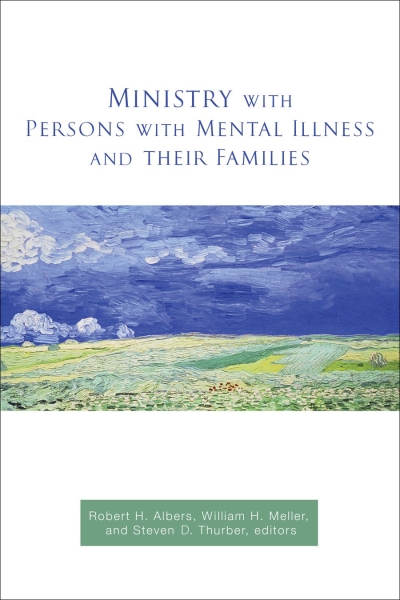 Ministry with Persons with Mental Illness and Their Families Robert Albers, William Meller, Steven Thurber (Fortress) $29.00 This is a very helpful resource and we highly recommend it, too. I think what makes this particularly helpful is how it draws on such a variety of authors from such a diversity of backgrounds, faith traditions and experience in mental health stuff. As you might expect from Fortress Press (a publishing house affiliated with the ELCA) this is perhaps aimed at those who are situated in mainline denominational parishes; the author includes pastors within the United Methodist, Lutheran and Episcopalian tradition. Several of the chapters are by respected researchers and psychiatrists who are published in their own specialty area. It is about doing ministry, of course, by which they mean congregational ministry, so it is certainly useful for pastors, Christian educators, deacons, Stephen’s Ministers and the like. Even though Fortress is known for doing academic titles, this blends some rigorous, dispassionate medical and theological studies with narrative and testimony, making it at times lively and eye-opening. Besides the expected chapters on bi-polar disease and personality disorders and depression and such there are chapters on autism, brain injury, dementia, addictions… it is a fine, serious handbook covering a lot of ground.
Ministry with Persons with Mental Illness and Their Families Robert Albers, William Meller, Steven Thurber (Fortress) $29.00 This is a very helpful resource and we highly recommend it, too. I think what makes this particularly helpful is how it draws on such a variety of authors from such a diversity of backgrounds, faith traditions and experience in mental health stuff. As you might expect from Fortress Press (a publishing house affiliated with the ELCA) this is perhaps aimed at those who are situated in mainline denominational parishes; the author includes pastors within the United Methodist, Lutheran and Episcopalian tradition. Several of the chapters are by respected researchers and psychiatrists who are published in their own specialty area. It is about doing ministry, of course, by which they mean congregational ministry, so it is certainly useful for pastors, Christian educators, deacons, Stephen’s Ministers and the like. Even though Fortress is known for doing academic titles, this blends some rigorous, dispassionate medical and theological studies with narrative and testimony, making it at times lively and eye-opening. Besides the expected chapters on bi-polar disease and personality disorders and depression and such there are chapters on autism, brain injury, dementia, addictions… it is a fine, serious handbook covering a lot of ground.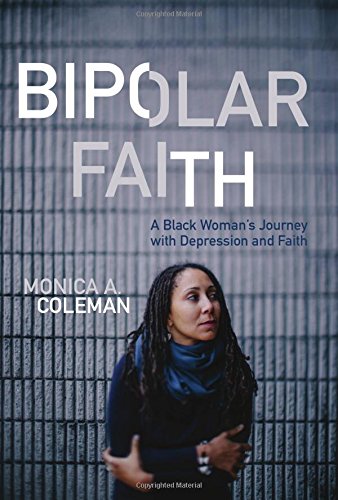 Bipolar Faith: A Black Woman’s Journey with Depression and Faith Monica A. Coleman (Fortress) $26.99 Wow. I just started this a few weeks ago and it is passionately written, eloquent and bold, as this woman shares her own anguishing story. This is a major work, released as part of the cutting edge People’s Theology series edited by Doug Pagitt and serves as a fine example of the old adage about theology emerging from autobiography. Coleman has very bravely here shared her own experiences as a black woman, with the issues and anguish one might expect. There is not only some account of racism but also a vivid account of sexual violence – what we might now call date rape – and more. As the book develops the tension deepens and we seem to know what is happening. Kudos to all involved in allowing this kind of story to be told. Take heed.
Bipolar Faith: A Black Woman’s Journey with Depression and Faith Monica A. Coleman (Fortress) $26.99 Wow. I just started this a few weeks ago and it is passionately written, eloquent and bold, as this woman shares her own anguishing story. This is a major work, released as part of the cutting edge People’s Theology series edited by Doug Pagitt and serves as a fine example of the old adage about theology emerging from autobiography. Coleman has very bravely here shared her own experiences as a black woman, with the issues and anguish one might expect. There is not only some account of racism but also a vivid account of sexual violence – what we might now call date rape – and more. As the book develops the tension deepens and we seem to know what is happening. Kudos to all involved in allowing this kind of story to be told. Take heed.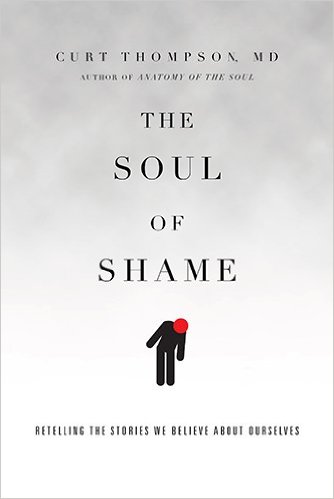
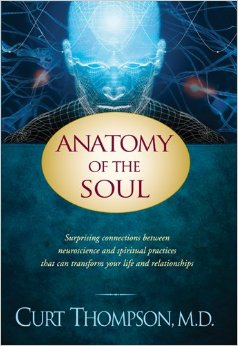 Anatomy of a Soul:
Anatomy of a Soul: 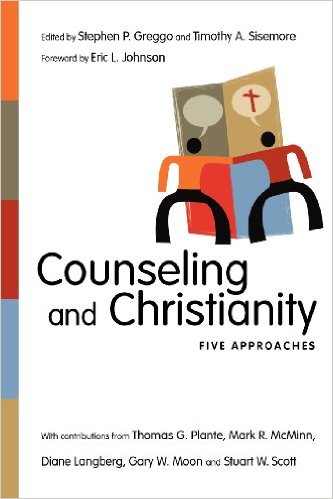 Counseling and Christianity: Five Approaches Stephen P. Greggo and Timothy A. Sisemore
Counseling and Christianity: Five Approaches Stephen P. Greggo and Timothy A. Sisemore
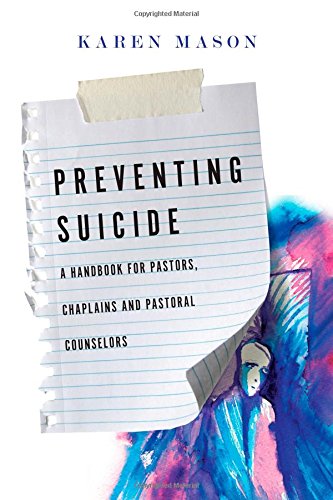 Preventing Suicide: A Handbook for Pastors, Chaplains and Pastoral Counselors Karen Mason (IVP) $18.00 I don’t need to say much about this–we have a small section of good books that tell about the grieve of losing a love one to suicide. (One of the most beautifully written and wise is by our friend Albert Hsu who writes of the loss of his father who took his own life, entitled
Preventing Suicide: A Handbook for Pastors, Chaplains and Pastoral Counselors Karen Mason (IVP) $18.00 I don’t need to say much about this–we have a small section of good books that tell about the grieve of losing a love one to suicide. (One of the most beautifully written and wise is by our friend Albert Hsu who writes of the loss of his father who took his own life, entitled 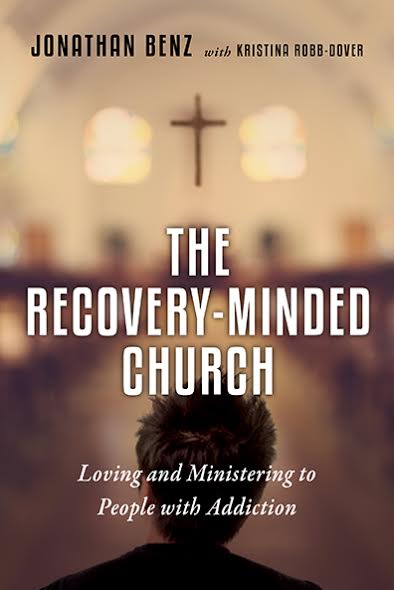 The Recovery-Minded Church: Loving and Ministering to People with Addiction Jonathan Benz and Kristina Robb-Dover (IVP) $16.00 Several decades ago we became known as a store that had one of the best selections of recovery resources around. Eventually, 12-step stores opened, recovery work became a cottage industry and went mainstream. It peaked and we don’t have – for whatever reason – as many requests for this kind of stuff as we used to. From drug and alcohol abuse to eating and sex and relationship addictions, from multiple personality disorders to post-traumatic stress to garden variety co-dependencies and the baggage from being raised in dysfunctional families, we have resources that can help. This new book, published earlier this year, is a great title that helps congregations see themselves as part of this movement. It is very, very good and a useful thing to think about as congregations are discerning new missions and new identities and new paradigms. Get this on your radar, part of your vocabulary, part of your vision. Benz, by the way, is a certified addictions professional out of an evangelical background; Robb-Cover is a PC(USA) pastor who went to seminary at Princeton.
The Recovery-Minded Church: Loving and Ministering to People with Addiction Jonathan Benz and Kristina Robb-Dover (IVP) $16.00 Several decades ago we became known as a store that had one of the best selections of recovery resources around. Eventually, 12-step stores opened, recovery work became a cottage industry and went mainstream. It peaked and we don’t have – for whatever reason – as many requests for this kind of stuff as we used to. From drug and alcohol abuse to eating and sex and relationship addictions, from multiple personality disorders to post-traumatic stress to garden variety co-dependencies and the baggage from being raised in dysfunctional families, we have resources that can help. This new book, published earlier this year, is a great title that helps congregations see themselves as part of this movement. It is very, very good and a useful thing to think about as congregations are discerning new missions and new identities and new paradigms. Get this on your radar, part of your vocabulary, part of your vision. Benz, by the way, is a certified addictions professional out of an evangelical background; Robb-Cover is a PC(USA) pastor who went to seminary at Princeton.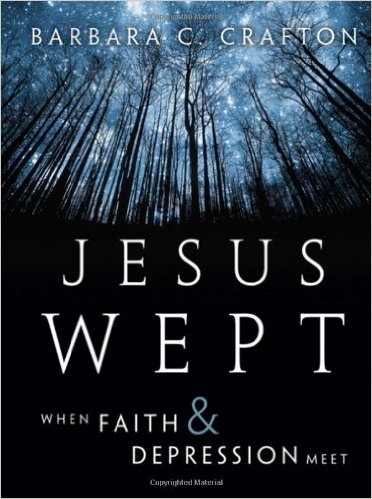 Jesus Wept: When Faith and Depression Meet Barbara C. Crafton (Jossey Bass) $19.95 Again, I don’t have to say much about this – we have an entire shelf of books about depression; it is such a commonly experienced disorder that I’m surprised we don’t sell more of these sorts of books. We have some that are very profound, some that are a bit too simplistic for my tastes. They come from a variety of perspectives and offer a variety of angles. From Gerald May’s Dark Night of the Soul to the moving recent memoir by Gillian Marchenko, Sill Life: A Memoir of Living Fully with Depression, we have a lot. Jesus Wept, we think, is one of the best short reflections that offers not only a glimpse into the experience of those struggling with depression but also a multi-layered and thoughtful vision of God’s presence through it all. Rev. Crafton is a great writer and beloved as an Episcopalian priest and author and spiritual director.
Jesus Wept: When Faith and Depression Meet Barbara C. Crafton (Jossey Bass) $19.95 Again, I don’t have to say much about this – we have an entire shelf of books about depression; it is such a commonly experienced disorder that I’m surprised we don’t sell more of these sorts of books. We have some that are very profound, some that are a bit too simplistic for my tastes. They come from a variety of perspectives and offer a variety of angles. From Gerald May’s Dark Night of the Soul to the moving recent memoir by Gillian Marchenko, Sill Life: A Memoir of Living Fully with Depression, we have a lot. Jesus Wept, we think, is one of the best short reflections that offers not only a glimpse into the experience of those struggling with depression but also a multi-layered and thoughtful vision of God’s presence through it all. Rev. Crafton is a great writer and beloved as an Episcopalian priest and author and spiritual director.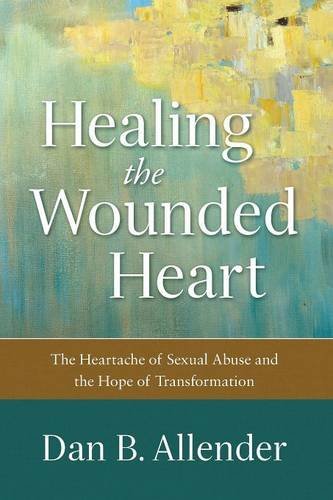 Healing the Wounded Heart: The Heartache of Sexual Abuse and the Hope of Transformation Dan Allender (Baker Books) $16.99 Again, we have bunches of books on this topic and, sadly, they are needed, widely so. We have a few we most heartily recommend (depending on the emotional needs and writing style and religious tone preferred by the person reading it.) But near the very top of our list has for years has been the classic The
Healing the Wounded Heart: The Heartache of Sexual Abuse and the Hope of Transformation Dan Allender (Baker Books) $16.99 Again, we have bunches of books on this topic and, sadly, they are needed, widely so. We have a few we most heartily recommend (depending on the emotional needs and writing style and religious tone preferred by the person reading it.) But near the very top of our list has for years has been the classic The 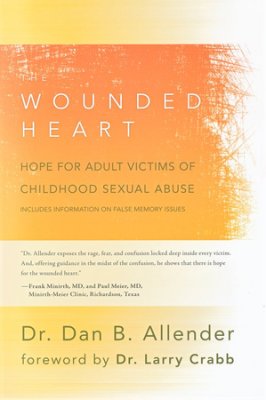 Wounded Heart: Hope for Adult Victims of Childhood Sexual Abuse by the very, very reliable, insightful, and caring author Dan Allender (NavPress; $16.99.) Do you know him? He’s written bunch of stuff, often with his friend Tremper Longman, the renowned Old Testament scholar. Allender spoke on the main-stage of the CCOs Jubilee conference a few years ago, and you could watch him, here.
Wounded Heart: Hope for Adult Victims of Childhood Sexual Abuse by the very, very reliable, insightful, and caring author Dan Allender (NavPress; $16.99.) Do you know him? He’s written bunch of stuff, often with his friend Tremper Longman, the renowned Old Testament scholar. Allender spoke on the main-stage of the CCOs Jubilee conference a few years ago, and you could watch him, here.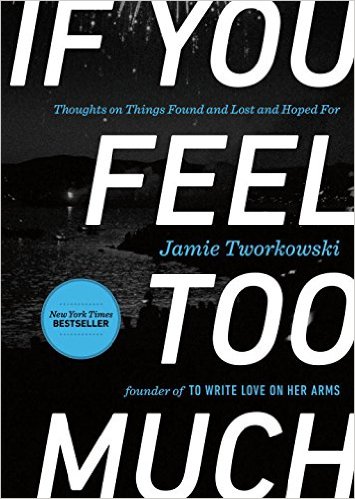 If You Feel Too Much: Thoughts on Things Found and Lost and Hoped For Jamie Tworkowski (Tarcher) sale price $15.00 while supplies last This collection of stories, memoiristic impressions, rants and epiphanies about some sort of grace that can be experienced even in hard times remains a very popular, much-discussed book among young adults who are often hurting, bewildered, feeling alone, disconnected, unappreciated. As we’ve explained before, this edgy book tells of Jamie’s passionate and hopeful episode writing “love” on the arm of a woman who was cutting herself and how a group of late-night, music-loving rock fans surrounded this despairing friend. Can we come alongside the lost and hurting? Can those who feel a lack of love find new hope? Does God’s love somehow leak out onto the cool kids anguished by their alienation as well as the run-aways and underground? This book reaches so many folks and we are glad to keep telling people about TWLOHA mission and Jamie’s moving tribute to this way of loving others no matter what. Called “hauntingly beautiful” it reminds us that it is okay to admit that things are right for us and it is okay to ask for help.
If You Feel Too Much: Thoughts on Things Found and Lost and Hoped For Jamie Tworkowski (Tarcher) sale price $15.00 while supplies last This collection of stories, memoiristic impressions, rants and epiphanies about some sort of grace that can be experienced even in hard times remains a very popular, much-discussed book among young adults who are often hurting, bewildered, feeling alone, disconnected, unappreciated. As we’ve explained before, this edgy book tells of Jamie’s passionate and hopeful episode writing “love” on the arm of a woman who was cutting herself and how a group of late-night, music-loving rock fans surrounded this despairing friend. Can we come alongside the lost and hurting? Can those who feel a lack of love find new hope? Does God’s love somehow leak out onto the cool kids anguished by their alienation as well as the run-aways and underground? This book reaches so many folks and we are glad to keep telling people about TWLOHA mission and Jamie’s moving tribute to this way of loving others no matter what. Called “hauntingly beautiful” it reminds us that it is okay to admit that things are right for us and it is okay to ask for help.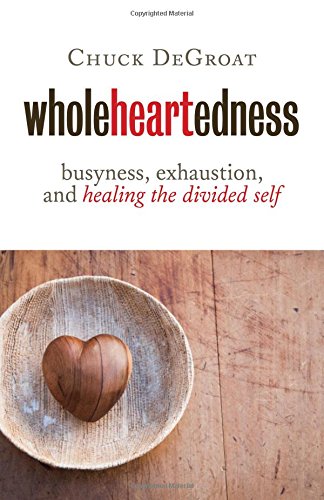 Wholeheartedness: Busyness, Exhaustion, and Healing the Divided Self
Wholeheartedness: Busyness, Exhaustion, and Healing the Divided Self 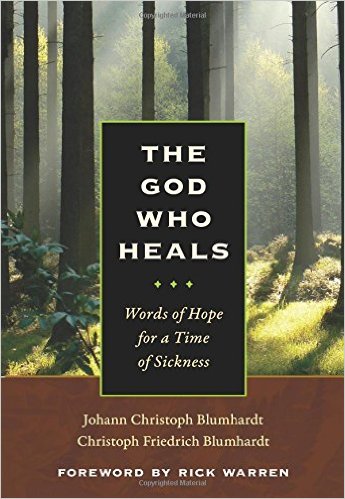 The God Who Heals: Words of Hope for Times of Sickness curated and edited by Johann Christoph Blumhardt and Christoph Blumhardt (Plough Publishing) $18.00 This. This is one of the most beautiful collections of great readings that we’ve seen this year! You may know the Plough classics that were put out for Advent and for Lent compiling quotes from writers, theologians, mystics, poets. This looks like and is shaped like those beloved treasures, a handsome hand-sized hardback that offers small excerpts and pieces. These mature reflections are all from the older Blumhardt (who lived in the 19th century) and the son Christoph, who was a contemporary of Karl Barth and Bonhoeffer. Pastors and hospital chaplains and those who do home visitation – Stephen Ministers or local church deacons or visiting nurses, say – should have this for their own deepening of how to think about illness, healing and wholeness, but also to share with the sick or bereaved. Here you have 60 pieces (each linked to a Biblical text) and gentle, encouraging, insightful words of blessing. Highly recommended. By the way, you may recall that Saddleback pastor Rick Warren lost an adult son to suicide and he and his wife have written and spoken bravely and helpfully about that tragedy. Warren has a very moving forward to this Blumhardt book. Kudos to Plough for making old, rich writing seem handsome and new.
The God Who Heals: Words of Hope for Times of Sickness curated and edited by Johann Christoph Blumhardt and Christoph Blumhardt (Plough Publishing) $18.00 This. This is one of the most beautiful collections of great readings that we’ve seen this year! You may know the Plough classics that were put out for Advent and for Lent compiling quotes from writers, theologians, mystics, poets. This looks like and is shaped like those beloved treasures, a handsome hand-sized hardback that offers small excerpts and pieces. These mature reflections are all from the older Blumhardt (who lived in the 19th century) and the son Christoph, who was a contemporary of Karl Barth and Bonhoeffer. Pastors and hospital chaplains and those who do home visitation – Stephen Ministers or local church deacons or visiting nurses, say – should have this for their own deepening of how to think about illness, healing and wholeness, but also to share with the sick or bereaved. Here you have 60 pieces (each linked to a Biblical text) and gentle, encouraging, insightful words of blessing. Highly recommended. By the way, you may recall that Saddleback pastor Rick Warren lost an adult son to suicide and he and his wife have written and spoken bravely and helpfully about that tragedy. Warren has a very moving forward to this Blumhardt book. Kudos to Plough for making old, rich writing seem handsome and new.